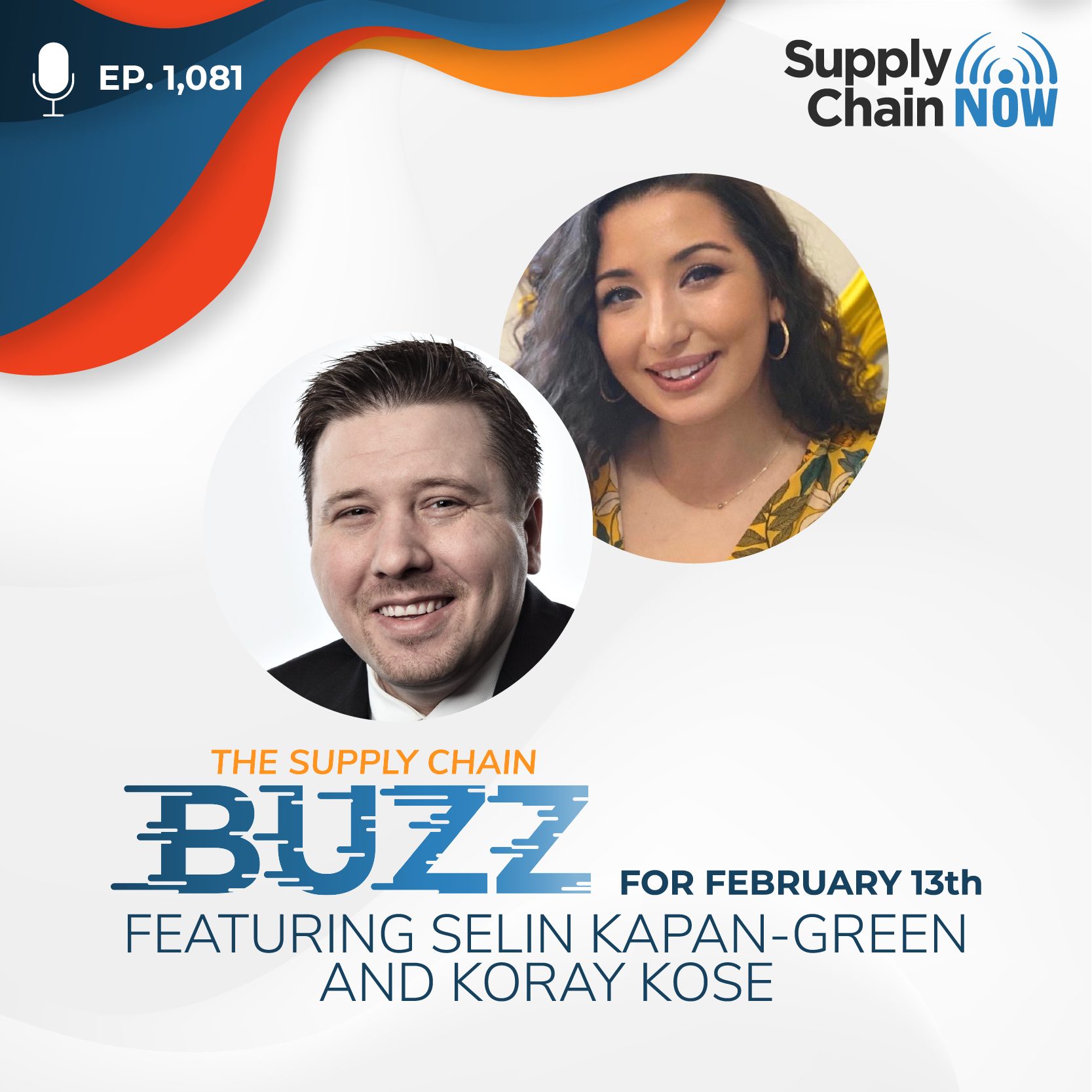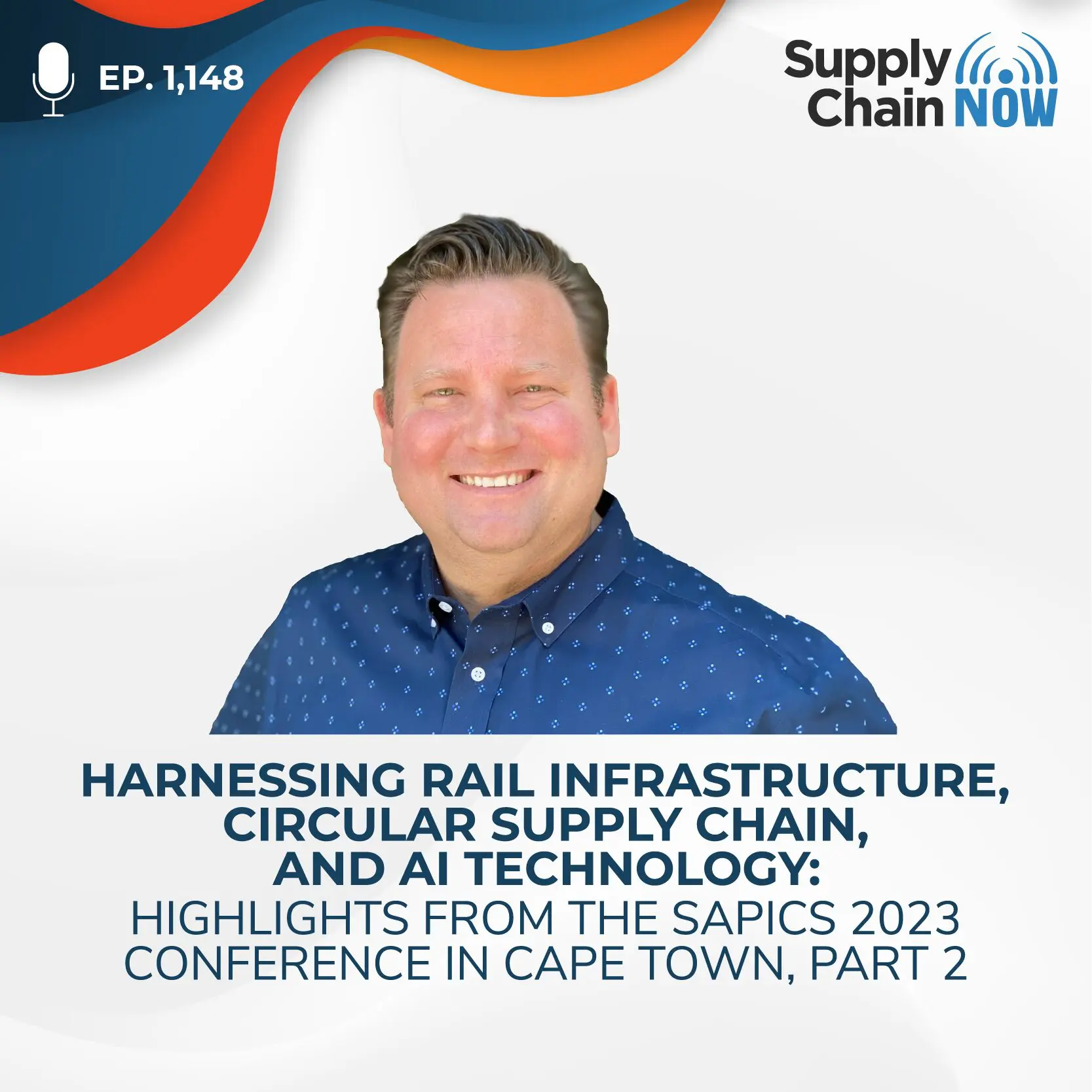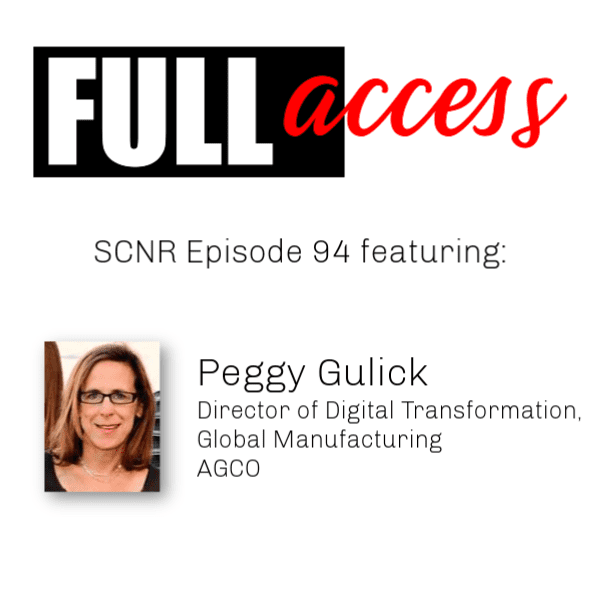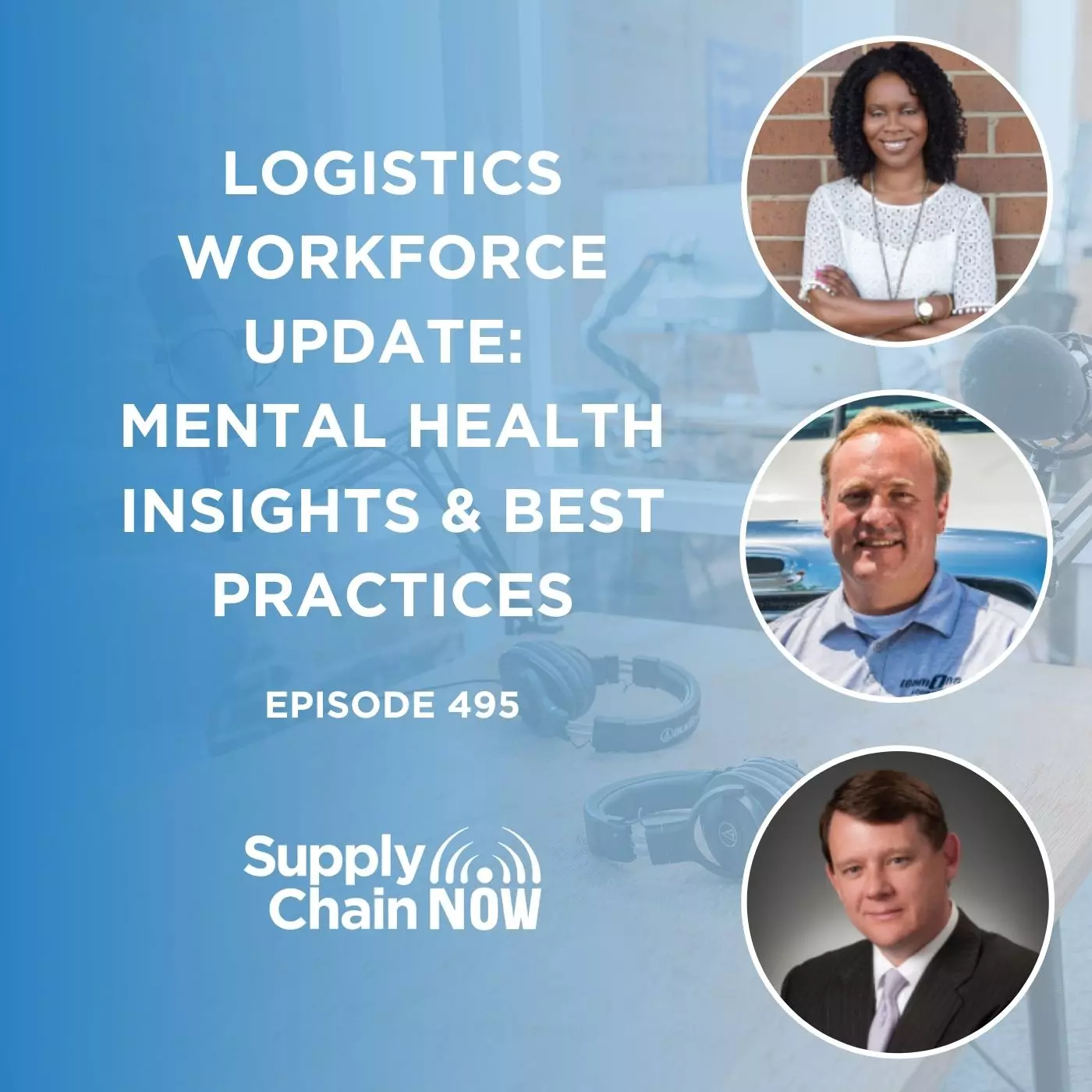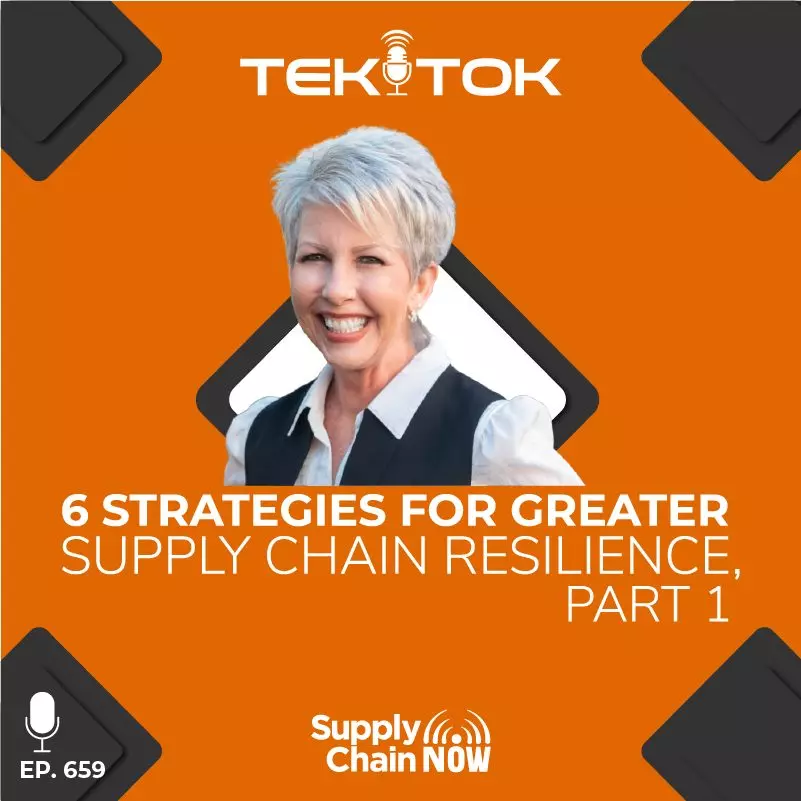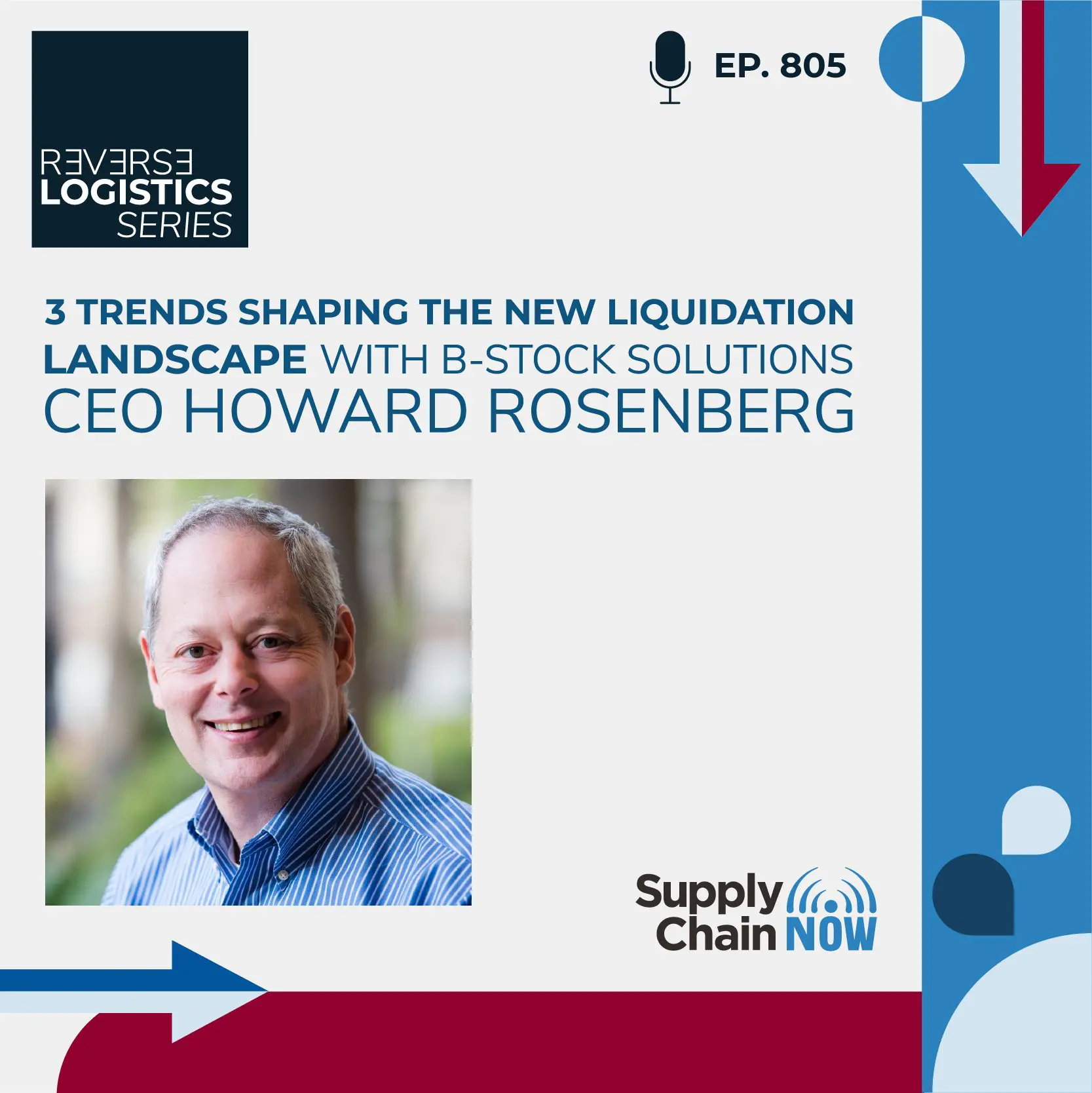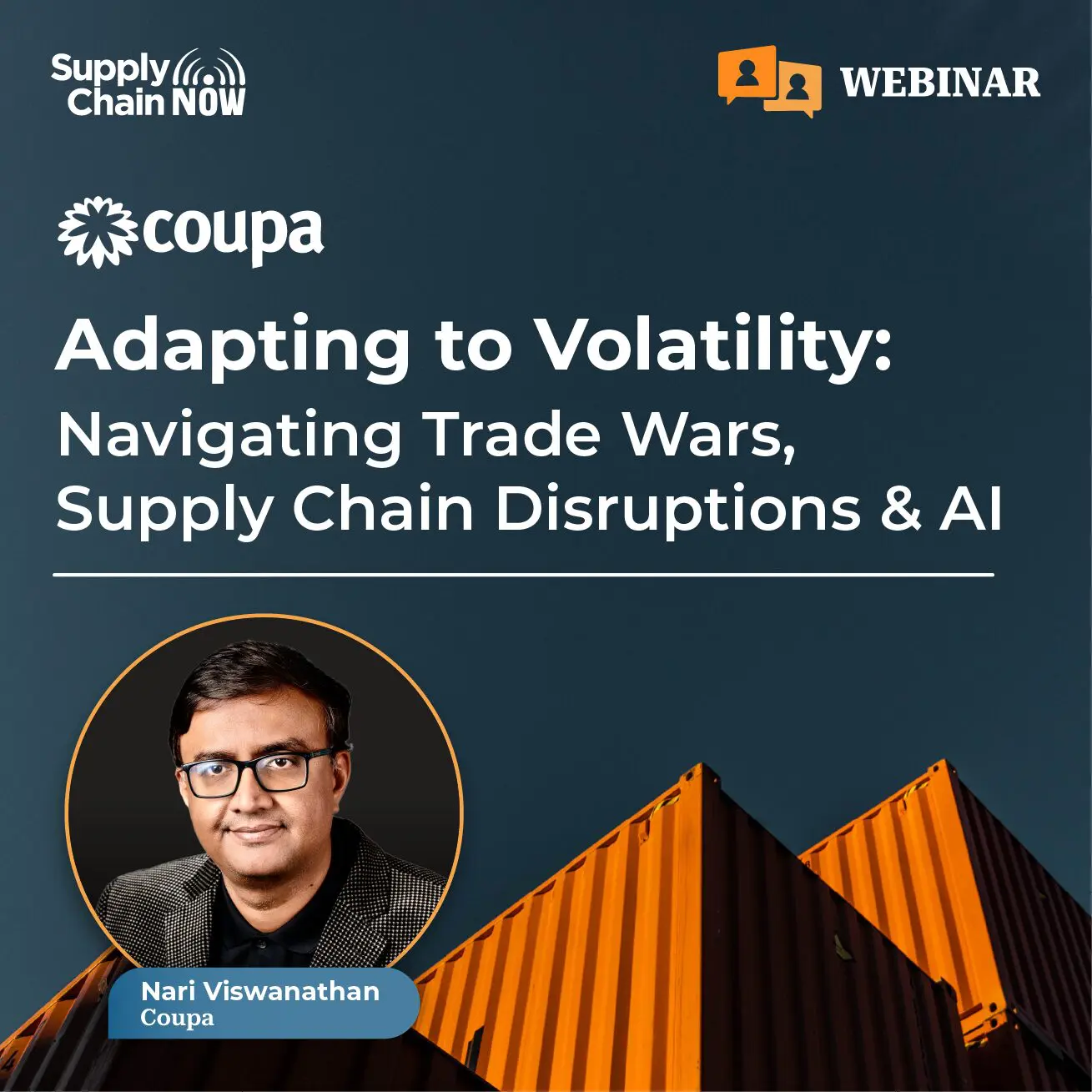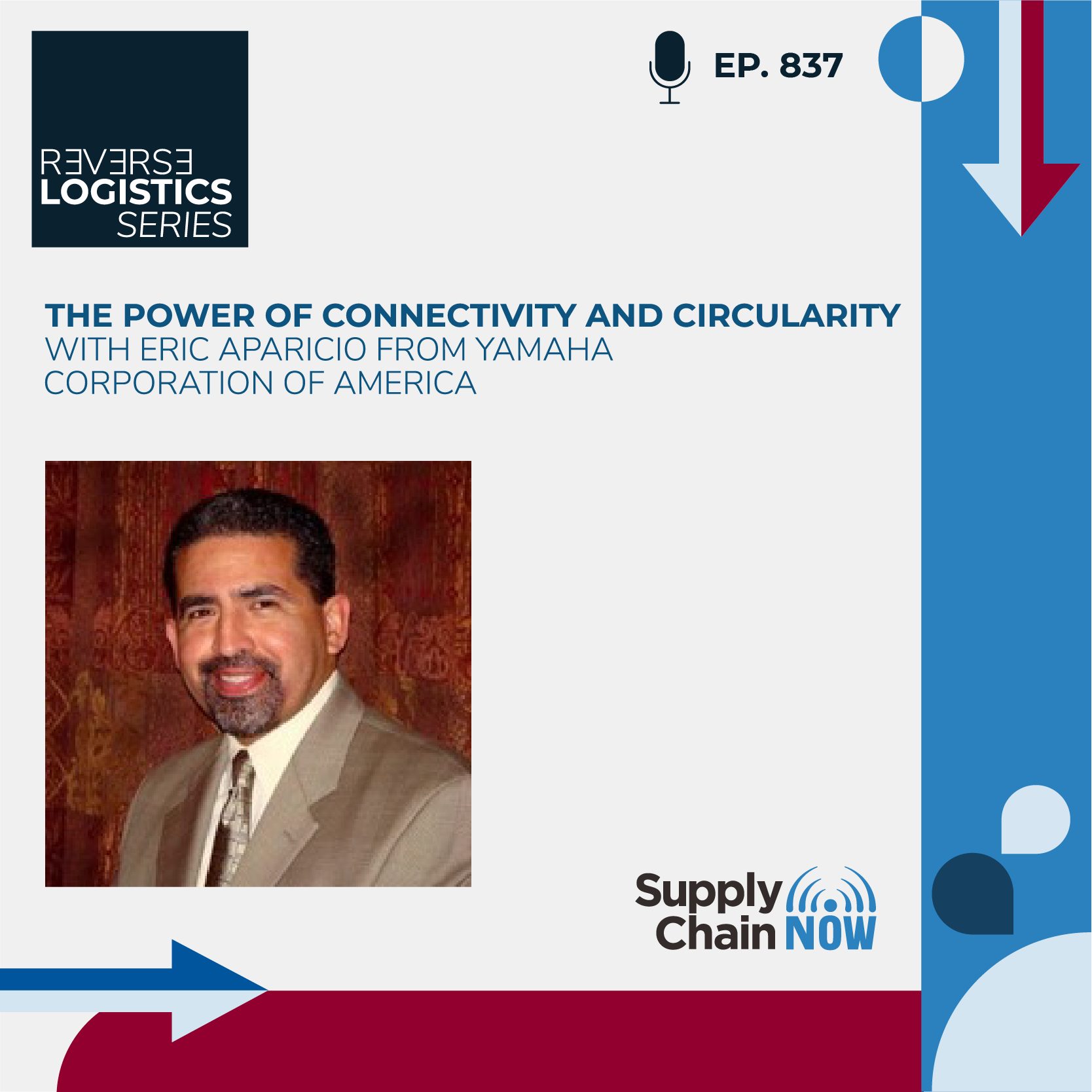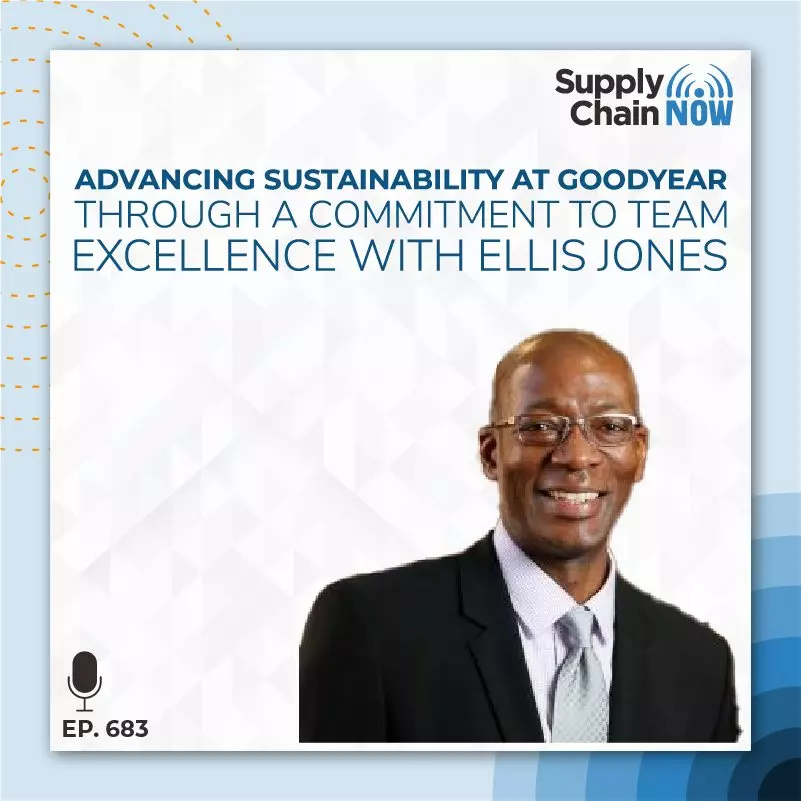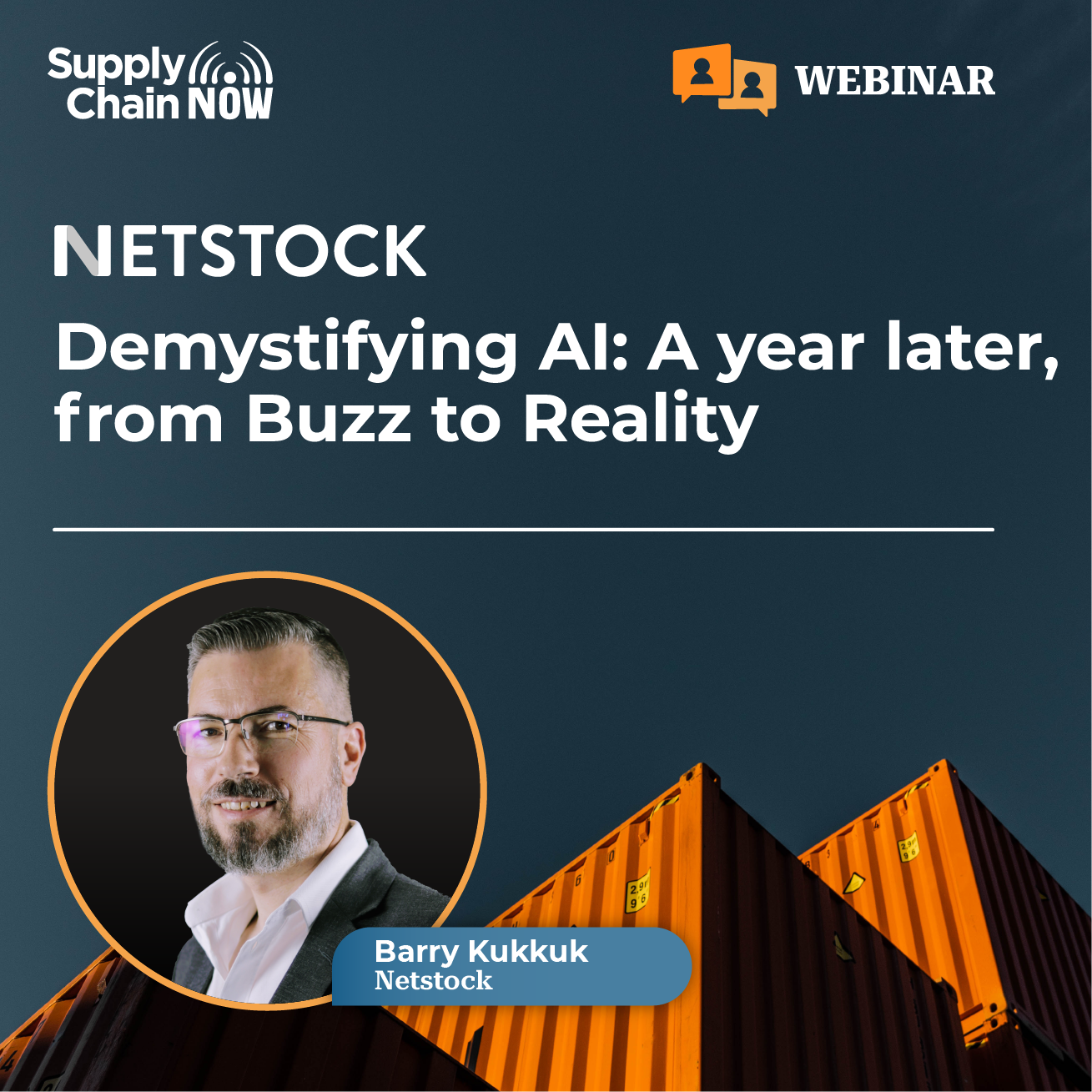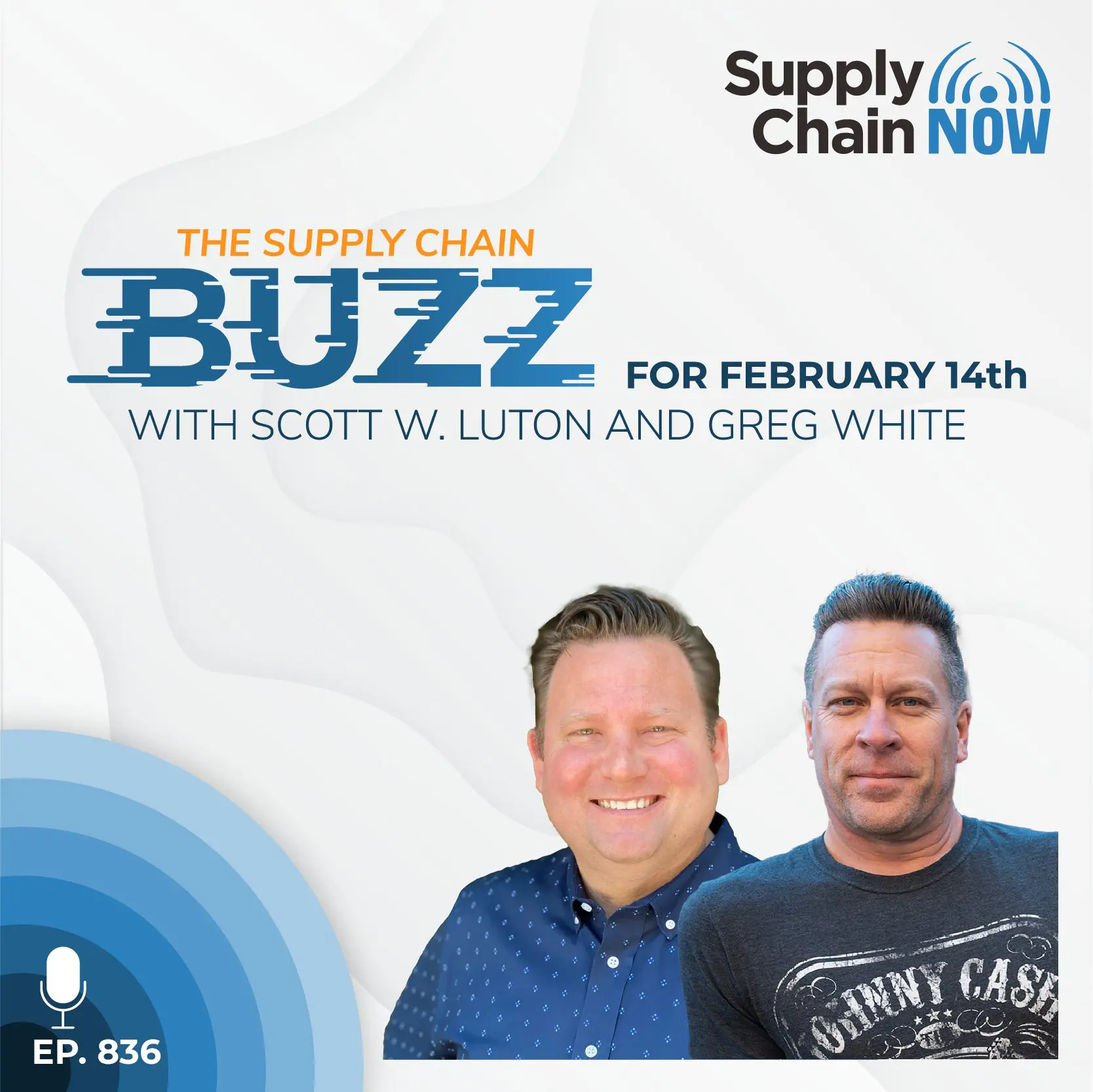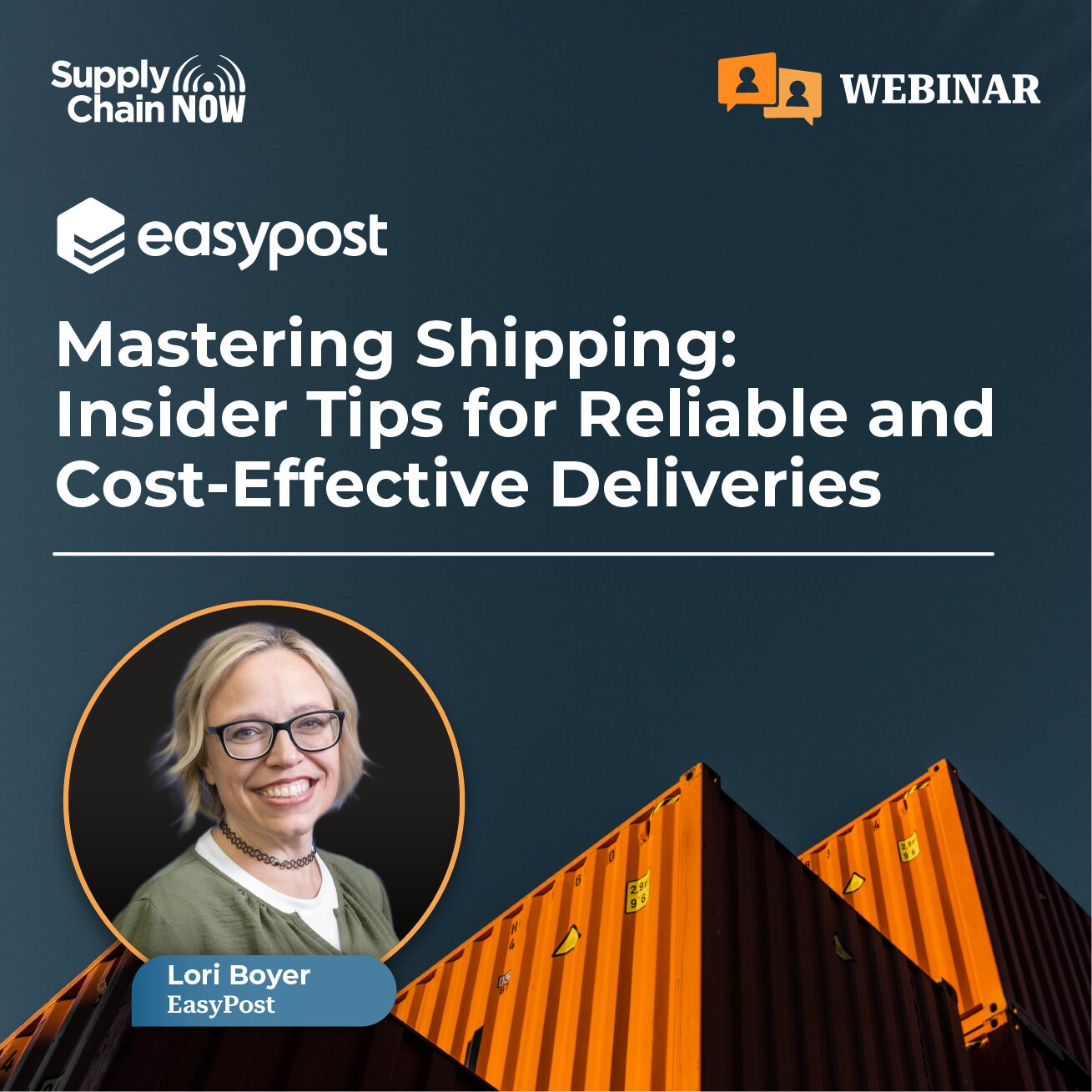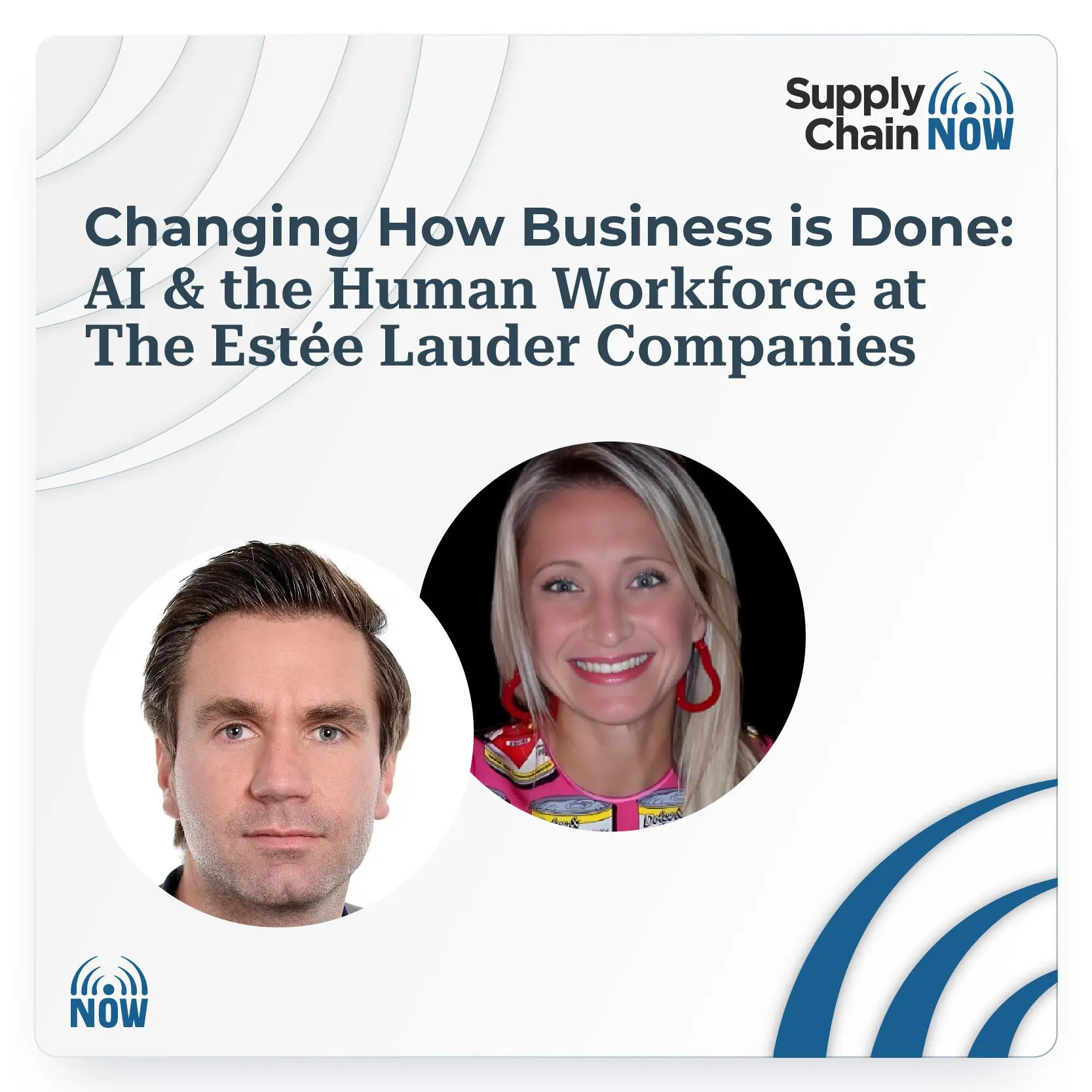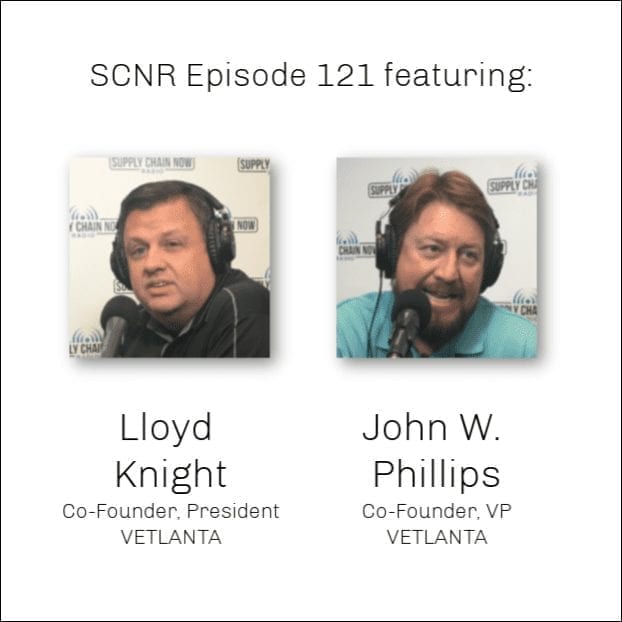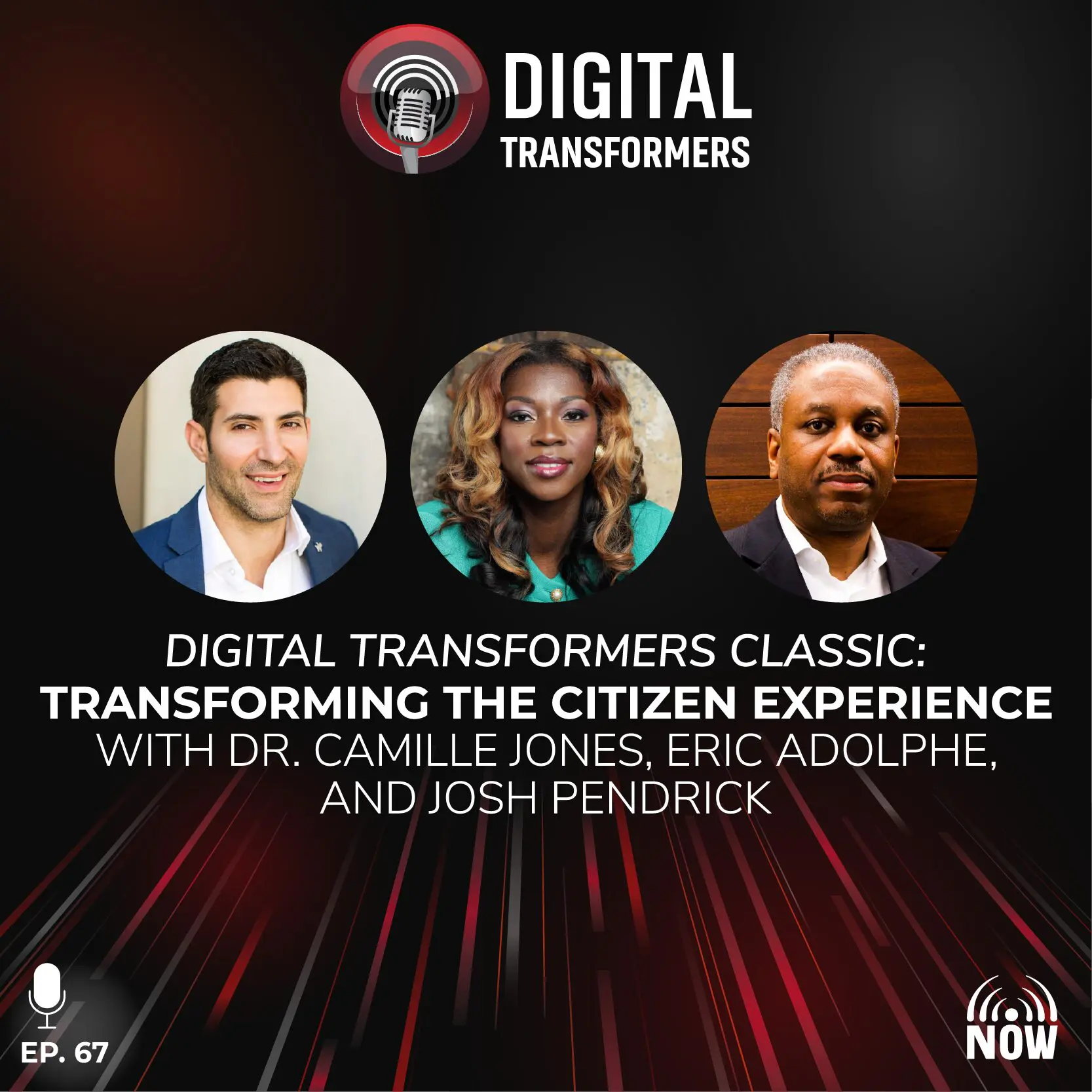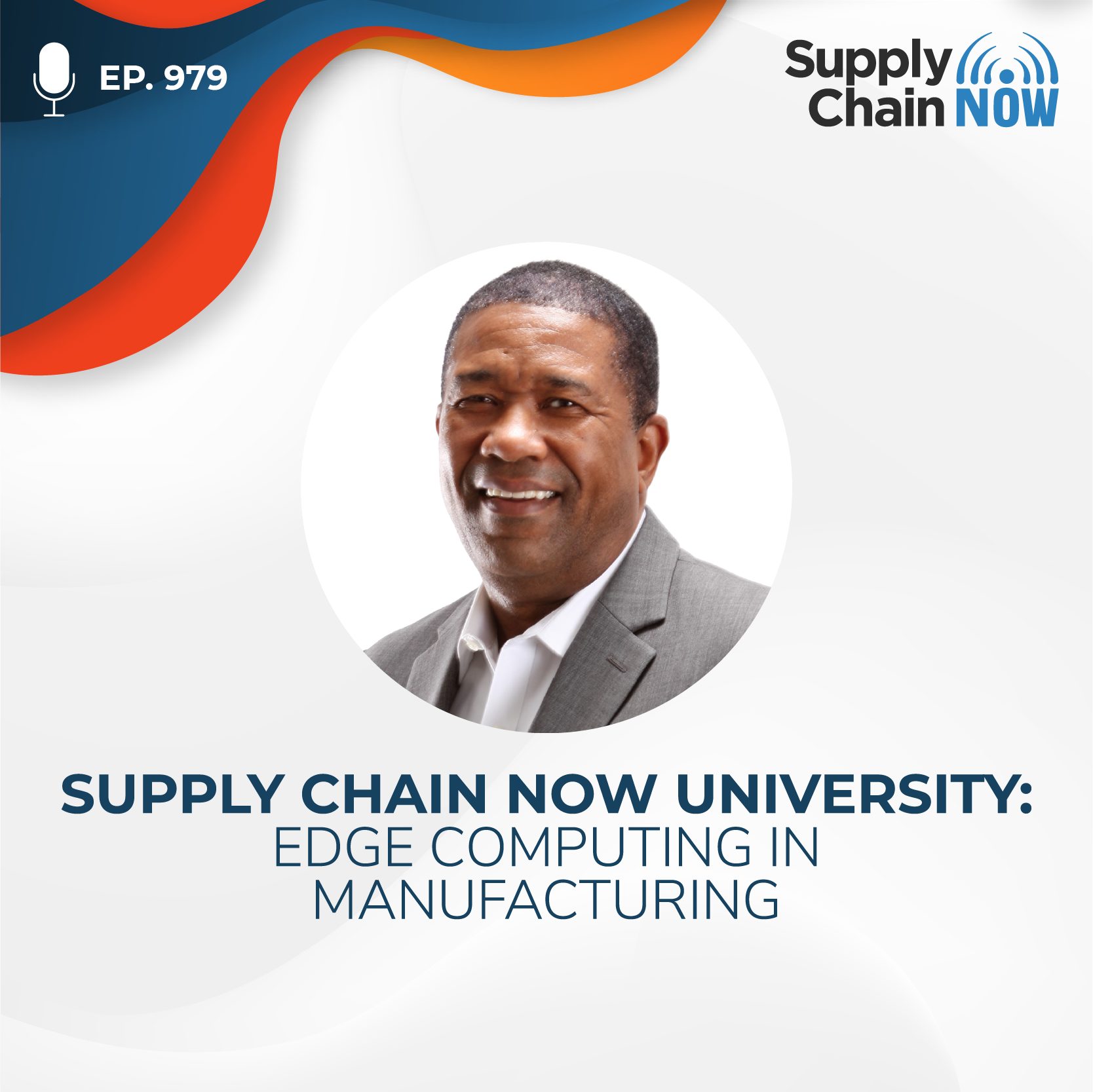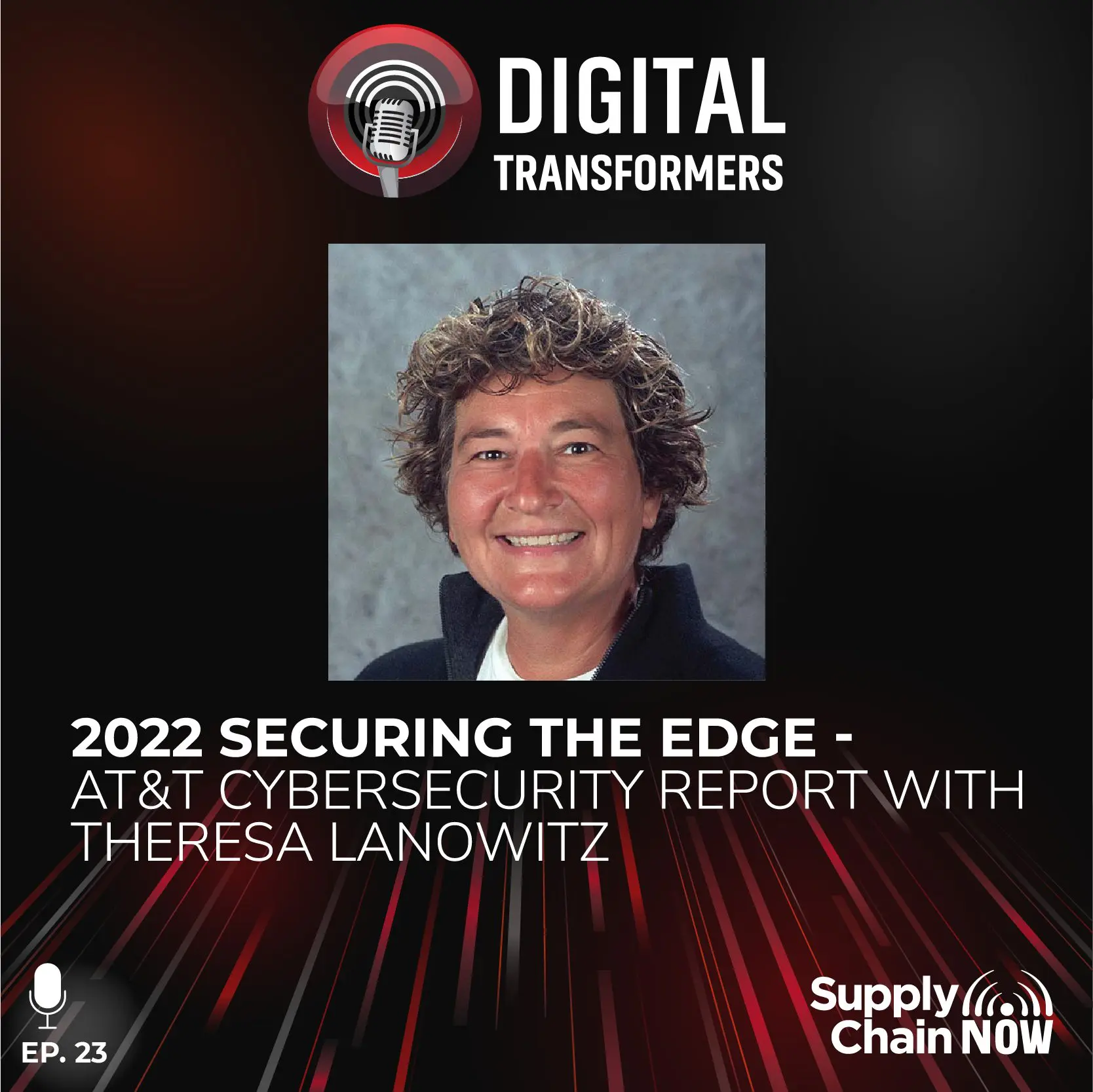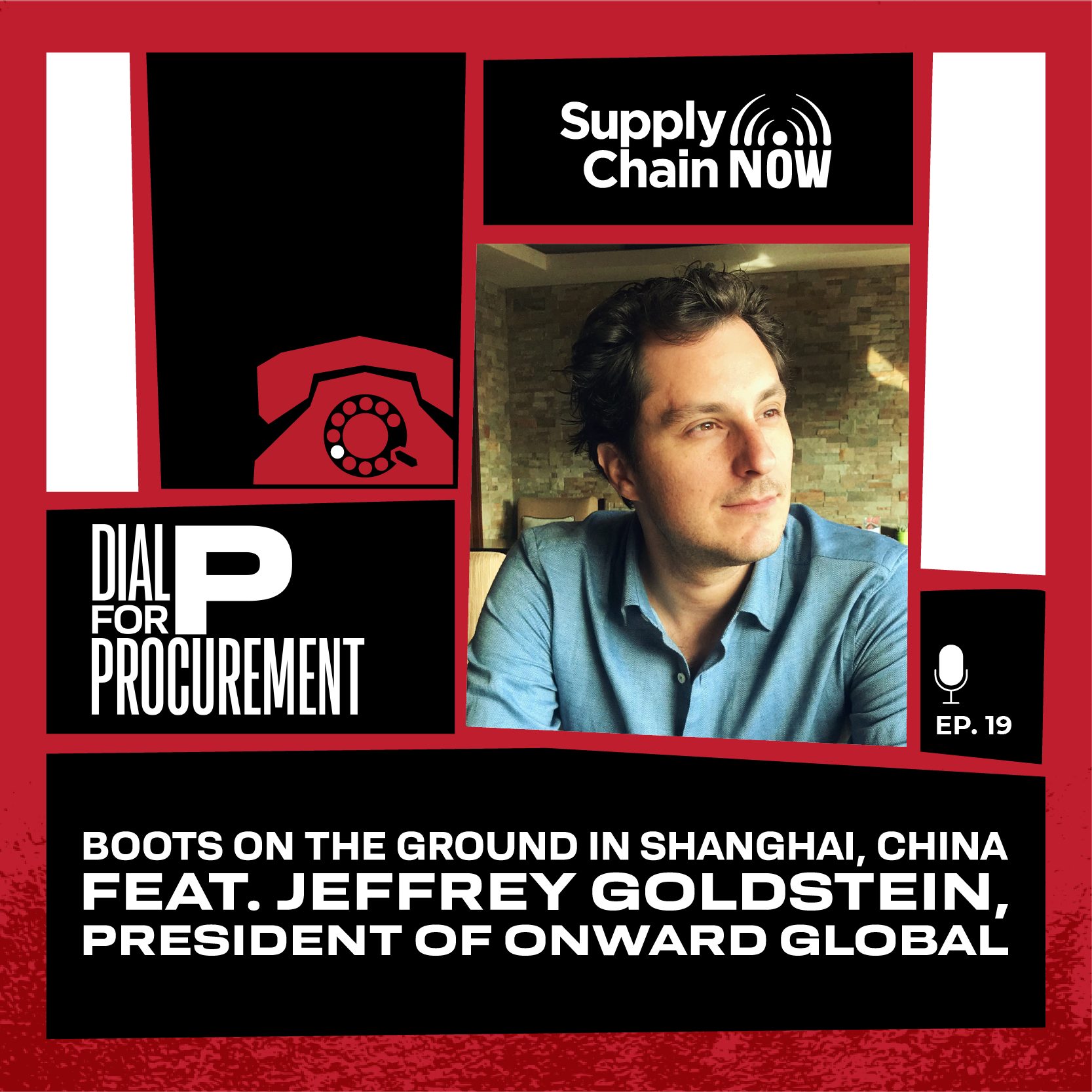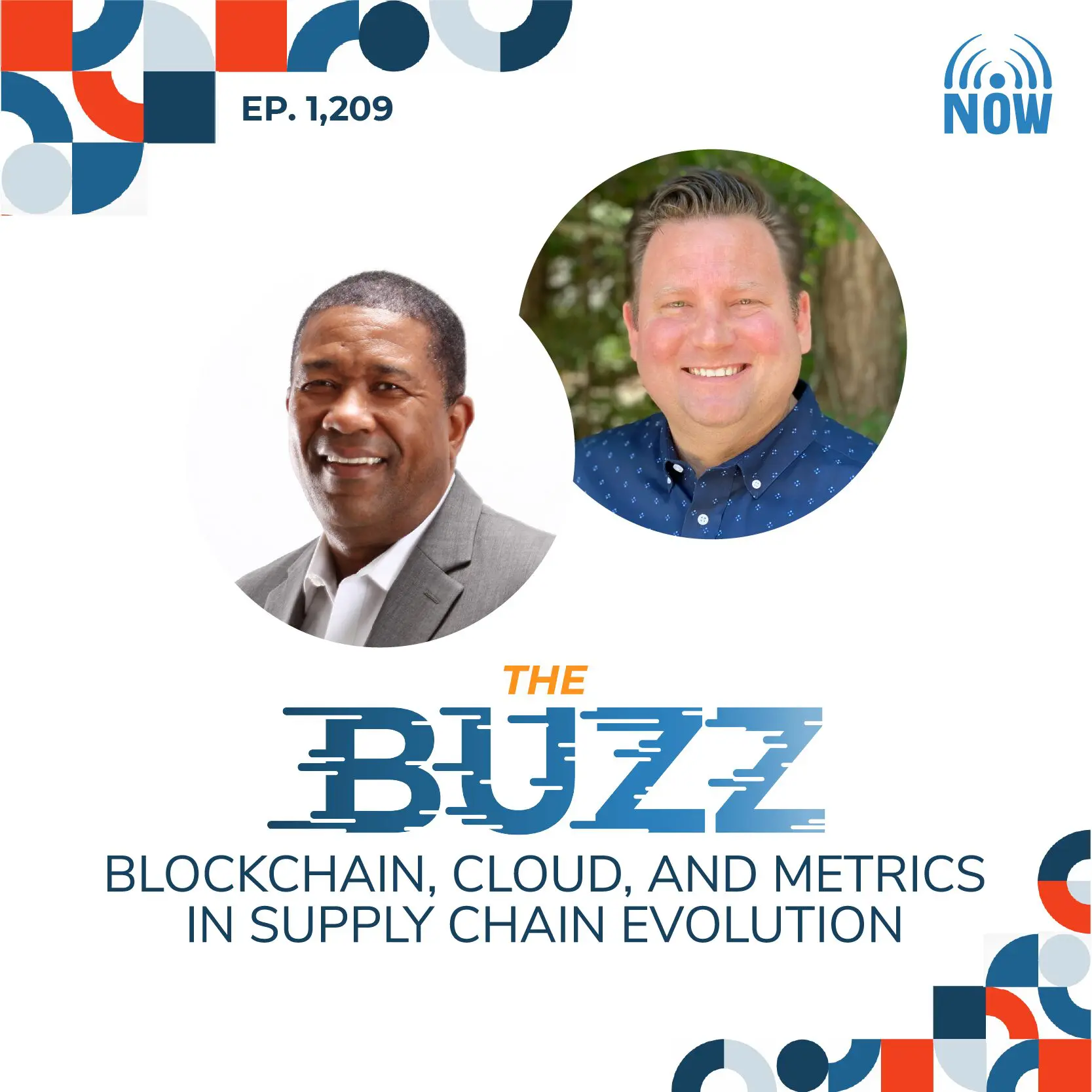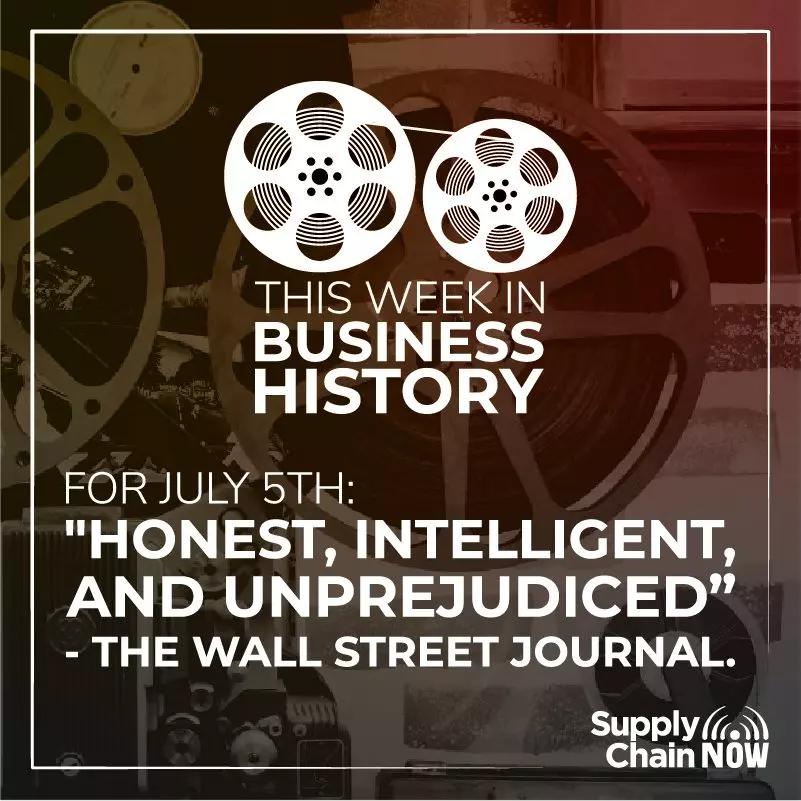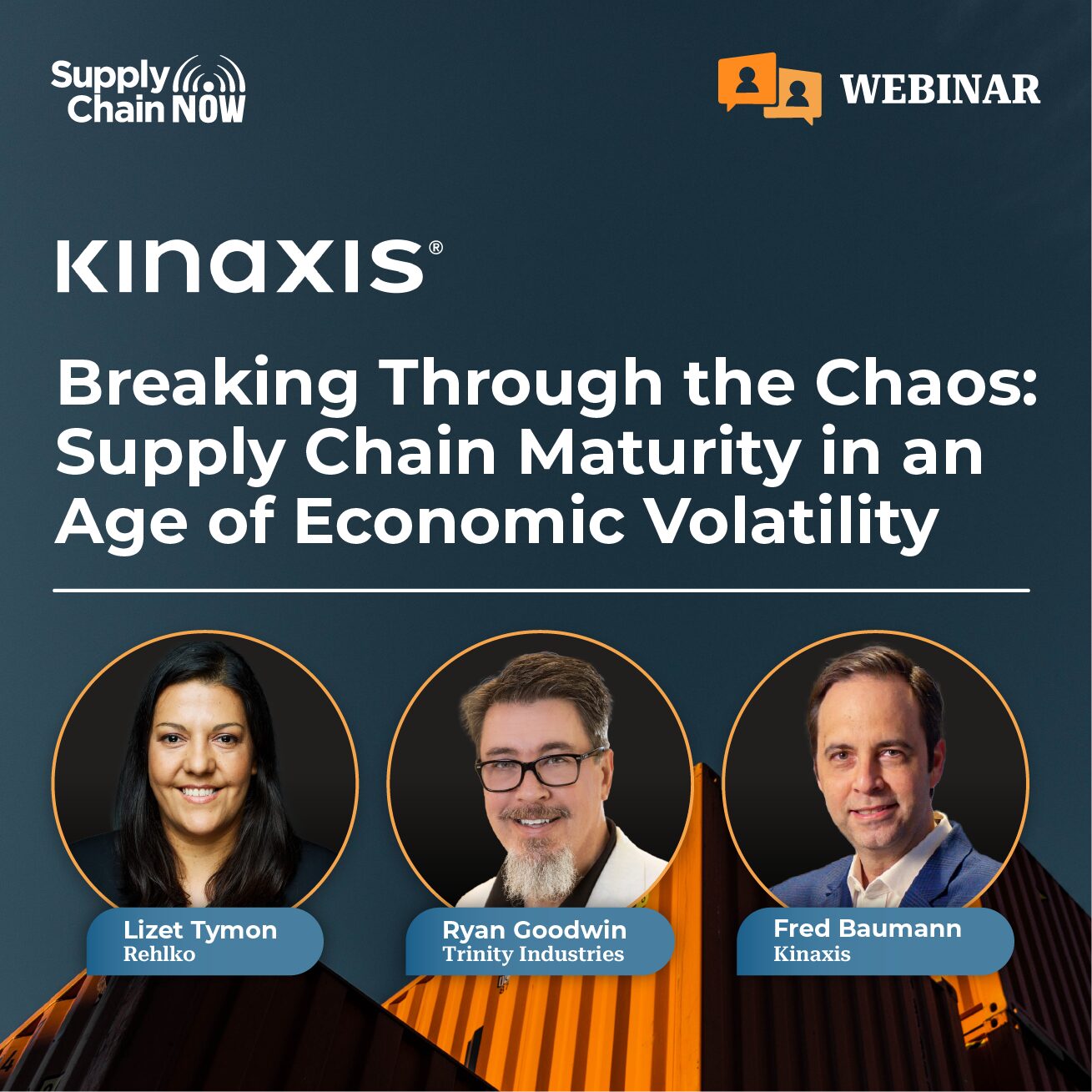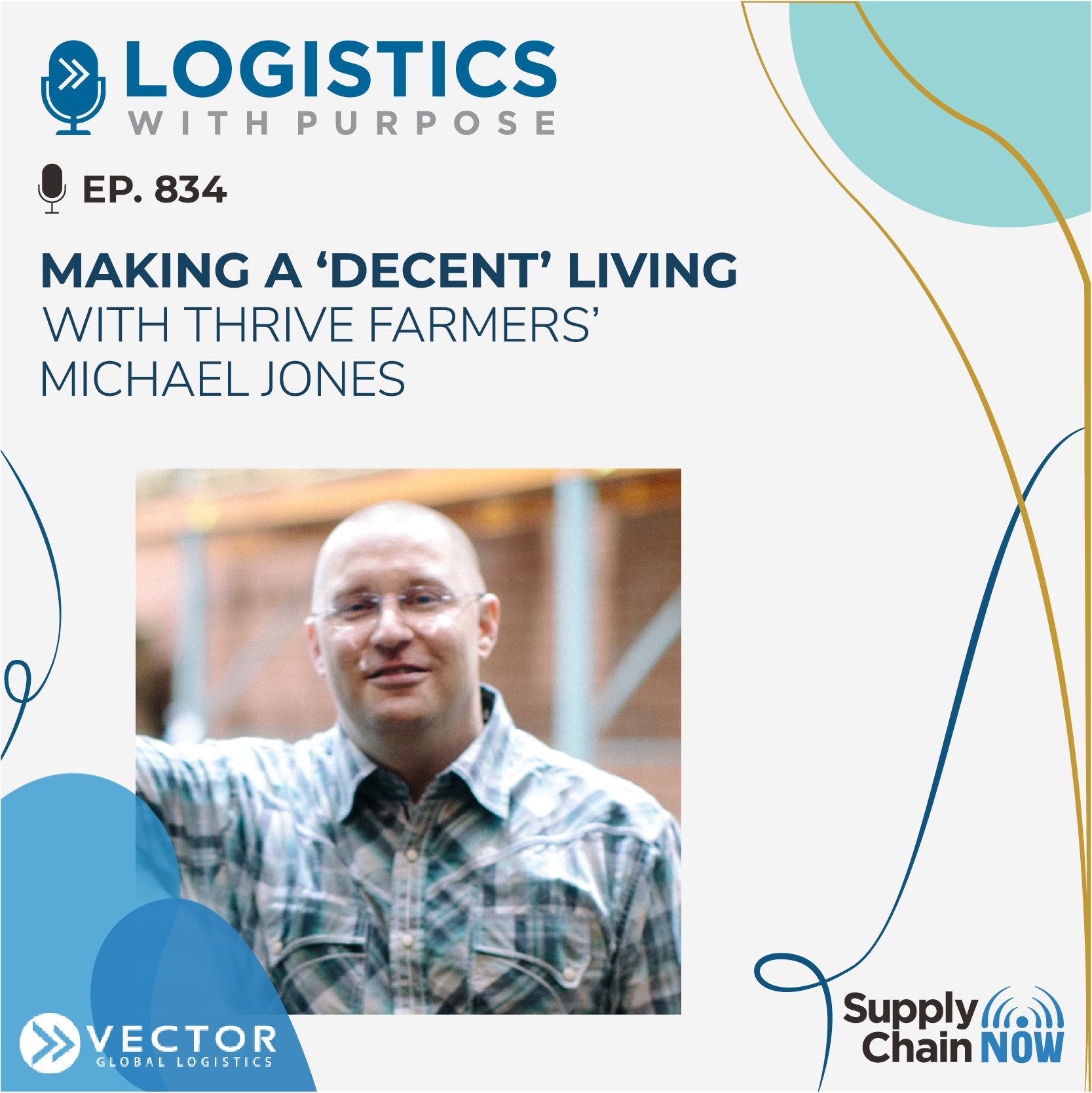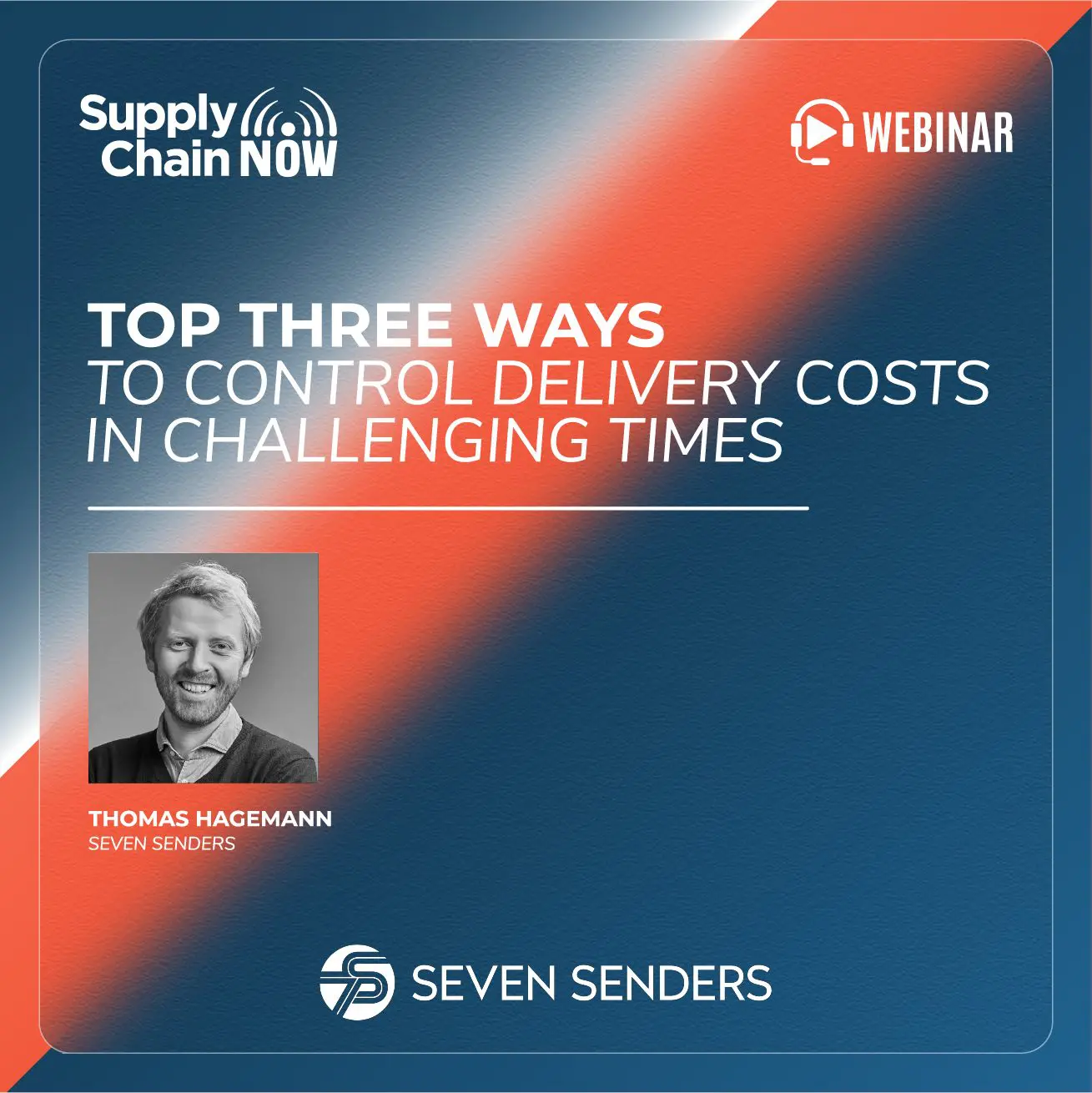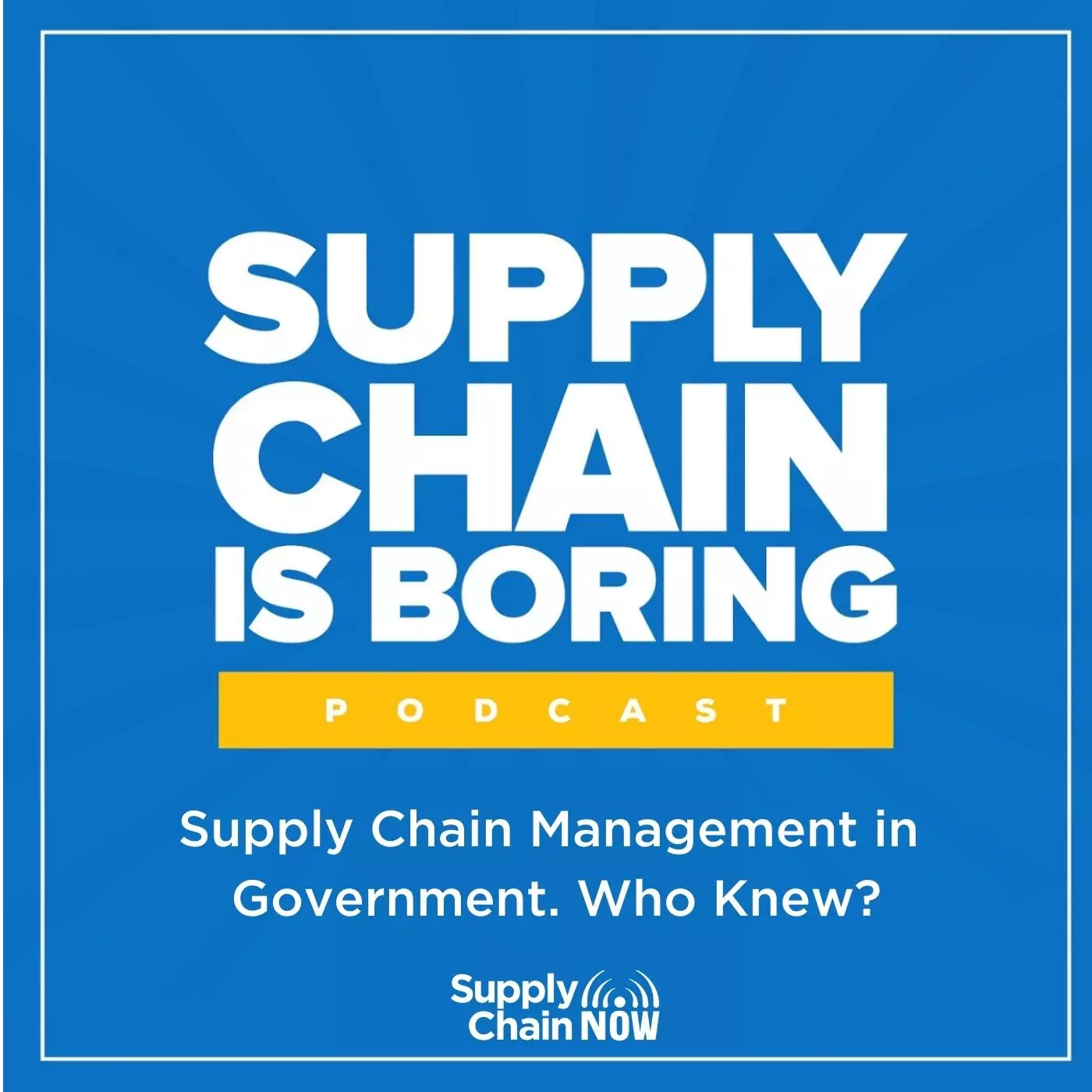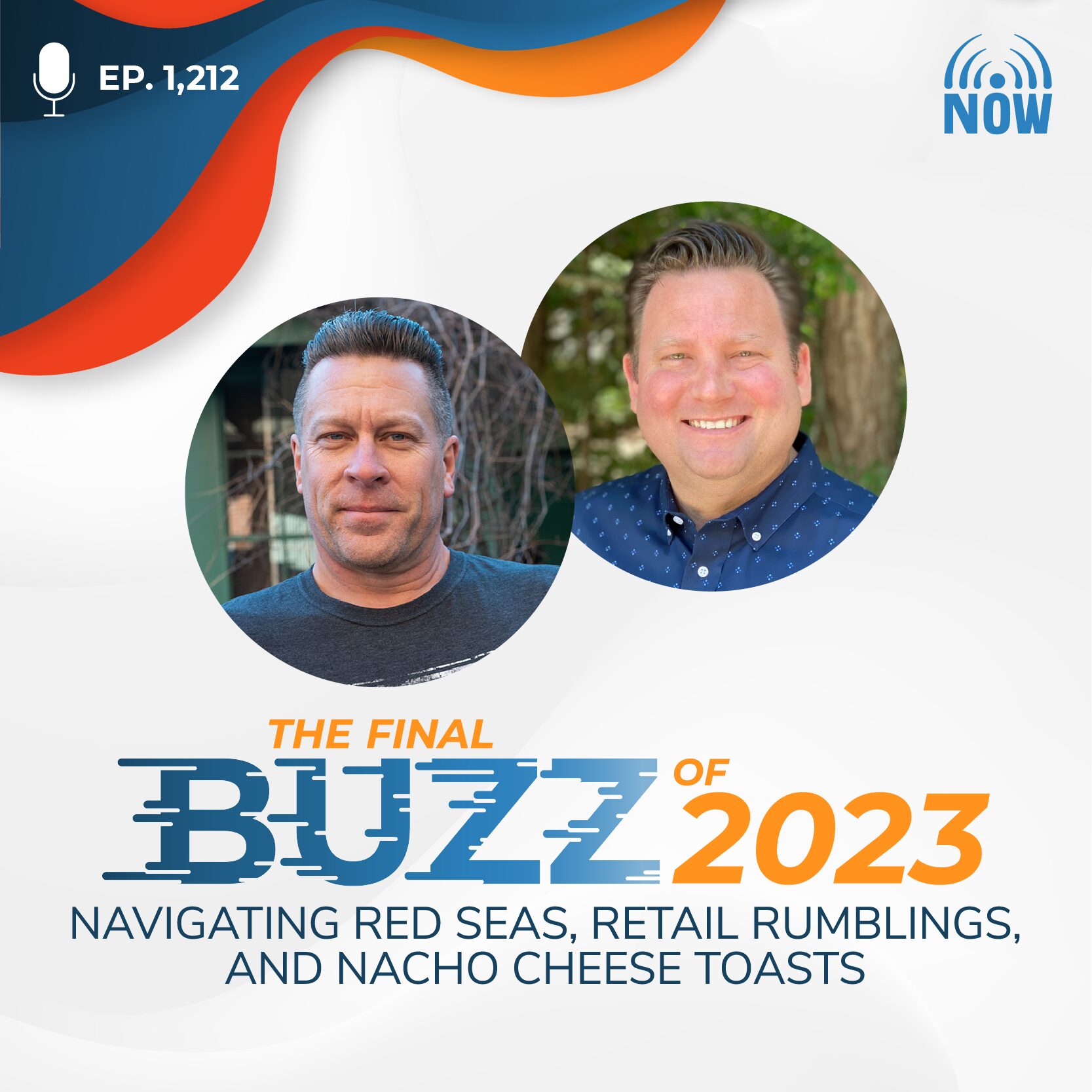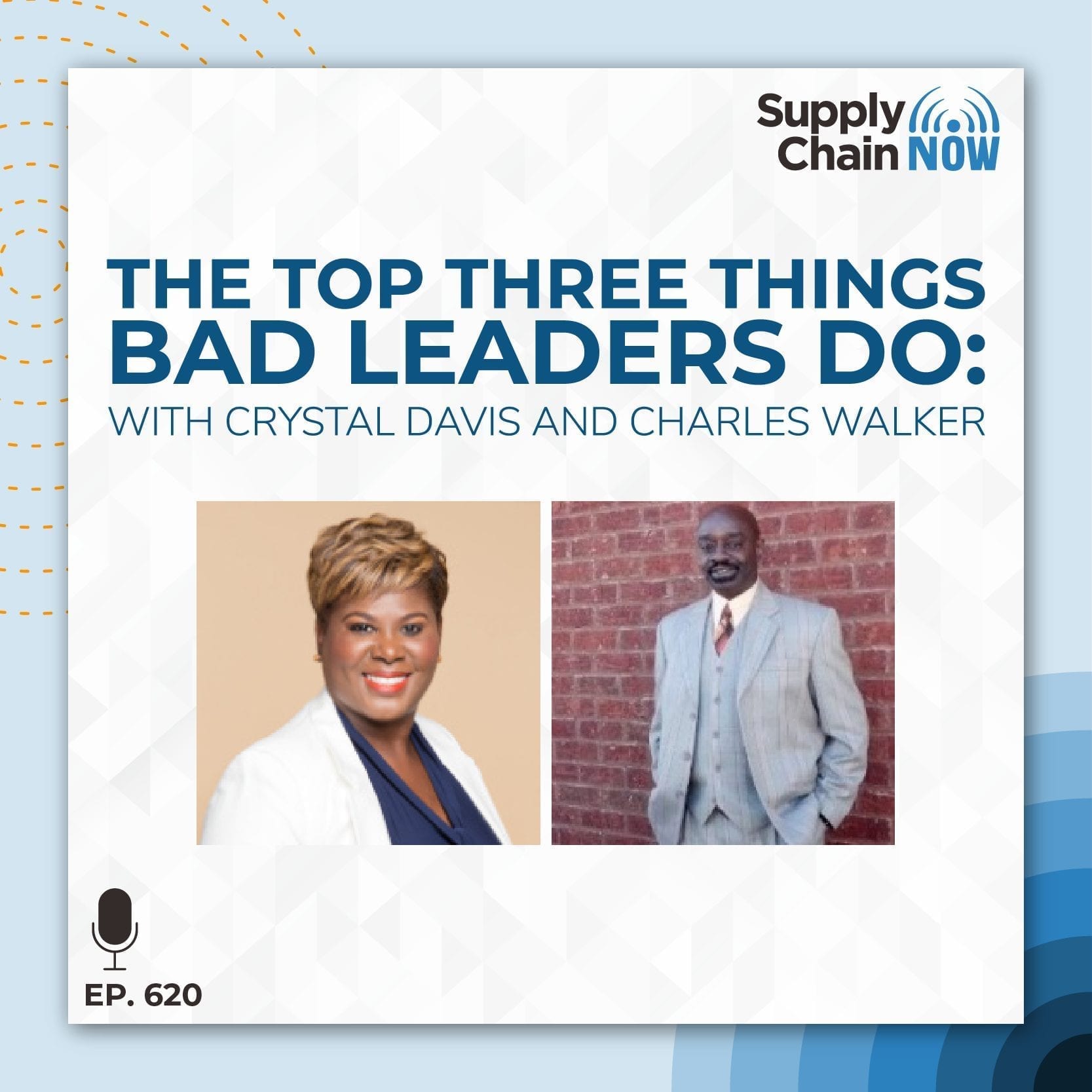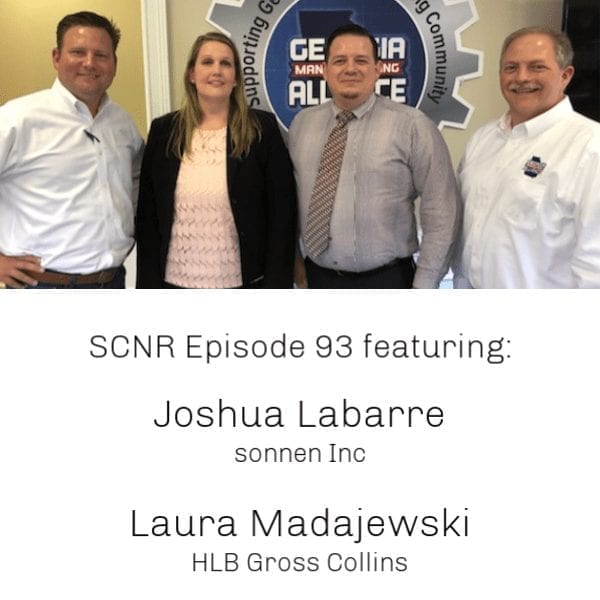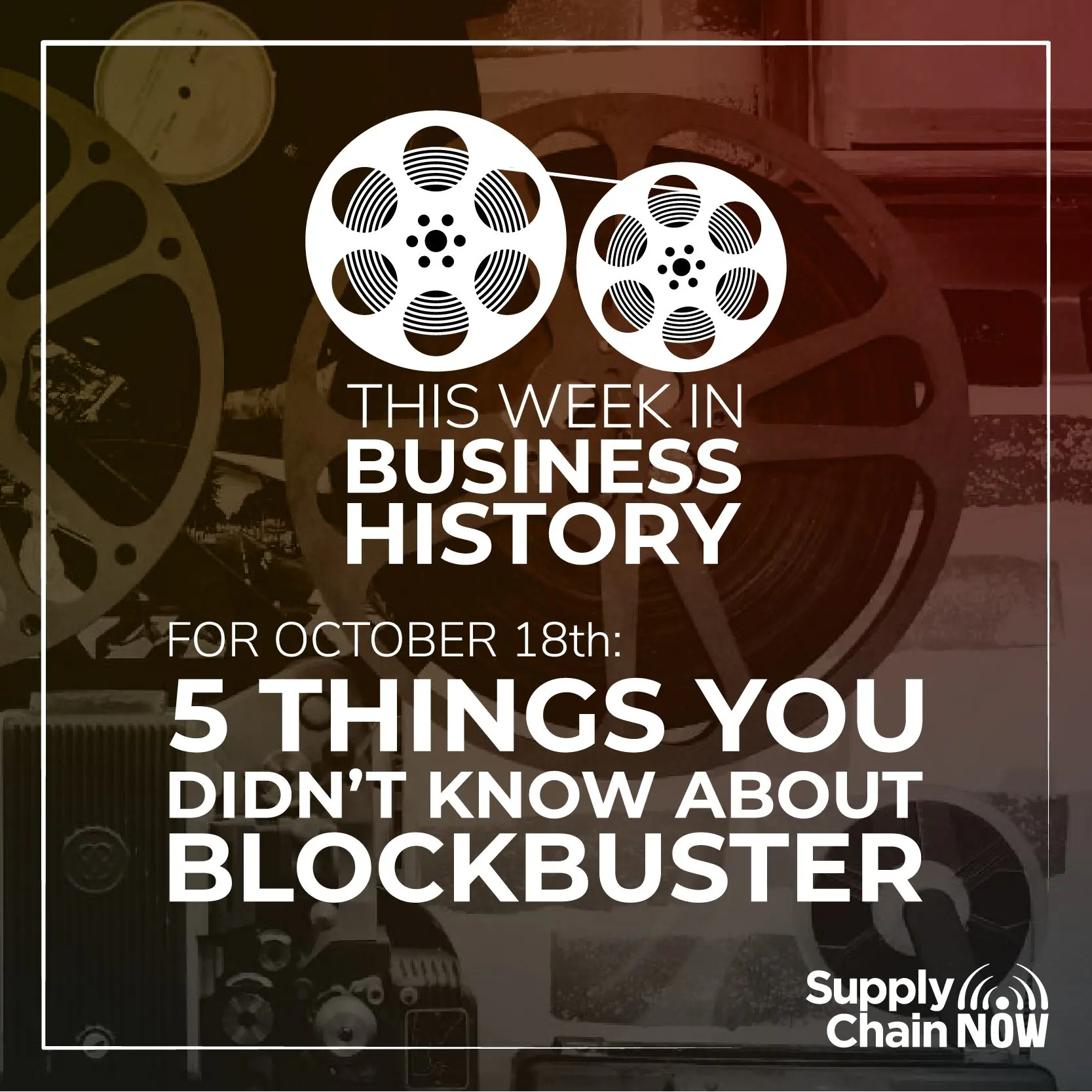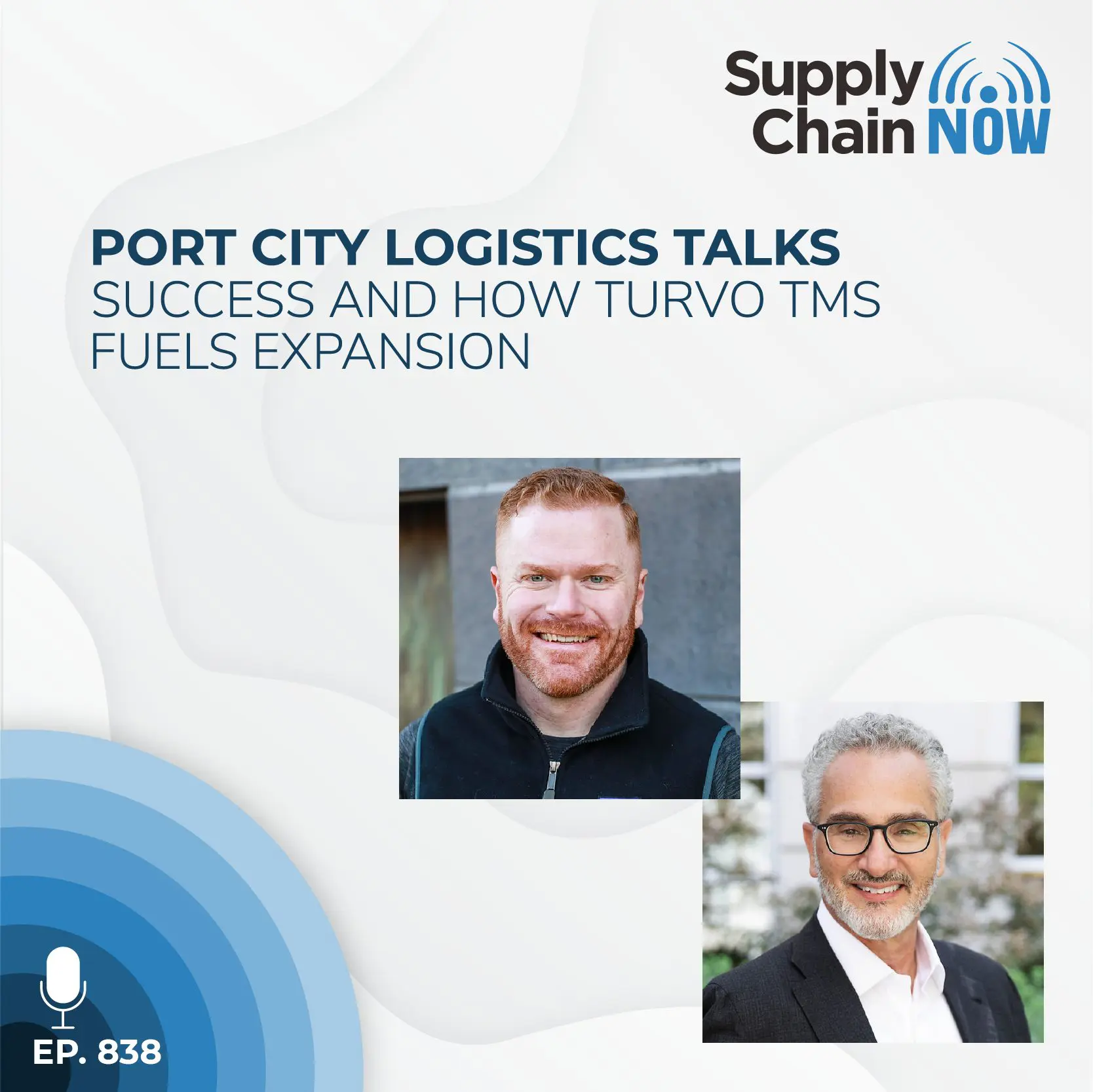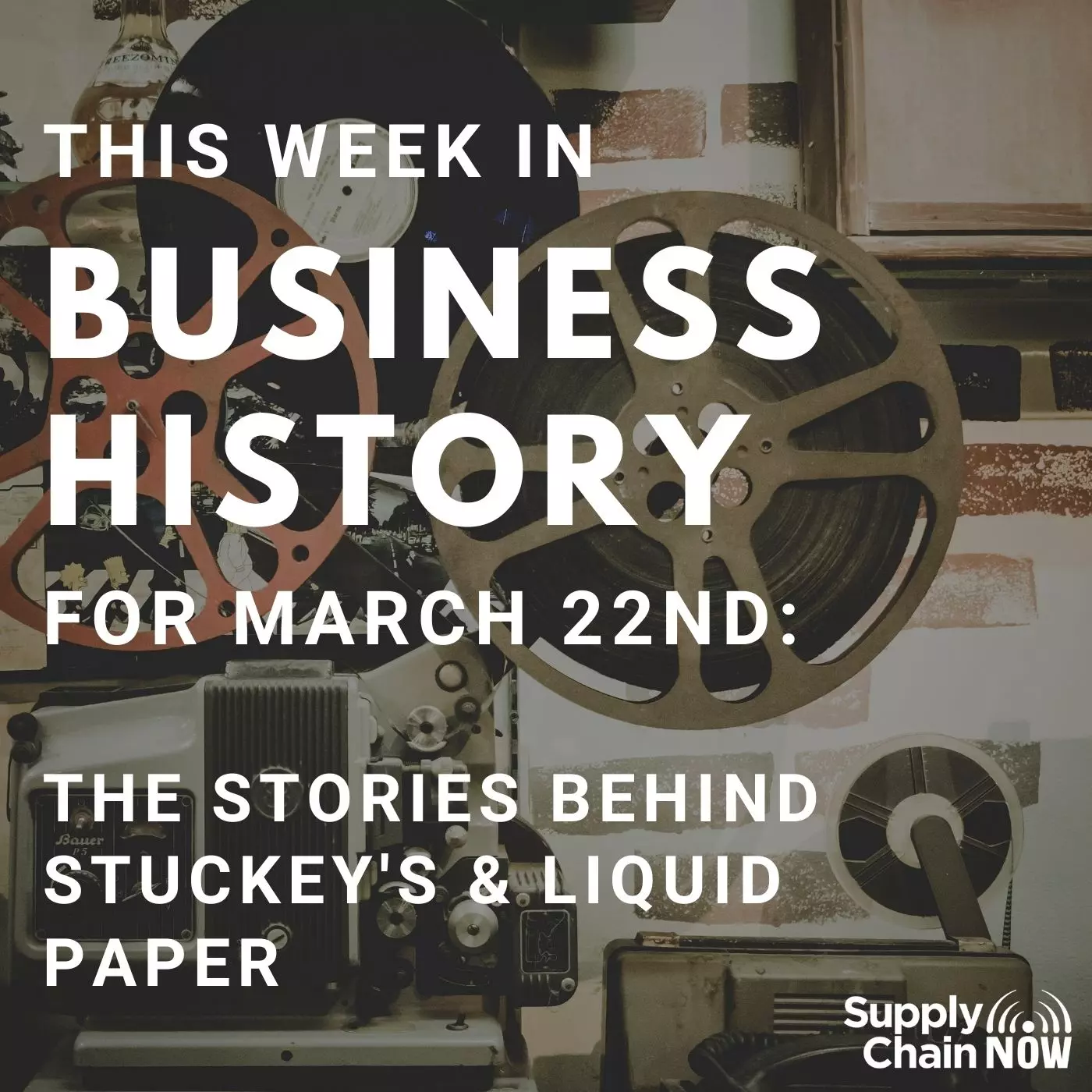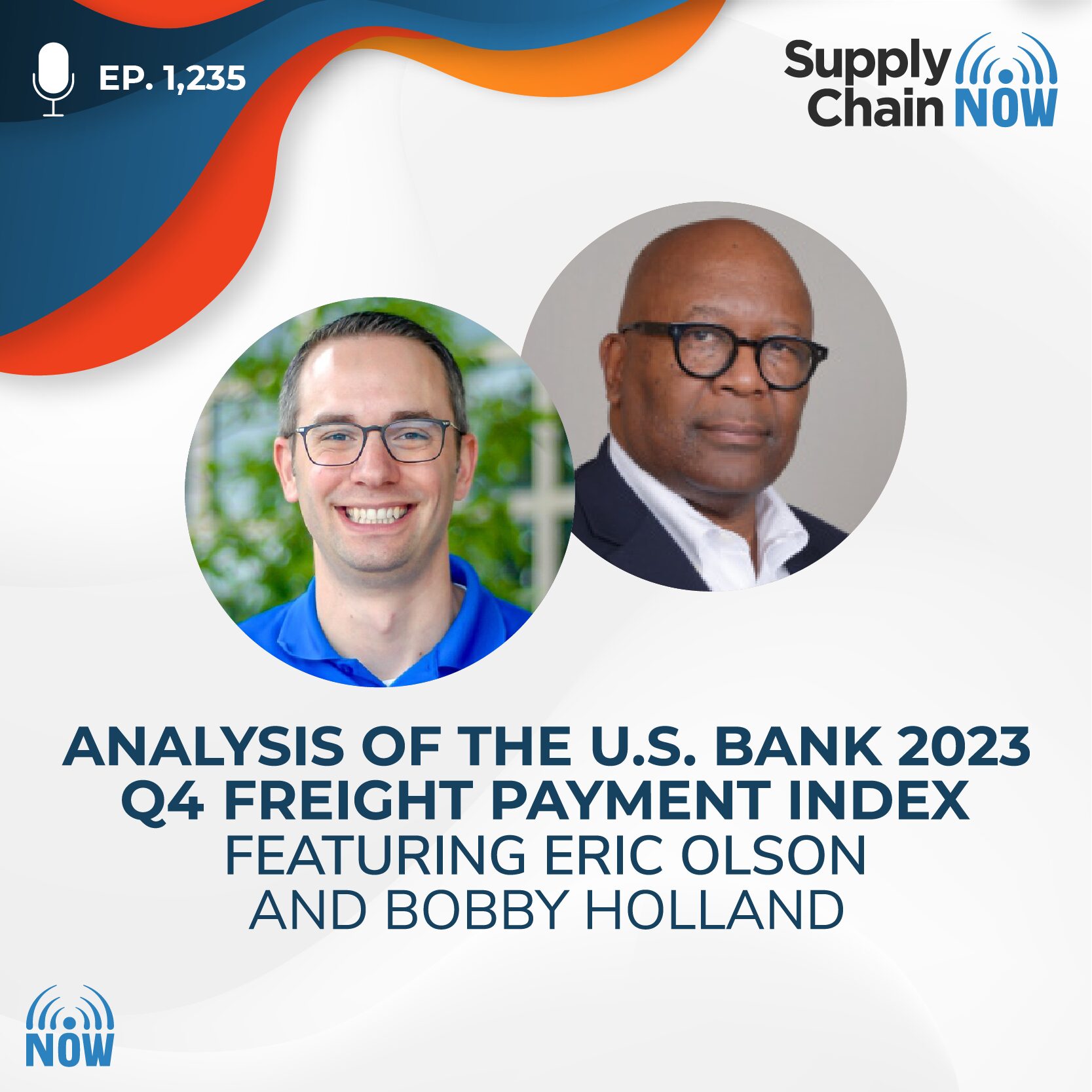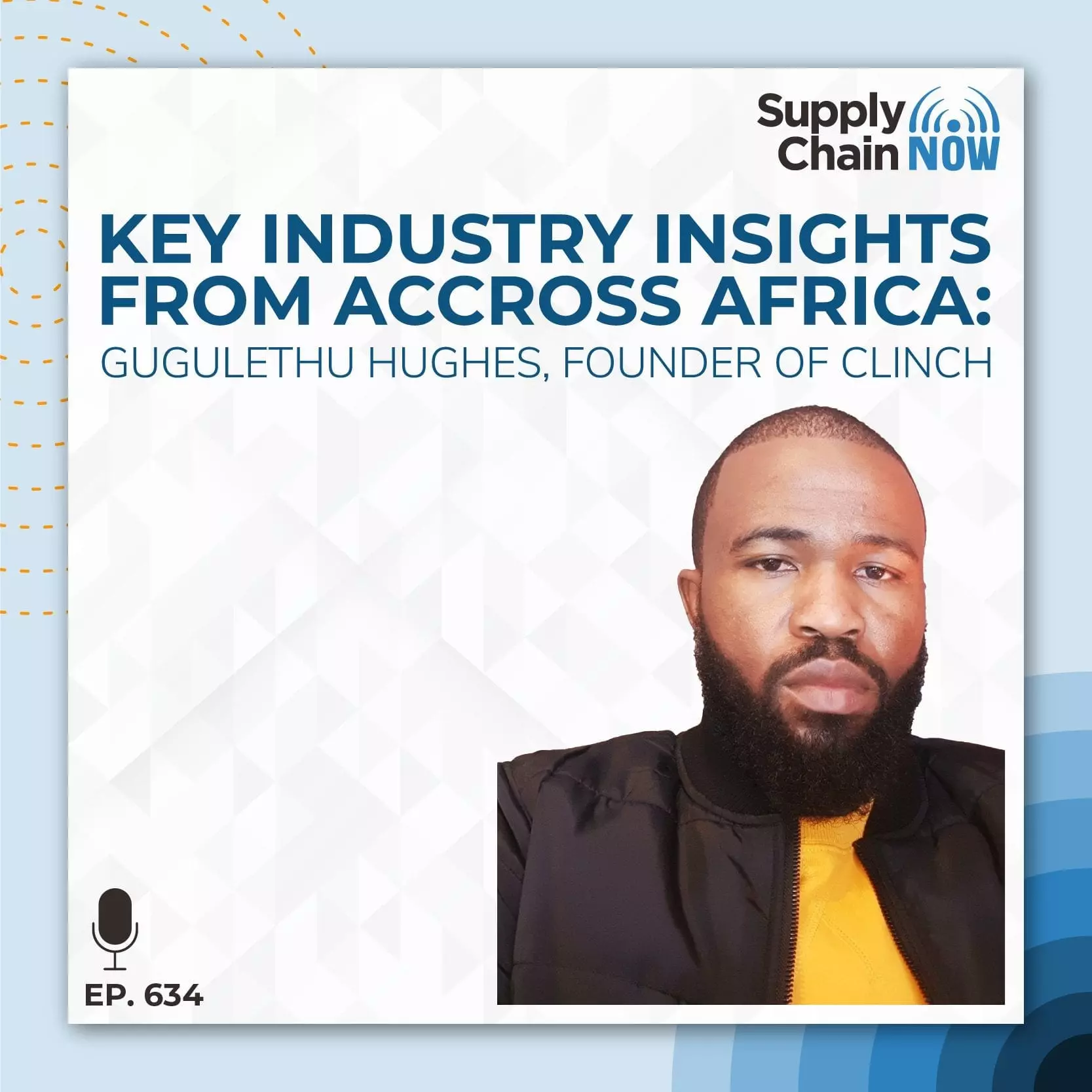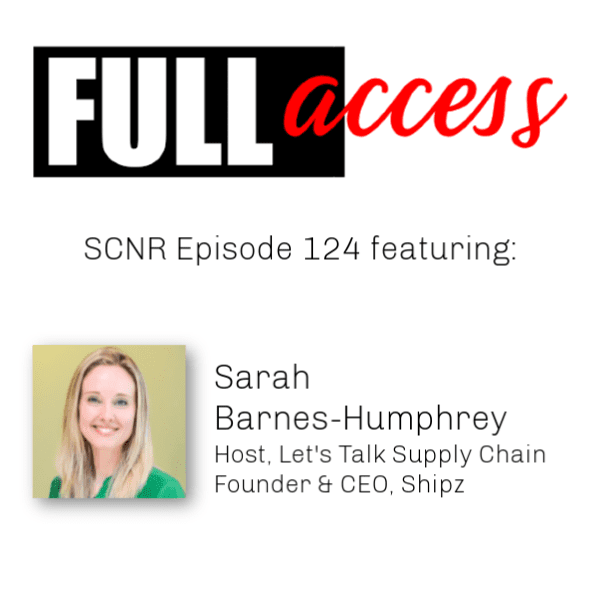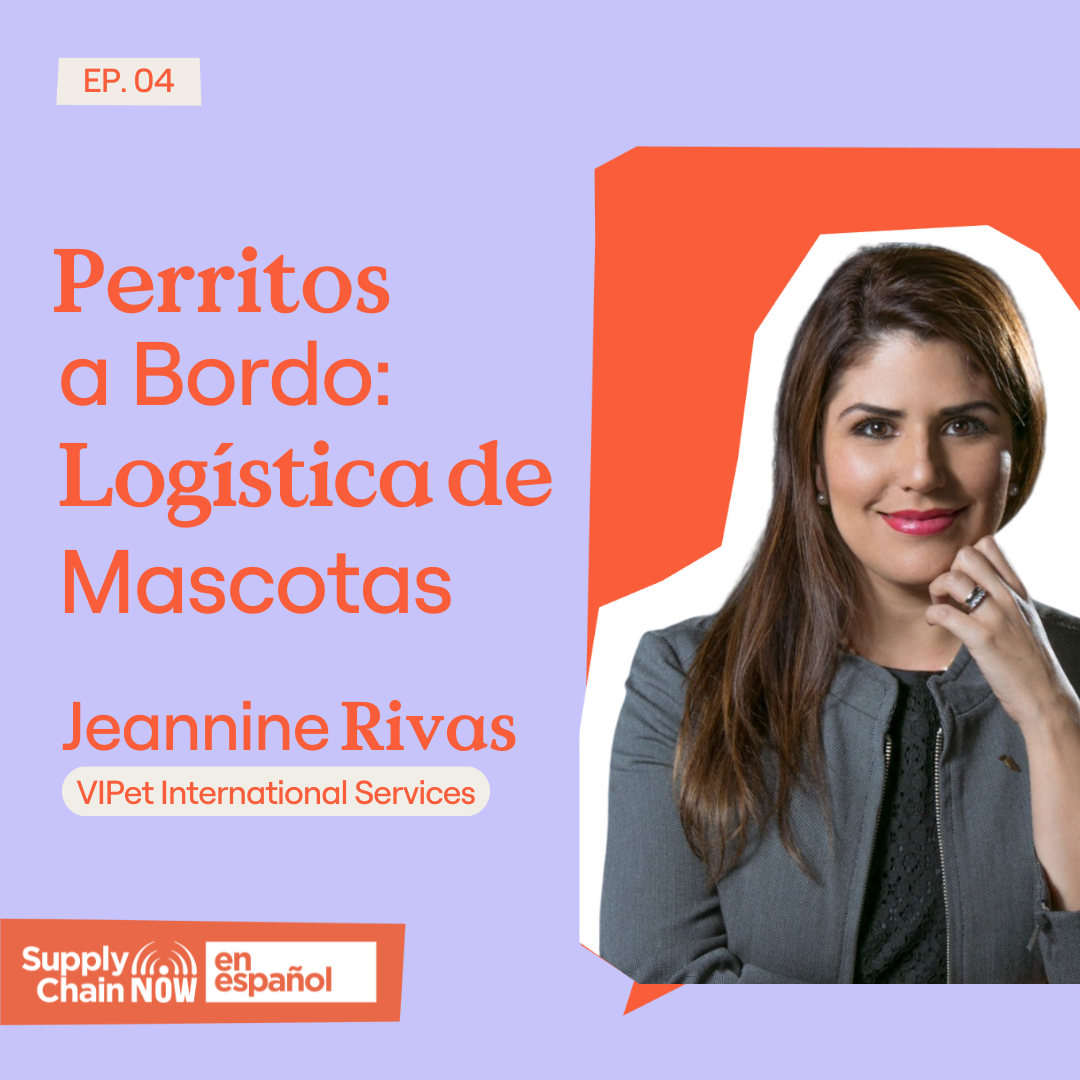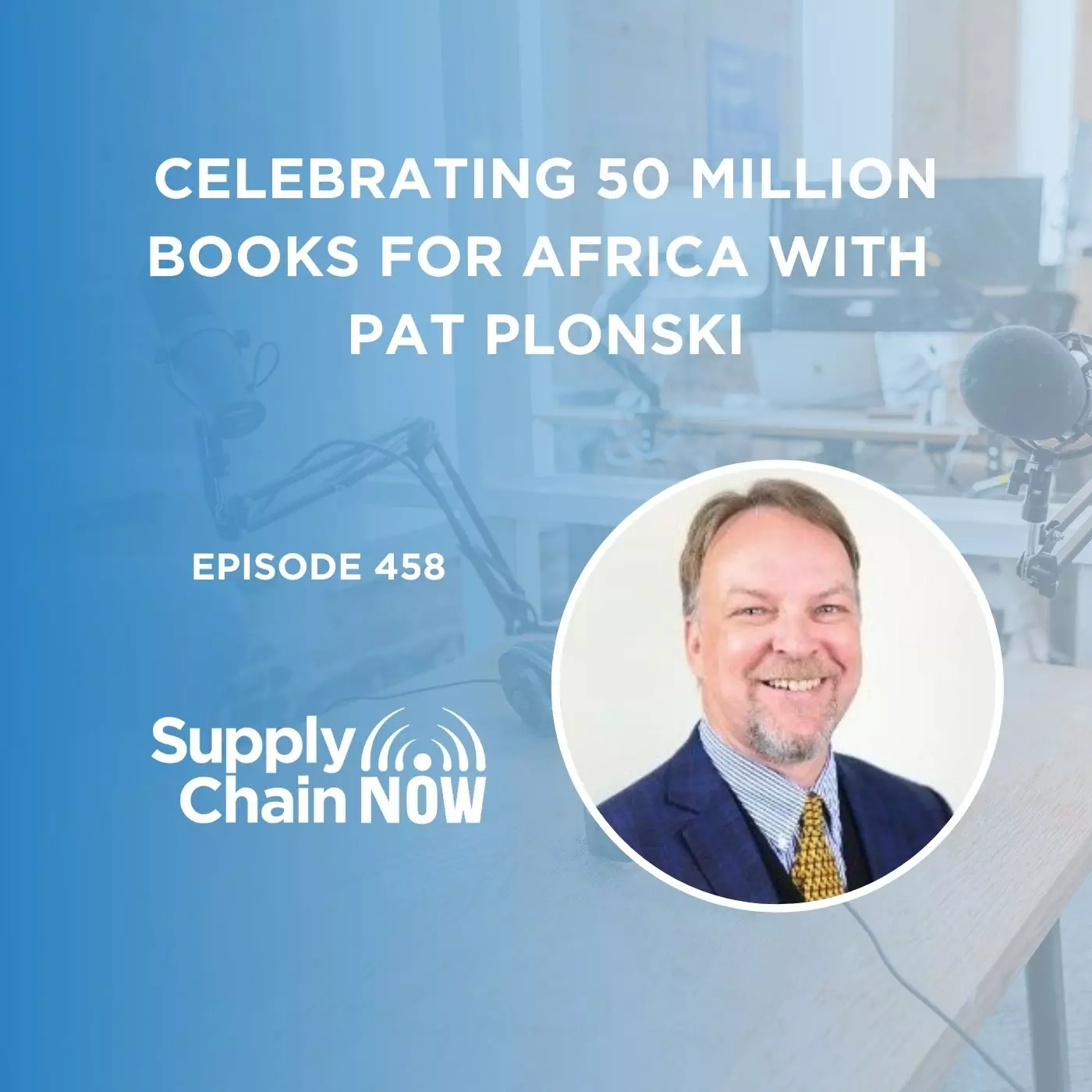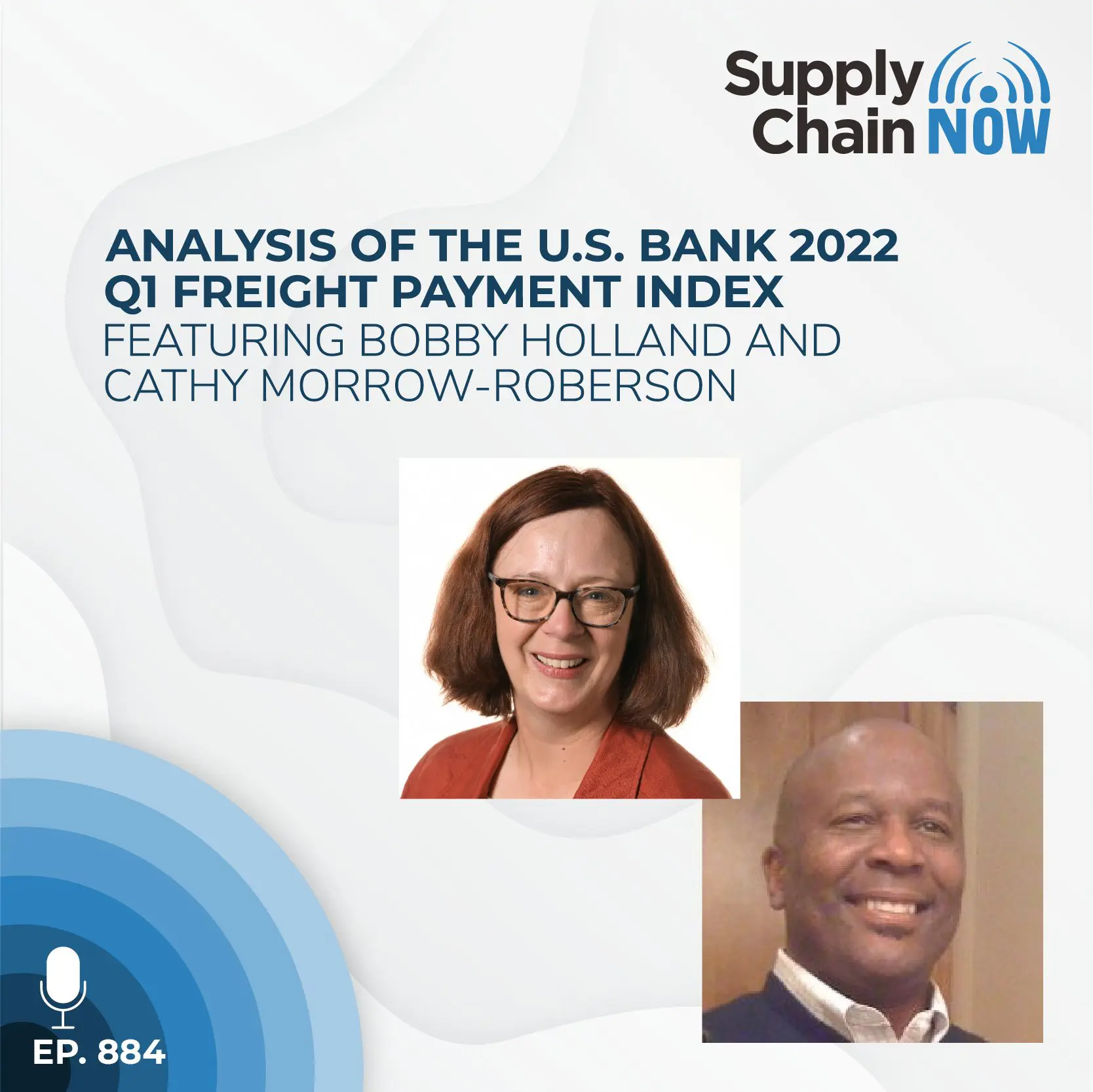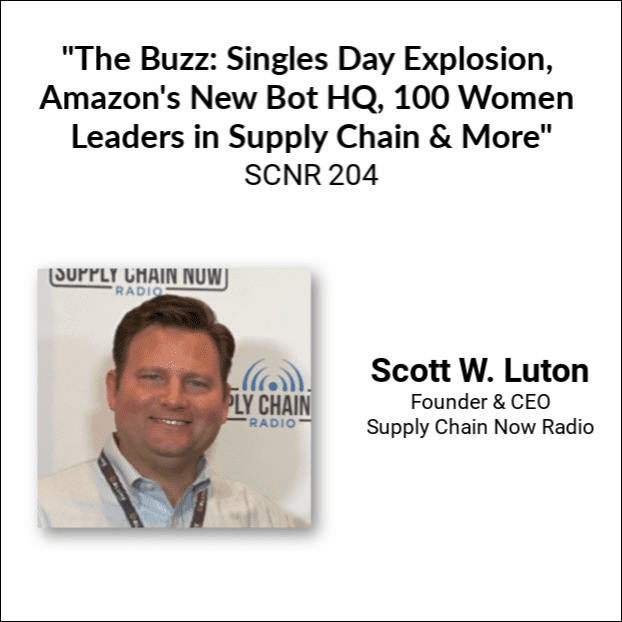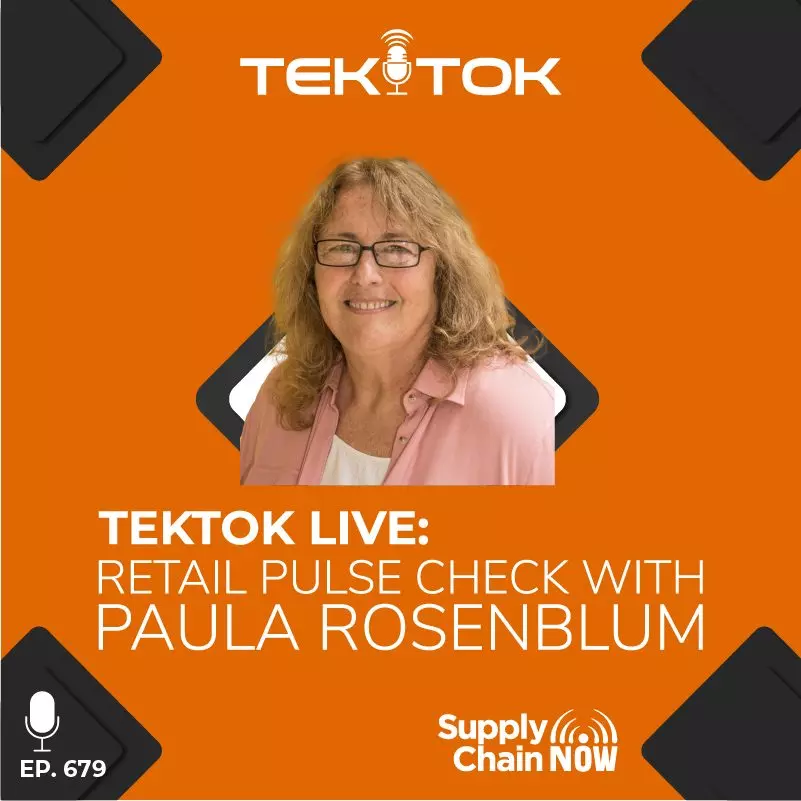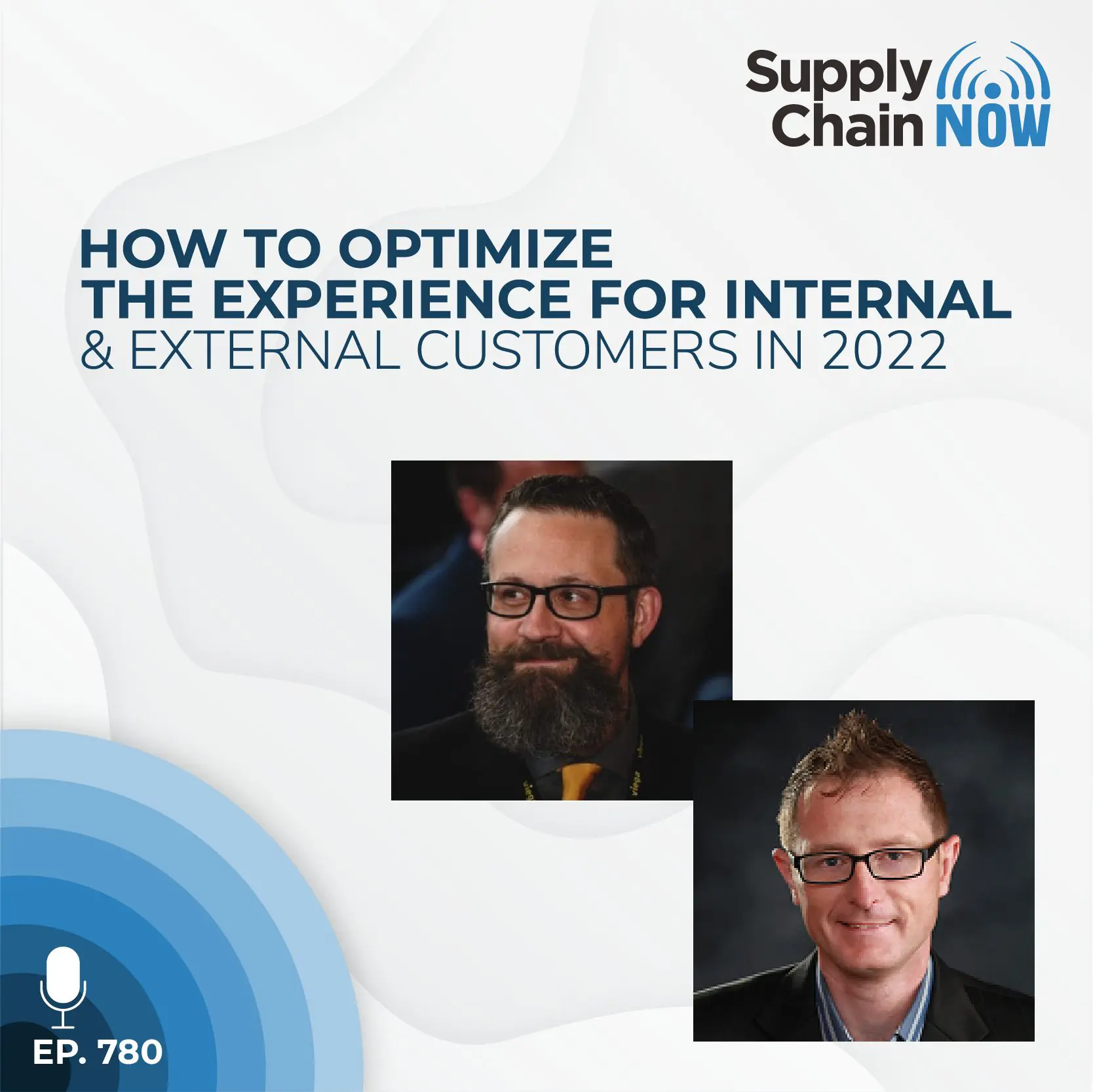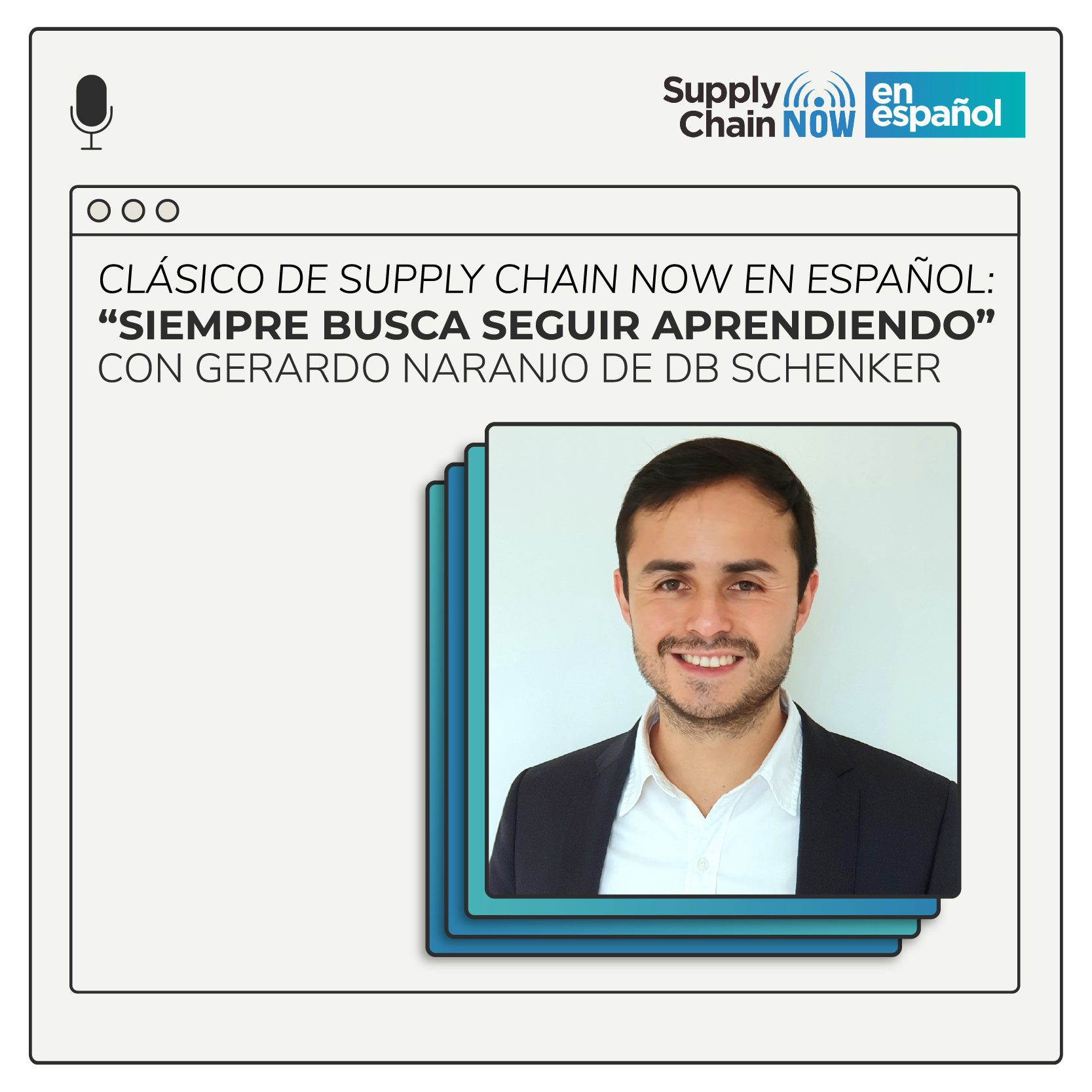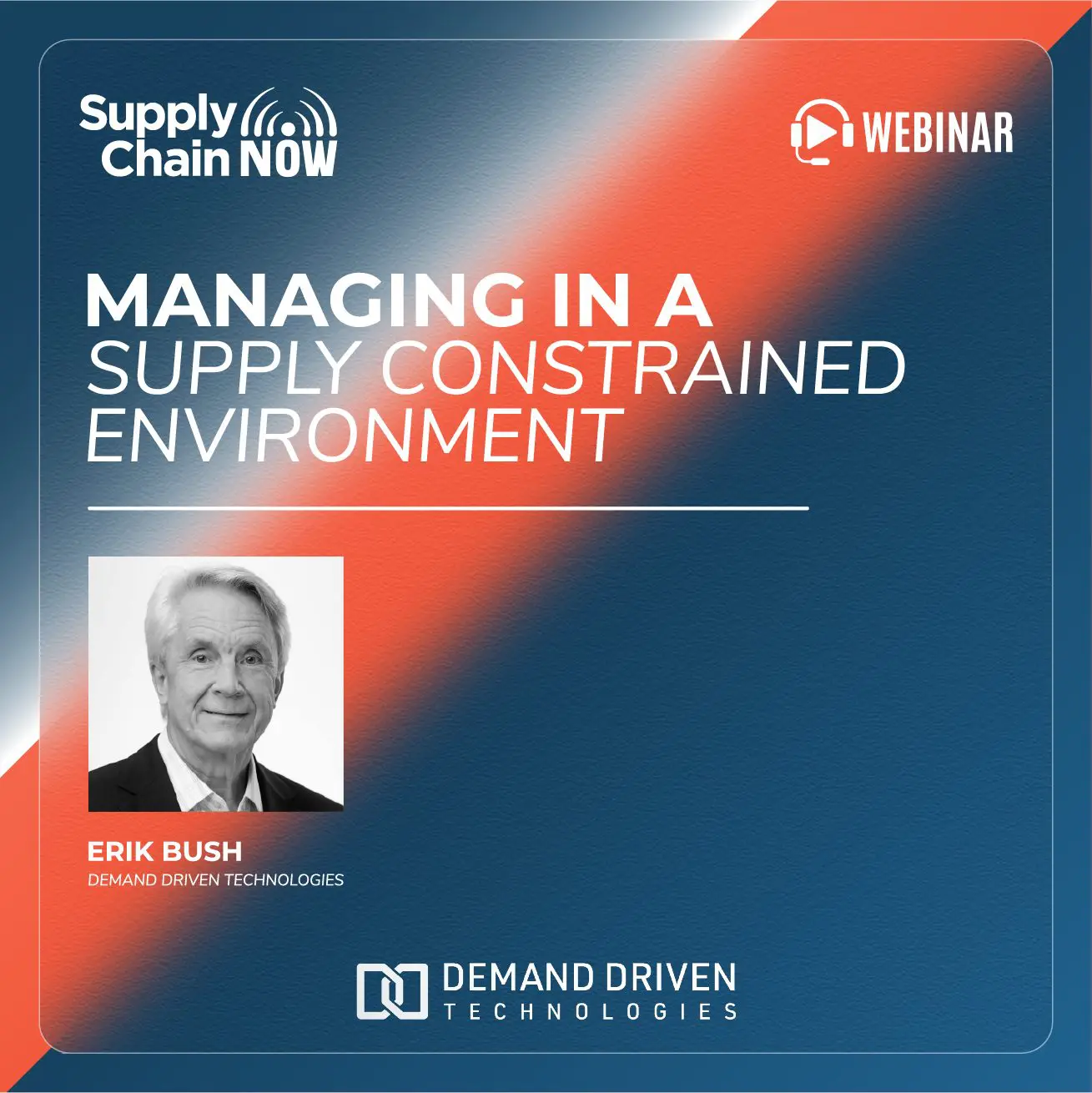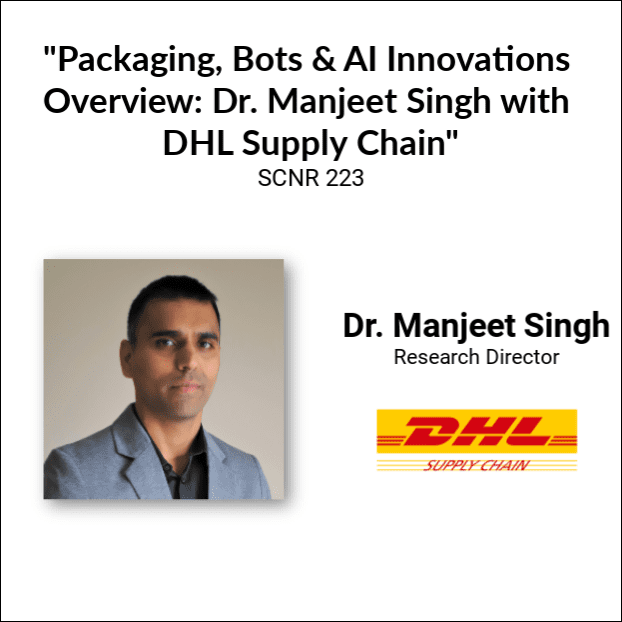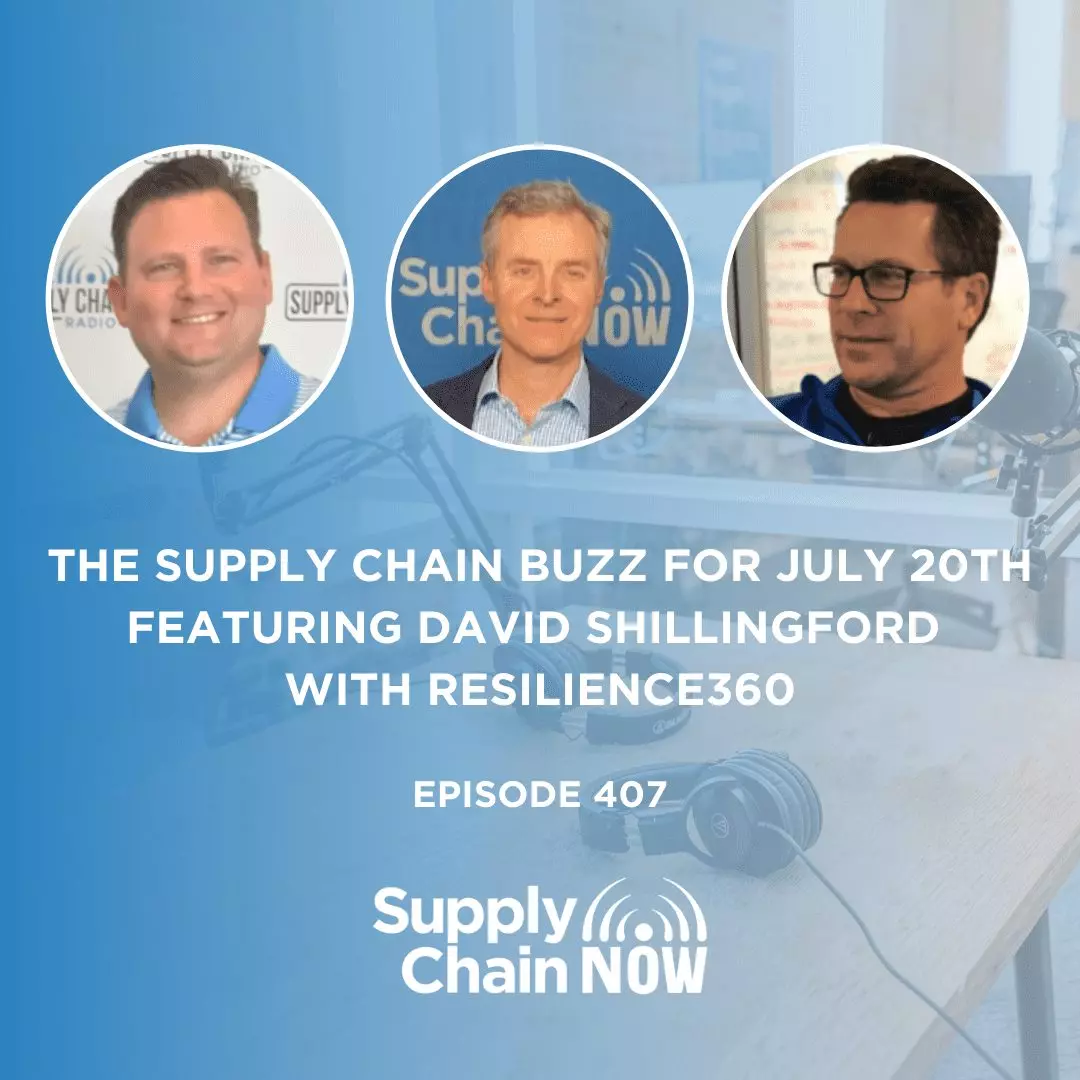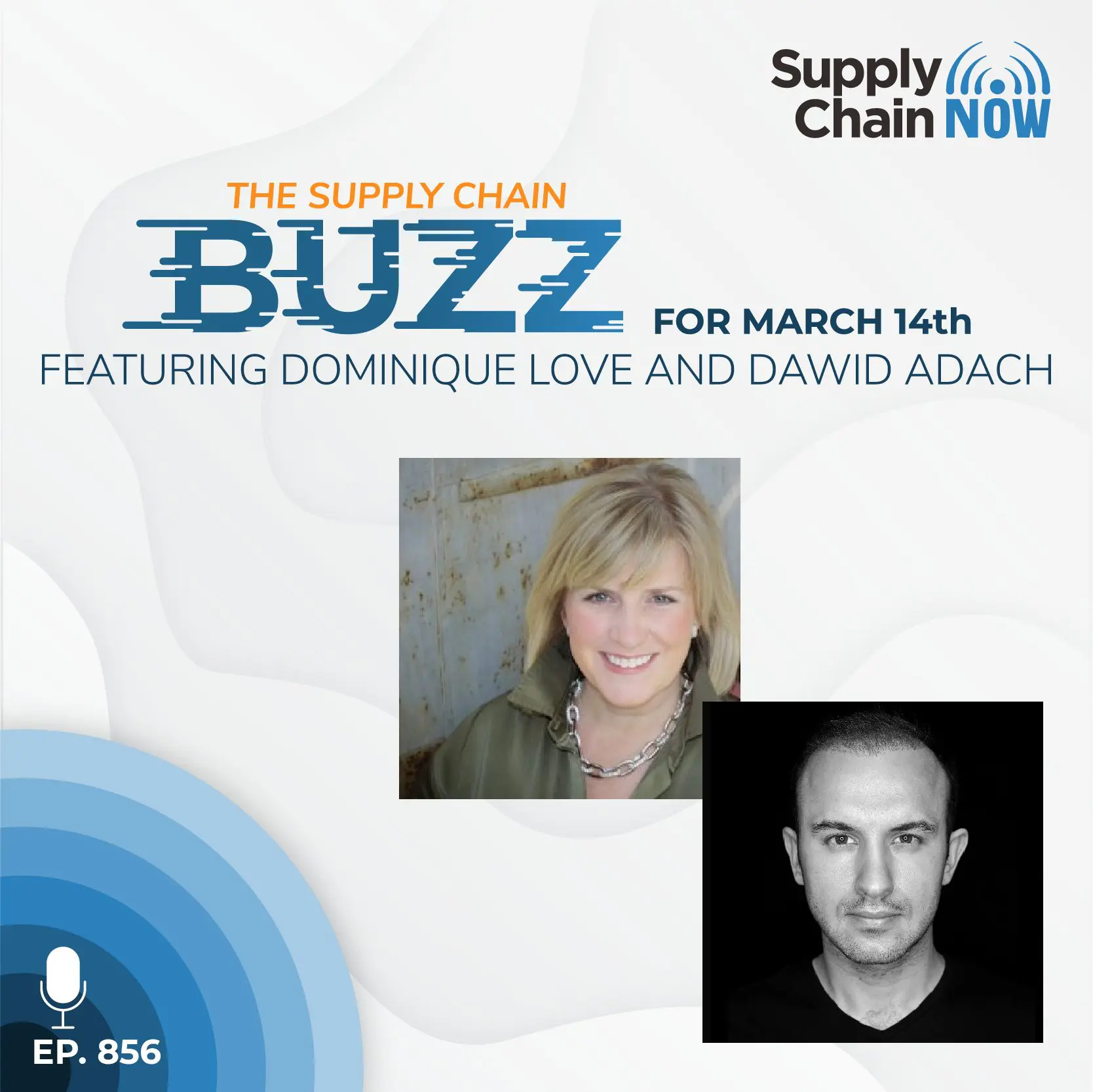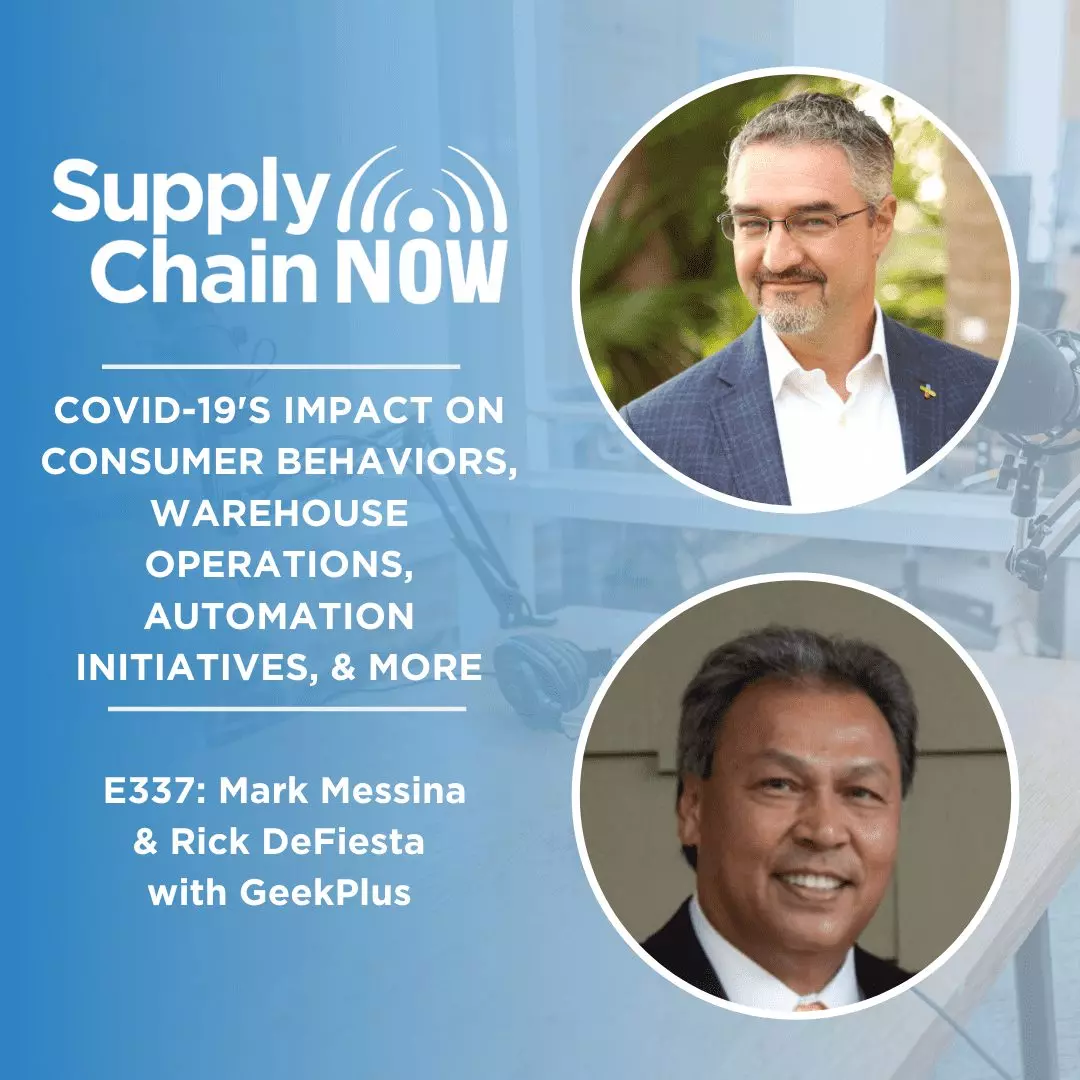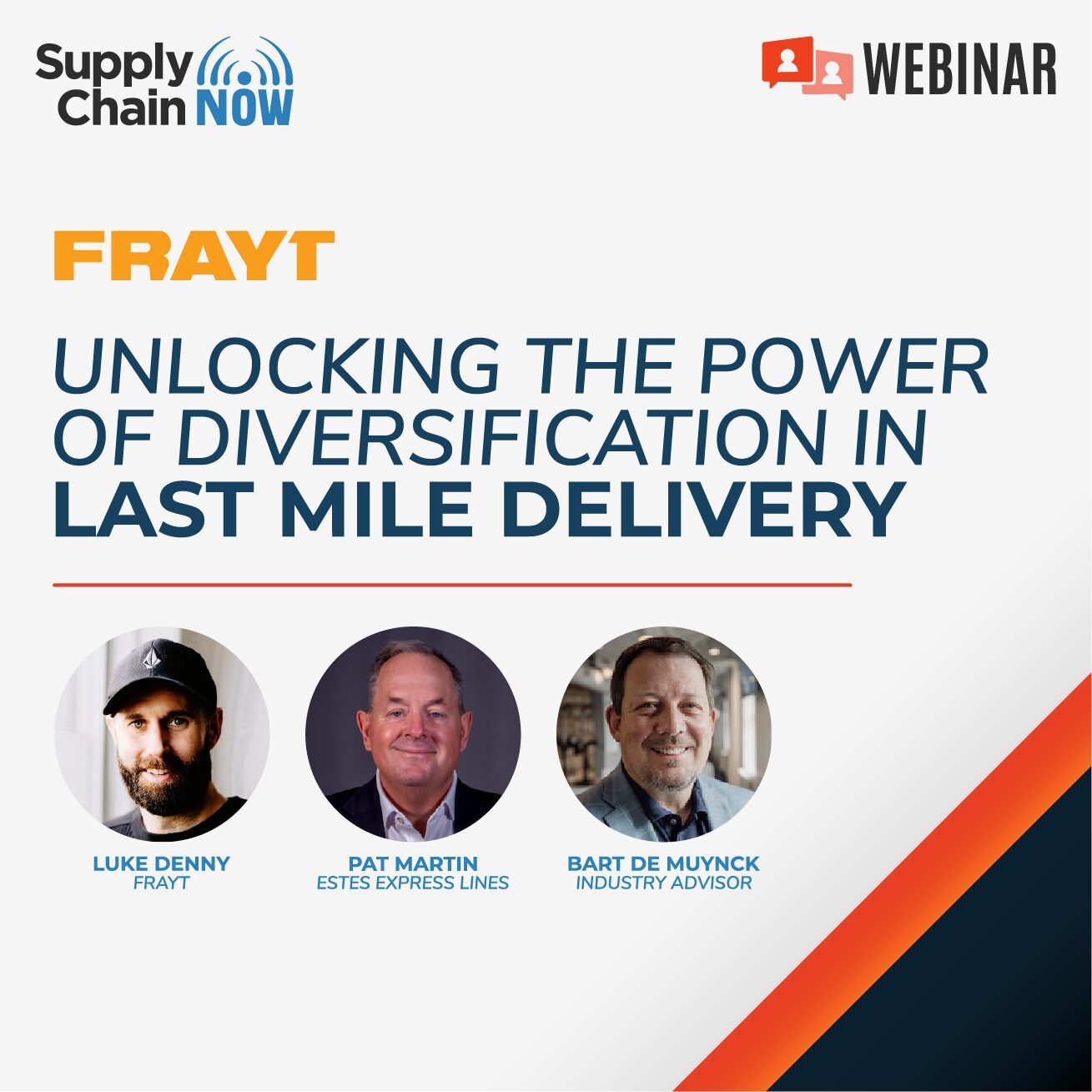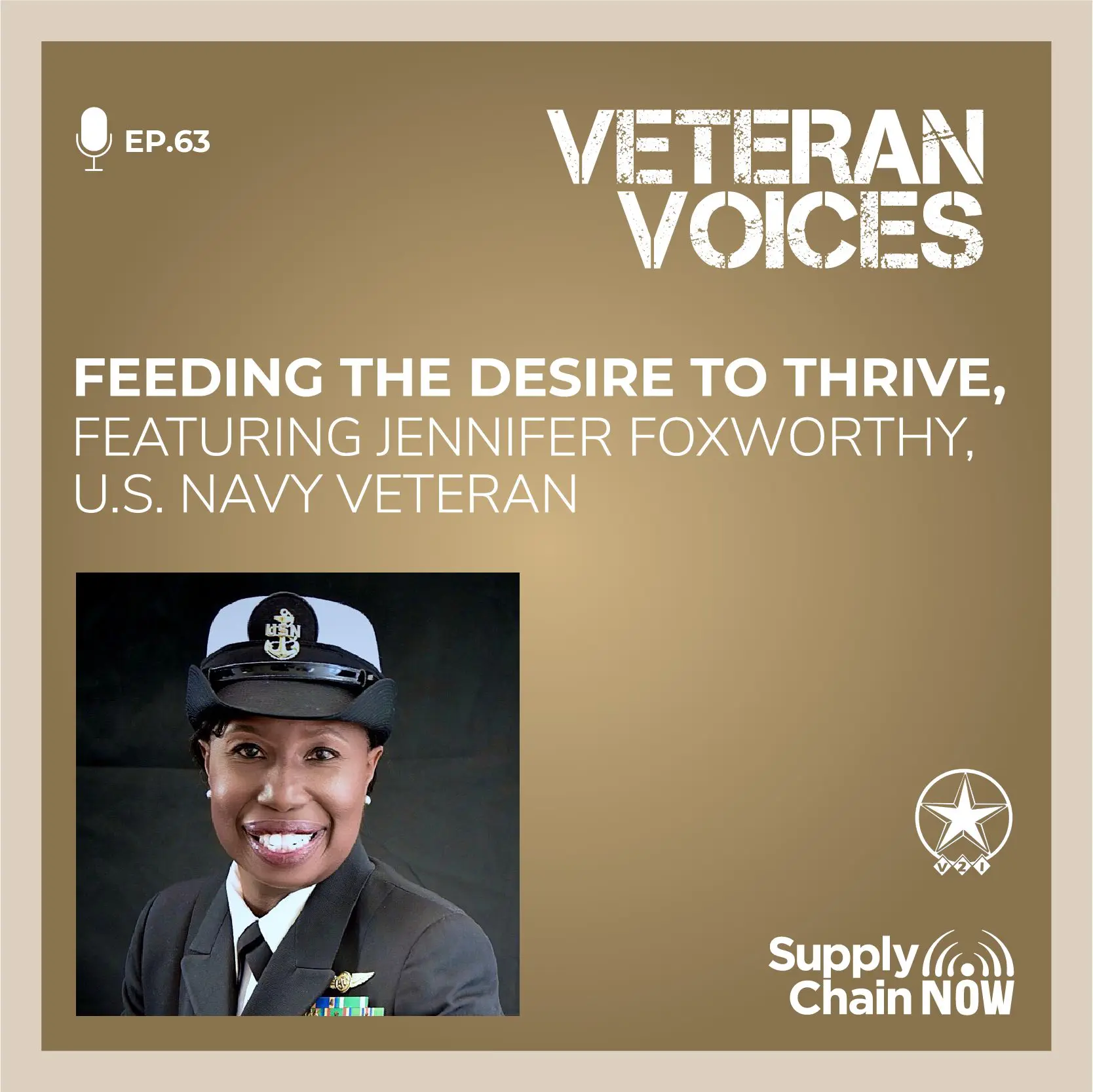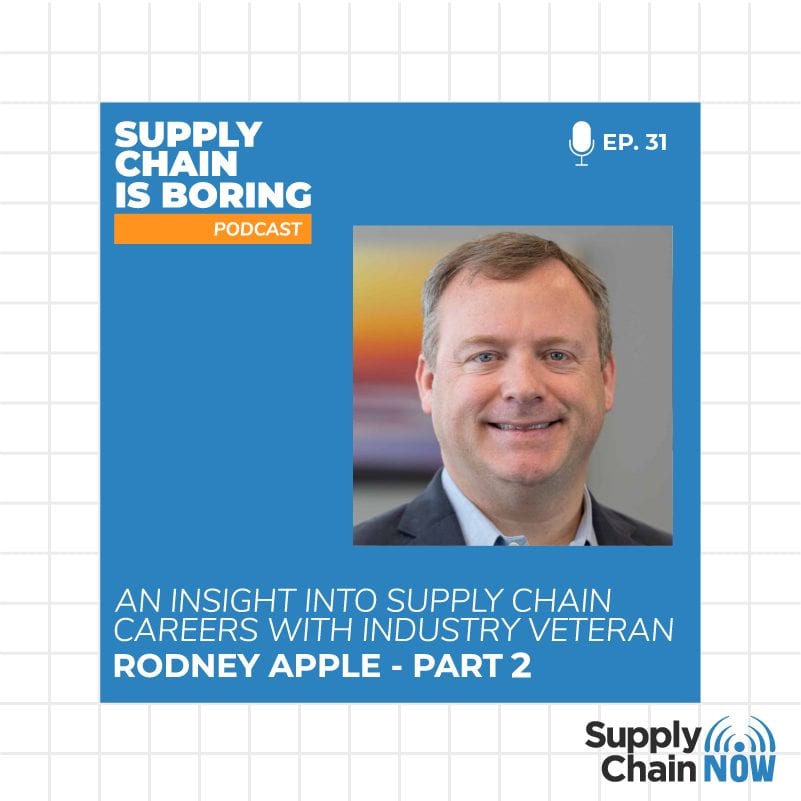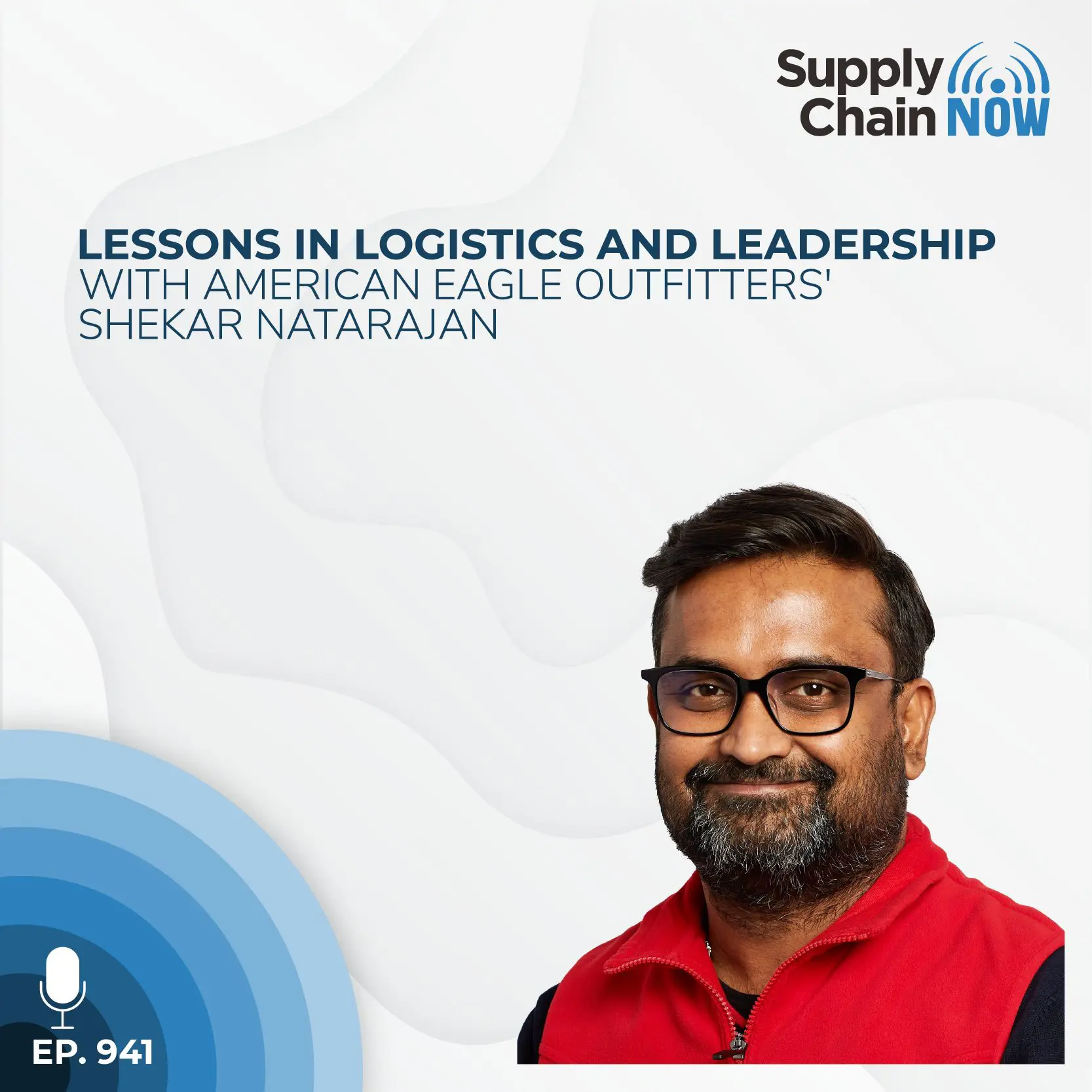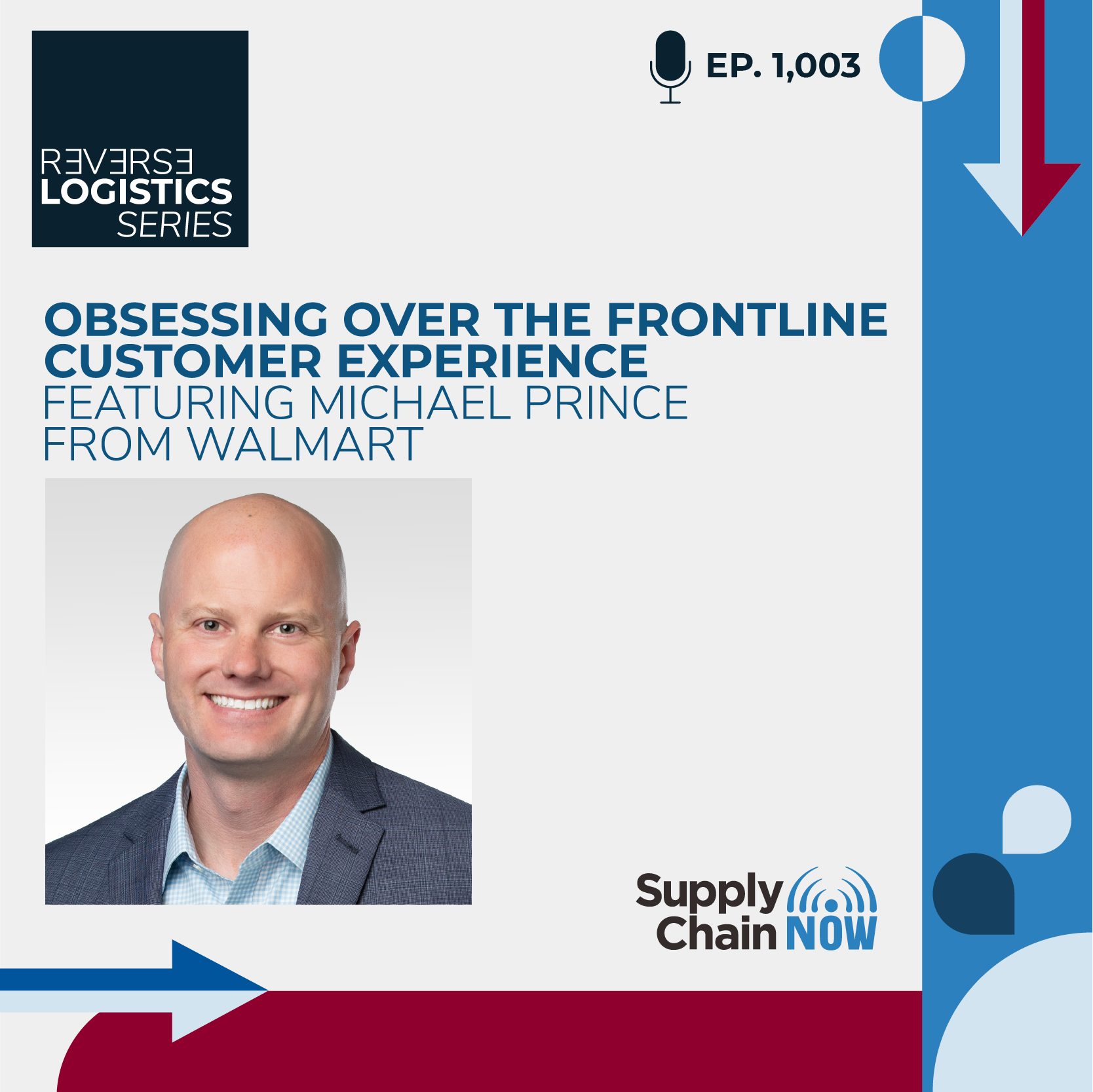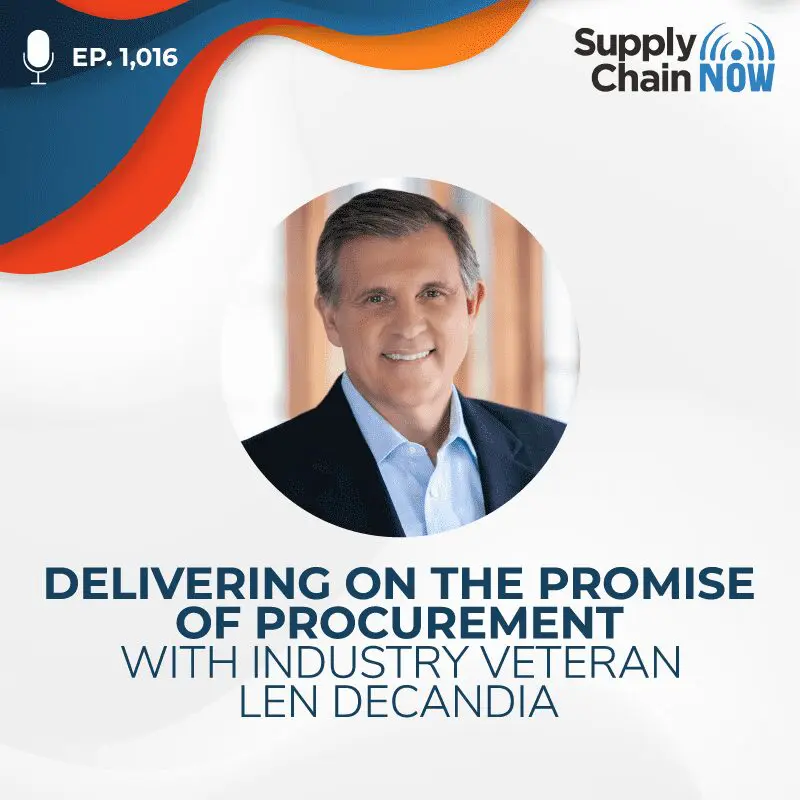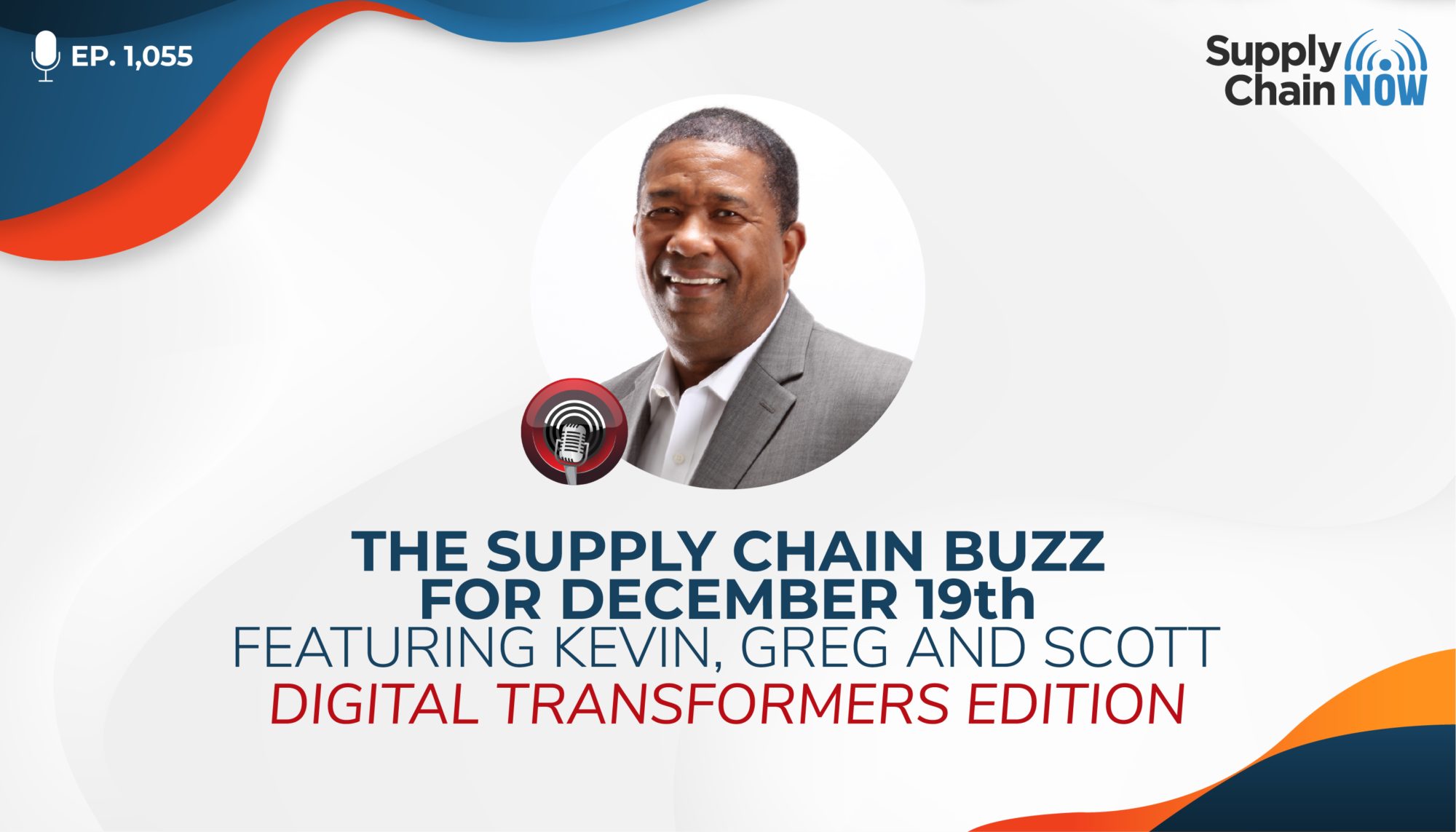
These tools help humans better communicate, better collaborate, right? But the humans need to know that context, why you're bringing this technology. They have to know that they're not bringing the technology in to replace the humans. You're bringing the technology in to help the humans.
-Kevin L. Jackson
Episode Summary
Digital transformation always sounds like a good idea, but how do you actually make it successful? On this week’s Buzz, Kevin L. Jackson joins Scott and Greg to break down what it takes to future-proof your supply chain, why you need the right people and culture to pull off tech implementations, how to match digital transformation strategy to operations, how to engage the entire supply chain ecosystem and more.
Episode Transcript
Intro/Outro (00:00:03):
Welcome to Supply Chain. Now the voice of global supply chain supply chain now focuses on the best in the business for our worldwide audience, the people, the technologies, the best practices, and today’s critical issues, the challenges and opportunities. Stay tuned to hear from those Making Global Business happen right here on supply chain now.
Scott Luton (00:00:31):
Hey. Hey. Good morning, good afternoon, good evening, Scott Luton, Greg White and Kevin Jackson here with you for today’s supply chain. Now Buzz. So welcome to today’s livestream, Greg. How we doing today?
Greg White (00:00:44):
Quite well. Big day for my family. Yesterday, of course, world Cup Argentina wins. Good to see something really good happen to Argentina. And in classic fashion we had it won.
Kevin L. Jackson (00:00:56):
I messier also.
Greg White (00:00:57):
What’s that? Yeah. Messy. Yeah.
Kevin L. Jackson (00:00:59):
Must. Yeah. He said he scored in every round. Yeah. Of, of the, um, cut. I mean, that’s something else.
Greg White (00:01:06):
Yeah. And man, and I Mbae, who I’m a big fan of also cause he plays on the Tottenham Hot, uh, wow. Almost singlehandedly. Took that game back. Just unbelievable game. Uh, it shows the power of Scott. We talked about this earlier today of when you have somebody down, put ’em down harder, right? <laugh>.
Kevin L. Jackson (00:01:28):
<laugh>,
Greg White (00:01:29):
They let up, right? They let up. And, and then of course France came back, a really quality team. And then eventually it goes to penalty kicks and, um, a after extra time. And of course the Chiefs won in backward fashion. Anyway, it was a great day. Discovered a new state.
Kevin L. Jackson (00:01:46):
Well, at least you won also. Yes. Giant. Speak to Commanders.
Greg White (00:01:49):
Hey, I gotta tell you, Kevin L. Jackson, that was a new day. Still a Taylor Heineke fan, fan. I love every time he comes up with a new Heineke maneuver that saves somebody’s life.
Kevin L. Jackson (00:02:03):
I’m sorry, I’m still in mourn.
Scott Luton (00:02:06):
Mm.
Kevin L. Jackson (00:02:06):
<laugh> are you I’m still in mourn too soon. I double overtime loss against Army. I’m gonna be in morning for years. Oh
Greg White (00:02:14):
Yeah. Gosh. Yes. That was tough to watch.
Scott Luton (00:02:18):
Yeah. Well plus Navy’s getting a new coach. Right? Navy’s getting, and, and the, the coach that they are forcing out was I think the all time winningest coach at Navy. What Kevin?
Kevin L. Jackson (00:02:28):
All time winner. Yes. Yeah.
Greg White (00:02:29):
Gotta beat Army though. I mean,
Scott Luton (00:02:31):
Gotta beat Army.
Greg White (00:02:32):
That’s,
Scott Luton (00:02:33):
That’s right. Yeah. That and make more progress toward winning the Commander’s Cup. I, I read, um, look, tie into
Kevin L. Jackson (00:02:40):
Your, have a chance this year. Didn’t even have a chance.
Scott Luton (00:02:43):
Well, okay, so we’re getting a full-blown sports leadoff here at, uh, the supply.
Greg White (00:02:50):
Crazy, crazy stuff happened this weekend. Really? Right. Sports wise.
Kevin L. Jackson (00:02:54):
I just wanna put out there, sorry if you asked me a question and I don’t answer right away, that’s cause I’m still shopping. I just started. Ok. So I’m on Amazon <laugh>. Thank Kevin. Hey Kevin. I figured this would be a good Christmas. Do the buzz.
Scott Luton (00:03:10):
Christmas is next weekend. Yeah.
Kevin L. Jackson (00:03:12):
<laugh> ain’t got no time.
Scott Luton (00:03:15):
Well, uh, never fear. I’m sure if anyone can get it all done in less than a week, it is one Kevin L. Jackson. So, but folks, speaking of less than a week, we got about an hour to walk through some of the biggest topics and news across the world of global business and global supply chain. And on today’s show, it is the digital Transformers edition of the Supply Chain Buzz. Mm-hmm. <affirmative>, right? Every Monday, 12 noon Eastern time, uh, where we tackle some leading stories. So we’re gonna be, we got a variety of, uh, topics and news to talk about here today and get ready. Cause we want to hear from you as well. So y’all bring it. We’re gonna say hello to a few folks here in just a second. Uh, by the way, this is timely. Hello, Shelly. She is shopping too. Kevin. Latest she’s ever been shopping Shelly Phillips <laugh>.
Greg White (00:03:59):
So, well, that’s the thing this year, frankly. I mean, a lot of people are not only shopping later, though, I think the speculation was, and even some experts thought we would shop earlier with all these earlier deals, but they’re shopping later and it appears they are buying substantially less.
Scott Luton (00:04:16):
That’s right.
Greg White (00:04:18):
It’s gonna be an interesting, uh, report on, on peak season.
Scott Luton (00:04:23):
Well, we’re gonna dive right into it in January and, and we’ll review the numbers on Future Buzz episodes. What were, what were you saying, Kevin?
Kevin L. Jackson (00:04:30):
What’s different this year? You don’t hear a lot about supply chain. Last year it wasn’t Christmas. This was supply chain sucks. You know, <laugh>, we have this backup in this port and nobody many containers there, and we’re not gonna get this and we’re not gonna have Christmas and,
Greg White (00:04:47):
You know, sucks in a whole new way.
Kevin L. Jackson (00:04:49):
Any stories?
Greg White (00:04:51):
This, this is sort of, uh, it’s funny, Kevin, because it sucks in a, a whole new way. And this is sort of historical, uh, pendulum swing of supply chain, right? We’re, we’re completely outta stock. So bye bye bye. Bye bye. We’re completely overstocked and the pendulum swings back and forth because companies typically over overreact, as we humans tend to do. When we get involved in this process, we tend to overreact. And that’s where we are now. The, the lead stories for next year could be about the financial difficulties that a number of retailers and brands will be having because they are so overstocked on goods and markdowns course markdowns will inevitably be the story.
Scott Luton (00:05:35):
So, um, let, let’s, uh, changing gears as we get into, we got four stories to walk through here today with one and only Greg White and Kevin L. Jackson. So, uh, stay
Kevin L. Jackson (00:05:44):
Tuned. Stop pushing us, Greg. Yeah, that’s, that’s the stay on task boys <laugh>,
Greg White (00:05:50):
In case anyone
Scott Luton (00:05:50):
Missed. But, uh, <laugh>. So a couple of program notes, right? So this will be the last buzz edition of the year, right? We’ve got with, uh, Christmas and New Year’s next couple weekends. Um, we’re gonna be skipping working behind the scenes, but you won’t see us live the next two Mondays. But with that said, come January it is off to the races. And, uh, rather than having the digital Transformers and Kevin O. Jackson with us every third Monday, uh, starting in February, 2023, it’s gonna be every second Monday. So mark calendars. Yes sir. And don’t miss those. Um, the other couple things I wanna share with folks, y’all may have seen it over the weekend, uh, Yoda here, generous. You are donate you. Well, this was, uh, our, um, Dugood, this is our Dugood edition of our, with that said, LinkedIn newsletter goes out at least once a week.
Scott Luton (00:06:39):
Sometimes you get some bonus episodes. Um, and we really tackled some of the leading and highly vetted that we’ve all vetted, um, organizations, uh, uh, vets to Industry, the Dave Creche Foundation, um, American Logistics Aid Network, and then many others. So y’all check that out. You’ve got here in the states, at least Kevin and Greg, there is, uh, what, 11, 12 more days of, uh, maybe making a tax impact, uh, for this year. Y’all check out those nonprofits and give if you can. Um, and then finally, we have got our last, one of our last live streams tomorrow, 1220 December 20th. And we’re really focusing on supply chain and manufacturing opportunities next year and beyond. I’m joined with by Rob Tiffany and some friends from S A P and Deloitte. And we’re also gonna be talking about the digital divide, which is a big opportunity. In fact, Greg and Kevin, as part of tomorrow’s special show, we’re able to, um, extend a big donation to, uh, the nonprofit folks over at Elevate, our kids who are doing some really great things related to bridging that digital divide. So join us tomorrow at 12 noon Eastern time and be a part of the conversation. Okay, Kevin and Greg, programming notes. Done. Check. Um, we’ve got four, four stories, uh, TETA, let’s say hello to a few folks. How’s that sound? Greg and Kevin?
Greg White (00:08:03):
Hanukkah started last night, by the way. So, uh, I’d love to know what anybody got for a gift on the first night.
Scott Luton (00:08:11):
That is a great question, folks. Happy Hanukkah. Happy holidays. Merry Christmas to all y’all out there. So, for folks that, uh, are, uh, observing Hanukkah, what’d y’all get on the first night? It’s a great question, Gregory. Yeah,
Greg White (00:08:22):
I love hearing that. That’s <laugh>, you know, cause you work during the Jewish holidays in a lot of cases, right? So when you’re working Yeah, everybody comes to work and they’re like, oh, guess what? I got last <laugh> this year. It aligns so well with Christmas. Right? So That’s right. Very, very rare. Different calendar.
Scott Luton (00:08:41):
Agreed. Agreed. Okay. Uh, so y’all chime in. Uh, and by the way, hello. Gary Smith from down there, not too far from where Greg is. St. Simon’s Island.
Greg White (00:08:50):
Yeah. He’s just down the coast. Not too far. I think about a two hour drive.
Scott Luton (00:08:55):
Okay, Gary, great to see you, uh, Nareen. Great to see you via LinkedIn. Let us know where we are tuned in from Shashi back with us from uae. Great to see you via LinkedIn. David tuned in, uh, out of Modesto, California via LinkedIn. Great to see you, David. Uh, of course, Josh goodie, Greg and Kevin, light and snowy light, snowy light snow <laugh> in Seattle. Uh, great to see you. Hey, Sylvia’s with us, uh, from the holy city of Charleston Forest. Yeah, so great to see you. Welcome everybody. Okay, so Greg and Kevin, are we all ready to dive into our first story of the day?
Kevin L. Jackson (00:09:37):
Yes, sir.
Scott Luton (00:09:39):
All right. You ready to go? Greg? Buckled in. Ready to go. Had your Wheaties. Yeah, let’s go. Okay. <laugh>. All right. We’re talking about, uh, future proofing, future proofing supply chains from our friends at Cap Gemini. Um, in particular future, future proofing, say that’s 17 five times fast, future proofing, leveraging digital transformation. Of course, uh, I would argue maybe, uh, prior to the pandemic, we didn’t do nearly as much future proofing as we probably need to be doing. But Kevin, tell us, uh, give us some highlights of this take here.
Kevin L. Jackson (00:10:12):
Well, you know, we always talk about mitigating risk. That the challenge for organizations is not just mitigating risk, but the futureproof, uh, their supply chains. Uh, uh, Futureproof supply chain incorporates some real key characteristics like, uh, resilience and agility, and also digital technologies, which, which pay play a real critical role, uh, for organizations because they can, organizations can leverage this, uh, digital technology to enable end-to-end visibility, uh, dynamic operations and, and process integration, uh, for their supply chain. Further, they can accelerate, uh, their, uh, future proofing by working closely with their third party providers. Uh, in fact, according to Statista, by 2023 next year, spending on technologies and services that enable digital transformation is expected to reach 2.3 trillion. Wow. And, and I talked about that, that future proofing, like you did the build dynamic operating models that, that meet your strategic business vision and adapt quickly to the company’s changing needs. You need to integrate your processes to eliminate silos and transform the use of your systems and technologies from piecemeal, uh, you know, strung together with chicken wire to, to collaborative <laugh>. Um, and you need to make your operations transparent. You gotta show what you’re doing by ensuring visibility across your supply chain and enabling smooth operations and proactive mitigation of risk by working together, uh, using realtime information tracking. So that’s really how you future proof, uh, your supply chain. Okay. Greg, what would you add when you think of future proofing supply
Greg White (00:12:35):
Chains? Well, I think what’s really, uh, poignant in what Kevin’s saying is that it, notice it wasn’t all about technology. It’s about processes. It’s about organizational structure, right? It, it is, in some cases just getting away from manual processes, which you guys know, I feel strongly that a spreadsheet is full of manual process, right? Um, Excel is still manual. That is not digital transformation <laugh>. Um, but I think it’s important for organizations to recognize that this isn’t just about technology. It is about laying the groundwork to enable you to utilize technology. Because part of the dynamic of a digital transformation, and we’ve all seen this for years and years, is it is automated and it is fast. And if something is wrong, you find out on a large scale very, very quickly. And, um, and long ago, companies figured out that they needed to, they needed to engage the entire organization.
Greg White (00:13:34):
They needed to have a very clear cut goal and build to try to reach outcomes, rather than to try to tackle specific tasks in a specific way, right? You’re not just automating your manual tasks. In some ca cases, you’re eliminating the manual tasks, or you’re changing or transforming the structure or methodology of those things to meet, uh, clearly set goals. So that’s, that’s a really, really important distinction. And by the way, something any company should be doing anyway, even if you stay manual, your processes should always be constantly redesigned to be more effective. Please don’t stay manual,
Kevin L. Jackson (00:14:12):
Right? Yeah. Collaboration is key. Yeah. Yeah. Collaboration is key.
Greg White (00:14:17):
Yeah. Agreed. When you said proactive, Kevin, right? I mean, I think that’s another thing that you have to have to acknowledge to future proof. You have to preempt in a lot of cases, right? You have to, at least if you, you can’t really predict the future, but sometimes mo it’s more effective to pre to predict the impact of the future. If you, and maybe it’s just as simple as starting with what’s the weakest link in our process? And let’s fix that because that is also future proofing. Just taking out those things that, you know, are weak today and you’ve, you’ve gotten away with for a while. But the next big catastrophic black swan disruption, whatever you wanna call it, event mm-hmm. <affirmative>, um, could, could, uh, exploit that. So, right.
Scott Luton (00:15:03):
We need to have that game show host that can survey global supply chains and say, you are the weakest link here. It’s your weakest link. That’d be good, huh? Um, hey, really quick, uh, and Kevin, I’ll give you the last word, but I wanna point out, uh, speaking of future proofing the US Census Bureau, this number should surprise. Nobody says, number of folks working from home grew from 9 million in 2019 to 27 million in 2021. And of course, we’ll see how 2023 continues to impact that shift. But nonetheless, talk about, you know, cybersecurity, future proofing. Cause that the complexity and the just sheer amount of attacks hitting supply chains everywhere is gonna continue to ramp up. And, you know, working from home, the whole, um, R T H factor certainly, uh, also ramps up the complexity of protecting your supply chain, uh, cybersecurity measures. Um, Kevin, you were gonna add one last word on this first story.
Kevin L. Jackson (00:16:00):
Well, one thing, uh, once again, it’s not the technology. It’s leveraging technology to help people better connect and ha have people better communicate with each other. So, um, that’s what digital transformation, and that’s what future proofing is, is all about. Mm. Enabling your people.
Scott Luton (00:16:22):
Well said, well said. Okay. So I’m gonna share a couple quick comments and then we’re gonna move on to story number two. Man, we’ve got a ton of folks. Garin ready to go. Uh, this morning. Uh, Josh probably the fastest year he’s had. I think from a shopping standpoint, those overstock issues make it great for the deals of the day. For Christmas shopping, his self indulge indulgence is on books and wireless headphones.
Greg White (00:16:45):
Wireless headphones.
Scott Luton (00:16:47):
Oh, right.
Kevin L. Jackson (00:16:48):
He
Greg White (00:16:48):
Must be, he must lose frequently. That’s all what I’m guessing. Drop outta his ear. The snow in right. Seattle,
Scott Luton (00:16:57):
Uh, Catherine goes, goes back to what Greg was saying. Hey, Scott has his programming notes and is shaking them twice, keeping us on schedule. Thank you.
Greg White (00:17:06):
Stay on the nice list,
Scott Luton (00:17:08):
Right?
Kevin L. Jackson (00:17:08):
Oh, yes, absolutely.
Scott Luton (00:17:12):
Sharp
Kevin L. Jackson (00:17:14):
Water headphones. Very good.
Scott Luton (00:17:15):
<laugh>, uh, Charbel tuned in from Montreal via LinkedIn. Great to see you here today. Welcome. Welcome. And finally, Kim Winter from Dubai. Merry Christmas, all he says. Kim, hope this finds you well. Hey, looking
Kevin L. Jackson (00:17:28):
Forward to, Hey, you know, I’m going to Dubai, uh, early next year. I’m gonna be going to Dubai a couple times next year. Also Abu Dhabi. So, uh, stay tuned. Watch out, Kim.
Greg White (00:17:37):
Oh, <laugh>. Oh, well, uh,
Kevin L. Jackson (00:17:41):
<laugh>,
Greg White (00:17:42):
Make sure you connect with Kim cuz he can show you all the places, all the places of the world, but particularly in the, the uae. So, yeah.
Scott Luton (00:17:51):
All
Kevin L. Jackson (00:17:51):
Right.
Scott Luton (00:17:51):
Looking forward to it. Never a truer statement. Ha been made, Greg. Great. Great point out, uh, call out there. Uh, and hey, first time, uh, first time listener, viewer, uh, Josh from Winder, Georgia. It’s first time. Welcome, welcome. Listen in, loves a laid back, but informative format. Thank you, Josh. Appreciate that feedback. And happy Monday to you. Okay, Kevin <laugh>, Kevin and Greg. Uh, let’s move into story number two. Let’s pop up this graphic here. So, story number two, speaking of organization. Uh, no, Nope, nope. That’s our third story. Not ready for our third story yet. Speaking of digital transformation strategy, <laugh>, and what are <laugh>, what are some of those elements that will take it to the next level? This piece from how, how would you call this publication? Greg
Greg White (00:18:40):
Rac.
Scott Luton (00:18:43):
Okay. <laugh>. It’s French. What they said. Uh,
Greg White (00:18:45):
It’s French, so we should ask Josh.
Scott Luton (00:18:48):
Okay.
Greg White (00:18:49):
Actually pronounce it, but I think it’s,
Kevin L. Jackson (00:18:51):
Is that a, is that a raccoon trapper? <laugh>. It’s a raccoon to get the, uh, raccoons,
Scott Luton (00:19:00):
The
Greg White (00:19:00):
Band with Jack White in it. I know that. The rac.
Scott Luton (00:19:04):
Oh, man. All right. So this piece from what they said, uh, is a publication, uh, says it’s all about people and culture, which is one of the things we touched on in the last story. So, Kevin, unpack some of the, some of the key thoughts here.
Kevin L. Jackson (00:19:17):
Well, you know, uh, having the right people and right culture is really crucial. If companies want to be successful, uh, with their digital transformation strategy, uh, that, and this strategy has to keep up with the pace of technology, right? Uh, digital transformation, transformation isn’t a process that takes you from point A to point B, uh, in order to unlock this, uh, radical growth. It’s a constantly changing and evolving mission, right? Uh, data and how it can be accessed by every part of the business should be at the heart of this strategy. In fact, the 2020 survey of over 800 i e t leaders from around the world, this was done by MuleSoft, found that 89% of respondents cited data silos as their biggest obstacle, uh, to digital transformation. So once companies have improved the data flow, uh, through their business, they should consider how trustworthy that data is.
Kevin L. Jackson (00:20:32):
And, you know, employees may be a little resistant to change. Uh, people don’t like change. I think that’s part of human nature. Uh, but simply firing them and hiring somebody else in replacements is not the best move. Okay? It also can be very costly. Instead, companies, uh, need to really identify potential gaps in the employee’s knowledge. That’s what training is all about. And focus on reskilling, uh, and upskilling, uh, to provide these employees, uh, with the right tools, uh, so they can succeed in their role, and to build the right environment and that right culture so that they can contribute to the innovation environment that digital transformation actually builds.
Scott Luton (00:21:29):
Hmm. Greg, uh, what would you add?
Greg White (00:21:31):
I think it’s, uh, well, what I’d add is we, the secret of where Josh’s head headsets have gone is solved. We’ll, we’ll show that later, which is very interesting
Kevin L. Jackson (00:21:41):
<laugh>
Greg White (00:21:41):
And may require a digital transformation for him as well. But
Scott Luton (00:21:48):
So, so to our listeners, wow. Just so they can connect to points there, but Greg’s referring to Josh, who recently typed in Greg, between my cat and the heated Spurs fan, his headphones go missing or are modified pretty often. So good stuff. <laugh>. All right. So Greg, go right ahead.
Greg White (00:22:07):
Yeah, yeah, I mean, I, look, I think the, the important thing is that technology can get ahead of you if you don’t set it up as we just talked about in the previous conversation with, you know, with that, uh, with the right structure of organization. And, you know, companies have to, they have to recognize where their biggest opportunities are, and they have to aim the technology at that. Um, I, I mean, this is, this is, uh, kind of a, it’s kind of a sidetrack, right? But, um, you don’t just digitally transform everything all at once. You have to do, like you would any other initiative you have to target the biggest opportunities, those biggest pains in your organization. Those things, in some cases that actually solve something relatively so simple for someone at the desktop. Because we’ve talked a lot about gaining buy-in to digital transformation or technology, um, in endeavors and that sort of thing.
Greg White (00:23:05):
And buy-in isn’t something you create buy-in is something that you enable because you solve the, you solve the problems of the people you need to buy into any new initiative. So sometimes digital transformation can be a relatively simple thing. Just getting them a solution that replaces all the work they do in spreadsheets, for instance, that that produces obsolete data in two, uh, you know, and, and takes too much time to do. So tho those simple wins can be very, very important for companies to be able to, to get there. It, it’s gotta be about strategy whenever you undertake an initiative like this, this, but it’s also got to be about quick wins. And quick wins are always on the desktop. We talk about Kevin, we talk about, yeah. Digital transformation in boardrooms, and we talk about it in offices and conference rooms and in, in the ivory tower. But the truth is, digital transformation is delivered on the desktop.
Kevin L. Jackson (00:24:04):
Yeah. And you really have to, uh, that buy-in is, is, is really important. You can’t force somebody to accept something. They have to understand it and has to be within the context of what’s important to them. Exactly. You know, the within factor, what’s in it for me. Right.
Scott Luton (00:24:23):
Well said. Uh, let, lemme share a couple quick comments here, and then I’m gonna share, uh, factoid from Forrester. Uh, let’s see here. Sylvia’s talking about, uh, she says, the cost of a new employee to any organization is three x the cost of coach and teach an existing employee as one of y are talking about that, uh, T squared, who holds down to Fort for on YouTube says, siloization is the ultimate roadblock to information quality. Hey, let, and that
Greg White (00:24:50):
Is, can we tackle that just real quick? Cuz that isn’t excellent. Yeah. As usual by Tyrone. And that, and you know, the, the point of that is, um, information silos has always been an issue. It hasn’t always been a technology issue, but it’s always been an issue. Do the salespeople know what the production people can produce and vice versa? Do they, do the salespeople know what the production people or the planning people know about the marketplace? Right? In the old days, we just called that information because it wasn’t always, it wasn’t always electronic. But now, every single aspect of what is written or captured or known or created about a situation is digital. And is, is data. And so, if you think about it from anybody who’s worked in the old days, when you still communicated largely through paper, or at least through email, um, now all of that is capturable information that can be used to break down those silos that can e be relatively easily shared internally. And to Kevin’s point earlier, it enables the collaboration between enterprises. And there are a lot of enterprises that don’t wanna share their data cause they’re poor performers or bad actors, or, um, they don’t trust their trading partners. Right? Um, all of
Kevin L. Jackson (00:26:08):
What, well,
Greg White (00:26:08):
You know, foundational issues,
Kevin L. Jackson (00:26:11):
You, you, you say bad actors. I’d, I’d rather say that they’re, um, they’re traditional, right? <laugh> cause of traditional business models have always been built around withholding information. Good point. Right? Um, so, uh, and as these, as you know, mercantile built around the world, you could make money by margins. And the margin was driven by the information you had and your customer didn’t have. And that become, sort of, has become part of human nature to withhold information and, and data. If it, if it’s good when you’re working with others outside of the organization, it’s even better <laugh> when you’re withholding information inside of new organization. All of that changed with the information revolution and the fact that everyone can get access to all information. So you try to withhold information, and then your customers saying, I know that already. Why are you withholding it from me now?
Kevin L. Jackson (00:27:20):
And I don’t want to work with you? Mm-hmm. <affirmative>, right? So all of the business models actually changed to providing information and enabling collaboration and sharing information. Uh, so that’s how new business models are. That’s what Uber is, that’s what Airbnb is. It’s, it’s a sharing information. The a p i, um, economy is all about sharing information. That’s what’s outside the organization, but now you gotta bring it into the organization. Hmm. And digital transformation is about eliminating the siloization of information. Mm-hmm. And data just like it’s being eliminated in external business processes, the new business models.
Scott Luton (00:28:13):
Mm-hmm. Okay. Two quick comments, and then we’re gonna move on to a third story. Uh, one is loosely very loosely related to digital transformation and, uh, the workforce and have never make too many assumptions. So we’re watching, me and my family are watching home alone two, uh, a week or so ago, right? Getting ready for the holidays. And there’s a scene where Kevin’s mother, as she’s lost, Kevin, uh, finds a couple of, uh, police officers. She loses me. <laugh>. I, that’s right. We got another connection here. <laugh>. Um, well, she stops by a couple police officers or who are in their car. They’re in their car sitting, hanging, you know, on the side of the block and the officer rolls the window down, right? To speak to Kevin’s mother. And in that moment, all three, I see, you know, kind of a couple like, like this, you know, by one kid.
Scott Luton (00:29:00):
And I realize that all three of my kids have never gotten into a car and rolled the window down, like all, what’s that? Had a window crank, right? <laugh>. Yes. I mean, they’ve always been in a whole different era, right? Yeah. Um, and that was a, a small, we had a similar eureka moment with an old, uh, eighties show. They had a rotary phone, right? They’ve never, they’re like, what is that? And a phone on a wire, what in the world? So careful making assumptions when we’re thinking about team members and what they’ve experienced, what they haven’t. But, um, excellent point. Separately, uh, separately, going back to, so on the first story, Greg and Kevin, uh, we, we’ve kind of gone around the world already in the first, first half of the show, but Kevin was mentioning, uh, uh, budgets, uh, getting bigger and, and trillions of dollars. Now, I bet that was, uh, the bigger definition maybe of digital transformation, Kevin, I didn’t exactly hear that.
Kevin L. Jackson (00:29:52):
Yeah. And, and, um, uh, some investment into digital transformation. 1.2 trillion next year. Yeah.
Scott Luton (00:29:59):
Wow. Okay. So with that as a backdrop, Forrester, uh, their research shows that CIOs spend some 70, 72% of their IT budgets get this on existing IT issues, and only about 28% on innovation. So when you think of that ratio, man, how the ball is constantly moving and are, are we ready for what’s around the corner or what’s around, maybe this, the second corner. So of course, that’s gonna have to continue to shift more and more, especially as a rate of change continues to, to speed up. Um, okay. So with that said, um, let’s move to the, sorry, another
Greg White (00:30:38):
Plug, the email newsletter.
Kevin L. Jackson (00:30:41):
<laugh>, another plug for you
Greg White (00:30:43):
Is natural to the way he does
Kevin L. Jackson (00:30:45):
Things right?
Scott Luton (00:30:46):
<laugh> too much. I, you know, my parents baked that into that emo uh, uh, promo into my dna. N so I was wired from birth, I guess, talking about that. Um, okay. So I’ll move along to, uh, talking about, uh, how digital transformation perhaps and supply chain excellence perhaps, has gone to the dogs. Okay, I’ll bear
Greg White (00:31:09):
With that. Gone to the dogs I like.
Scott Luton (00:31:13):
So, Greg, on one of your latest supply chain commentaries, really this one got a lot of eyeballs, a lot of eardrums. I don’t know, uh, how many reactions and impressions, but off the charts, talk to us about the cool things that chewy’s up to Greg.
Greg White (00:31:27):
Yeah. 11,000 people or so have already looked at this already. So huge. Um, it, so, I mean, but who doesn’t love Chewy? I think that’s probably the biggest attraction is, is that it is chewy. But look, I, I think this is a great example of a company that is u undertaking digital transformation, but also physical transformation. I mean, first of all, if anyone has an animal, chances are good, at least in the US, that you have ordered something from Chewy and you probably love them. They are the Sweetwater music of the pet industry, the highest, unquestionably, highest and best performer when it comes to customer experience and marketing and, um, caretaking. I mean, this is an organization that when your dog passes, they make, uh, a donation or send you, you know, something to commemorate the animal. Um, so they really care. And I think that has really, uh, garnered a lot of goodwill with a lot of people.
Greg White (00:32:24):
But even though, even though they perform better than a lot of the companies in their industry, and in e-commerce retail generally, they are still seeking to continue to, to be more efficient. So to give you you an idea, what this story is about is about them putting more, um, fulfillment centers closer to where their customers are so that they can deliver faster, uh, do it with, uh, a lower cost. And in fact, they have already, um, are de are delivering at an 18 to 20% lower cost. So this is a good news inversion of, of what we’ve been hearing about, uh, fulfillment in, in e-commerce retail lately. And, you know, Scott, for years I’ve been questioning the long range viability of e-commerce because it is so difficult to know what it costs to ship. And as we talk to, um, as we talk to people over the last several weeks, the cost continues to go up of the, of the parcel shippers. Um, and there are incredible complexities that are very difficult to discern for a lot of companies. We even, um, heard a phrase I hadn’t heard in a long time that I actually used for this woo
Kevin L. Jackson (00:33:40):
<laugh>, which is
Greg White (00:33:41):
Perfect for the perfect, for the opening for this, this discussion. Uh, but I think that that companies, uh, the chewy in particular is seeking to deliver better, faster, cheaper. And, you know, usually the question is you got three choices. Pick any two, they have managed to accomplish to do all three. And that is a very, very rare, rare instance. So, as I do in these commentaries, I tend to find companies, uh, periodically where I hoist them up and say, figure out what they’re doing. Figure out how to make it work in your organization and copy that. I mean, that includes companies like Macy’s of all places, Scott <laugh>, um, who have, you know, companies who have come from the, the very bottom of, of the rung of the supply chain ladder, right to near the top who have digitally and organizationally transformed their organizations to become leaders, um, in, in terms of how they manage their supply chain and how they integrate it with their internal constituencies and with their trading partners. So Julie is really good at that. It’s a r it’s a great read. Um, you can read my summary Yeah. On LinkedIn, I think. Well, we’ve dropped it in the comments, right? So
Scott Luton (00:34:57):
We sure did. Uh, right here. And folks, don’t just read his take comment. Let it, let us know what you’re thinking. Um, okay, Kevin, uh, speaking of Chewy, speaking of some of the, uh, supply chain excellence initiatives Yeah. That you’ve heard there, or their big emphasis clearly on customer experience. Your thoughts, Kevin?
Kevin L. Jackson (00:35:17):
Well, how do they know where their customers are? How do they know where to put the distribution centers? How do they know to go from big, huge mega distribution centers to regional, um, distribution centers or local distribution centers? And, and how do they know what products that their customers in those particular regions want or need? That’s, it’s all data, it’s all information, and it’s all sharing of information and collaboration across their internal business processes. And even more important, they understand the value of the information, just, uh, collecting an information about who your pet is. What’s the name of your pet? Is your pet still alive or did your pet recently die so they can actually reach out and, and send condolences? Hmm. I mean, that takes effort, but that means there’s a focus on the end customers and their needs and what’s important to them. And that’s all information, that’s all data, that’s all collaboration, collaborating with the customer. Um, and that is really, uh, putting humans first, uh, and leveraging technology to put the human first.
Scott Luton (00:36:44):
Uh, good stuff there, Kevin. Yep. Greg? Uh, can I put you on the spot about something?
Greg White (00:36:49):
Why not?
Scott Luton (00:36:51):
Oh, okay.
Kevin L. Jackson (00:36:51):
<laugh>, did you have a choice there?
Scott Luton (00:36:54):
<laugh>?
Greg White (00:36:56):
Can you gimme to answer? That’s
Scott Luton (00:36:58):
<laugh>. Well, and of course you always, both of y’all, uh, fine gentlemen have, uh, ultimate veto authority. But since we’ve got an extra minute here before we move into the fourth story, uh, I think this morning you were talking about of course, the Cooper News over there. Yeah. And now that you have to give it, you know, dive into a full-blown commentary. But a couple of things maybe since it’s so newsworthy and, and you know, on, on, um, caught off the press, so to speak, in the old non-digital transformation way. What’s a couple thoughts there?
Greg White (00:37:27):
Yeah, a co uh, so for anyone who doesn’t know, Cooper was recently, uh, acquired by Toma Bravo, which is a big, big, uh, PE group, typically in the past. Typically it’s been for really old technology that has kind of maxed out its market reach, and they just then pull that into their ecosystem and just ride the subscriptions and licenses until everybody, all the customers kind of fade away, which amazingly, depending on the side of the company, size of the company, can take 10 or 20 years or even more. Um, Coupa, I don’t think necessarily is that kind of company, but it, it is, it is a symbol of a larger issue that has started happening in the second half of this year as technology company valuations have been absolutely decimated. Um, some companies down 70, 80, 90 5% and more depending on who they are. Um, and, and some really quality organizations.
Greg White (00:38:27):
I mean, at one point Google was down 67% from their recent high, uh, during this year. Now they’ve come back to be, be down only 37%. But still, that gives you an idea of what the scale is. Earlier this year, investors have had it with technology companies philosophy, the one that they promoted by the way the investors promoted, which is grow at any cost. Meaning we don’t care about cashflow, we don’t care about profit, we don’t care about return on, on invested capital, all of the things that usually indicate a, uh, strong and growing company. Well, suddenly the tide turned around the middle of this year, and all those companies, valuations got crushed. So what happens is these pre these private equity groups realize that these companies need to be retooled, retooled Scott is a euphemism for cut 40% of the staff, or some huge percentage of the staff and, and, and then create ebitda.
Greg White (00:39:24):
Anthony commented on it on a commentary I did today on this, on this Cooper thing. Very insightful recognition there. Um, but it is simply the, the initiative is fully with the intent to pull Coupa out of the spotlight. Avalara is another company that that’s happened to, and there are many, many more. Um, but to pull these companies out of the spotlight, to retool them by, you know, uh, right sizing them, you know, changing their costs, structures and getting them back profitable. And then when the market conditions are advantageous or at least somewhat, somewhat accommodating, bring them back public. So that is what is happening over and over and over again. Lots of companies that were intended to go public in the last couple years have not gone public and are doing that because it’s a lot easier to do something so devastating and distasteful as, as, um, give people the opportunity to seek career advancement elsewhere in huge, huge numbers when you don’t have to report it to the public markets.
Scott Luton (00:40:33):
Well, I appreciate that in, in three minutes time. It’s great. Um, uh, primer and commentary on what, what’s taking place, Kevin, give you, again, no obligation, but quick comment from me before we move to the, uh, fourth and final story, Kevin,
Kevin L. Jackson (00:40:48):
The fact that change is constant, right? Mm-hmm. <affirmative>, no, <laugh>, I mean, that’s
Greg White (00:40:54):
A good point, Kevin. Just constant, not the first time this sort of thing has happened, it will continue to happen. And I think in fact, accelerate, um, and it will happen over the course of the next few years while these companies valuations are down, they’ll essentially be forced to, uh, have adult supervision now and, and change to a different type of company, but they will all come out of it stronger, and they will all produce jobs when they are stronger as well.
Kevin L. Jackson (00:41:20):
Yeah. It’s all support also to know that the fundamentals are important. The business fundamentals are always important, preaching, no matter what everybody tells you.
Greg White (00:41:30):
Amen.
Speaker 5 (00:41:33):
Real kidding.
Scott Luton (00:41:35):
Nice. I’m glad, I’m glad we took a little departure. Good stuff. Uh, all right, so finally for our fourth, uh, development slash story, uh, topic here today, we’re gonna be talking about, um, this perspective here from Sanjay cbe, CIO at Briggs and Stratton, uh, who had a few thoughts when it comes to critical alignment between digital supply chain strategy and the operations side of the business. So Kevin, what are some of your key points here?
Kevin L. Jackson (00:42:04):
So, you know, we talk about this all the time. The transmission digitalization of the supply chain is really an imperative for, for many organizations. They, but they falter in developing their digital strategy or even aligning it with the implement, aligning their implementation, uh, because they don’t link it to business value or digitalization must focus on becoming more proactive in meeting the needs of their digital customer. I mean, the audience is changing, right? Uh, these are digital natives, and you have to be digital as you interact with, uh, your customers. That improves cu uh, productivity. Um, and your fulfillment metric. We’re just talking about Chewy. That’s exactly what they did. They knew that they had digital customers. They knew they could improve fulfillment. They leveraged data to do that. Uh, the expected outcome of these may not be completely realized in your company, uh, for various reasons.
Kevin L. Jackson (00:43:14):
First, if you have an incoherent, uh, digital transformation strategy, that doesn’t consider the entire business value chain, this is especially true. Or if you are dealing with an interconnected supply chain network, I mean, you know, your supply chain has a supply chain that has a supply chain, and you have to look at the entire, uh, what we called it, the, um, uh, that mesh the supply chain mesh. Um, and a failure. Or you may have a failure to provide the appropriate context of these digital tools that you’re bringing to enable all the constituents, right? We, I said it earlier, these tools help the humans better communicate better, uh, collaborate, right? But you, the humans need to know that context why you’re bringing this technology. They have to know that they’re not bringing the technology in to replace the humans. You’re bringing the technology in to help the humans.
Kevin L. Jackson (00:44:21):
That’s context. Uh, and, and also no matter what organization you are, how big it is or how small it is, what product or service that you deliver, you have to understand the global environment. Uh, you have to have a global template, um, and understand how that global template, how things are changing, the context of that global change, how it affects your local deployments and your local activities. Uh, and, and finally, you need to appreciate the value of new digital products and services. And that includes building relationships and facilitating new types of alliances and agreements with your supply chain partners. Uh, the article also lays out a wonderful framework for digital transformation success. So, uh, it’s, it’s highly recommended for
Scott Luton (00:45:31):
Your reading CIO applications is the, the, the source folks put out this article. Uh, Greg, your thoughts?
Greg White (00:45:39):
Alright, uh, the last point, I think is the biggest point is there’s a little bit of a playbook there, at least a framework for you to work from, uh, because I think a lot of companies don’t know where to start. And, um, you know, zero to one is, is the hardest place to get from. And two, so, um, I, I agree with Kevin and, and encourage companies to really go start at, start at the end, get the playbook and read through the what, uh, Berg and Stratton has done here because it’s it’s power full stuff. And it is the new age, right? I mean, the same people, the same digital natives who expect you to have and embrace and enhance and, um, you know, and equip with technology are also the ones that are staying away in droves from, from the jobs that Chewy, um, you know, is automating.
Greg White (00:46:29):
And by the way, in, in a lot of their fulfillment centers and a lot of the, the jobs that automation is addressing, it’s not taking anybody’s job now because people don’t want these jobs. And more and more companies are automating or enabling with technology because fewer and fewer people want the jobs that these digital natives know can and should be done by technology. So we’re at a really, I think, a very, very good place in history by being able to enable efficiencies and, uh, stability in organizations and, and, um, sustainabilities in organizations and sacrifice almost no one’s job and elevate humans to jobs that, that are more suited to our skills. I mean, who wants to drive screws anymore? I mean, you, you can do that absolutely much more effectively, much less dangerously and much less monotonously for human beings. So, and let human beings, you know, oversee the efficiencies or the, um, you know, the quality control errors and that sort of thing, and re, you know, retune or whatever it takes to, to do that, because that is where humans have their gifts. And I think this is a great enabling strategy here, what Briggs and Stratton has done.
Scott Luton (00:47:49):
Excellent. Uh, and I’ll tell you, the, the company has gone through a massive change in the last, uh, I’ll call it, uh, 10 years in particular. 10, 15 years is definitely not your grandmother or your grandfather’s Briggs and Stratton, right? Um, Kevin,
Greg White (00:48:03):
The mower that you used to have to pull 10 times to get started when I was right. It’s not that at all. It hasn’t been. And,
Scott Luton (00:48:10):
And this is
Kevin L. Jackson (00:48:10):
An old school, this is a quote, old school company, right? You know, that’s right. You know, two stroke engines, right? <laugh>,
Scott Luton (00:48:17):
Right. Well, it how
Kevin L. Jackson (00:48:19):
Digitally transformed two stroke engines <laugh>,
Scott Luton (00:48:21):
Right? Well, and before it made massive amounts of shifts from production standpoint, supply chain standpoint, um, probably digital, a transformation, you name it, it employed tens of thousands of folks based in Milwaukee, uh, Wisconsin. In fact, I’ve been there in, in a prior lifetime, uh, a lot of good people. But man, it, it’s, it has tried to transform to say, more competitive in, uh, the current landscape. Now folks, to connect the dots. Uh, you, you may not remember the Briggs and Stratton, which is, is more probably closely associated with the engine itself versus some of the products like, uh, snapper, that was my first, uh, Greg and Kevin. That was the first lawn mower that I learned to cut grass on. It had the handlebar hand, of course I did some push mowing too. <laugh>. But remember the old tricycle handlebar hand <laugh>? Oh, yeah. Uh, scared will. So a really great business study there from Briggs and Stratton. Kevin, uh, your last word before we, uh, start to wrap up today’s episode of the Buzz.
Kevin L. Jackson (00:49:19):
Well, you know, we, we talked a lot about, um, the importance of technology to enable the humans and to manage the robots. Um, that’s, that’s where we are. Um, that’s business today. It’s not business tomorrow. So if you’re not already doing that, you are behind. Yeah. And this, this, this, uh, supply chain mesh that we, we, we live in, it’s digital transformation is not just inside your corporate walls, it’s also outside your corporate walls. And you have to digitally transform your, your supply chain ecosystem, all of your partners. Um, and, you know, I talked a little about new, um, agreements, uh, that you have to put in place. Those agreements are, are typically focused on how do you exchange digital information and digital data with your partners. The, uh, the APIs are talked about, um, earlier. The API economy is all about enabling your ecosystem.
Scott Luton (00:50:26):
Hmm. All right. Lot of good stuff there. Uh, Kevin, that’s nice little summary. Greg, I know what I was gonna ask you about before, before. So we’re about to get a snapshot of coming attractions for our digital Transformers series that Kevin leads here. Right? I spent a banner year. Before we get there, Greg, I know what I wanna ask you. So the w going back to the chewy story, the whole w doggies, uh, <laugh>, that was I bet, uh, Caleb Nelson. Yeah. With our friends over at Sifted, right? We had a, we had a great webinar last week and maybe, uh, Catherine, Amanda, thanks for what you do. Maybe y’all can drop the link, uh, for folks could check that out on, on demand basis. But, um, we talked about sparks, uh, sparks, Nevada, we talked about not doing freight like it’s 1982. Uh, they’re doing some really special things and, and, and, and changing, uh, our approach there. Uh, what was your, one of your favorite parts beyond the, the w doggies?
Greg White (00:51:17):
Well, it’s hard to talk w doggies. And, you know, the thing you have to recognize is that Caleb is from Texas. So that is a very common Midwestern, at least when we were little kids, it was righties, um,
Kevin L. Jackson (00:51:29):
<laugh>. And
Greg White (00:51:33):
So that’s a very common refrain. Uh, but what I think it, uh, you know, to, to the point of some of these stories we’ve talked about today, I think that, that the discussion we have has shifted was very relevant because it talks about, again, another means of creating viability in last mile delivery in particular, um, for all of these e-commerce companies. Because the first thing we talked about was yet another price increase, um, from u p s and the remarkable coincidence, <laugh> of the fact that the one from FedEx was precisely the same. So, um, and I think that, um, uh, Caleb did not use the word collusion. No, Kevin, he didn’t. Thanks for
Kevin L. Jackson (00:52:15):
<laugh>.
Greg White (00:52:16):
Um, and I didn’t either, I didn’t say that. Um, I did not say that there was collusion at all, ever, uh, right. No. And there’s no reason to believe that there ever would be. But, um,
Kevin L. Jackson (00:52:26):
Monistic holistic tendency, I think that’s the term. Yeah. <laugh> <laugh>, it’s, uh,
Greg White (00:52:34):
Uh, but, but, you know, I think that, that there is hope for e-commerce because of some of the things we talked about, that being a lot of these regional and specialty carriers and co competitors to the big, you know, the big, uh, providers. Amazon being one of ’em, frankly. I mean, and, um, and many, many others deliver and bring and dozens, hundreds of others, part runner, uh, all kinds of companies that deliver either specific types of products, um, or to a specific area, or are just a straight competitor to some of these bigger carriers for whom in, in all fairness to them, it is highly inefficient for them to deliver to some areas. And if a small organization can specialize in delivering to coastal islands along the coast of Georgia, right, Gary, um, that is incredibly valuable to a few of us. So, um, it probably doesn’t fit the economies of scale of a big company, but it does help the consumer, and it does change the nature of commerce.
Scott Luton (00:53:36):
Yeah. Wonderful. Beautiful. Okay, folks, we dropped the link to check out that webinar from last week. You’re not gonna wanna miss it. Very practical take, despite how highly innovative their, um, their platform is. I think it was three best, uh, basically three ways to future proof your shipping in 2023, if I’m not mistaken. So check out the webinar there and let us know what you think. Okay. Kevin L. Jackson. Uh, I’ll tell you what, burning Man is not just a concert because you have been on fire. This, this, uh, I think that’s a concert, right? Ver Man isn’t a concert down in Texas.
Kevin L. Jackson (00:54:09):
Yeah,
Greg White (00:54:10):
Mostly. Yeah, it’s about an eight day long acid trip.
Scott Luton (00:54:14):
But yeah,
Kevin L. Jackson (00:54:15):
The concert
Scott Luton (00:54:19):
All, so I’m showing everybody how uncool I am, but hey, kidding aside, Kevin, I’ll tell you’ve been on Fire Digital Transformers has, has really just blown up. Uh, and as we’re starting to wrap this year and get ready for 2023, give us a, a sneak peek of some things that, uh, folks can ex, uh, expect next year.
Kevin L. Jackson (00:54:37):
Well, first of all, I wanna just thank you all for, um, uh, the audience, for the gr the growth that we have enjoyed our most recent, uh, show. Um, that, that we, we did, uh, um, with Microsoft, I think just went over like, uh, 3000 downloads in less than a week. Um, and we, we have, uh, we have also e expanded some of the services we’re doing. So information that we’re gonna be providing from companies like at and t business is going to expand next year. In fact, we have a LinkedIn live, uh, that we are doing with ATB business, uh, uh, day after tomorrow, Wednesday of, of this week. Uh, and we’re, we’re, there’s some, some bigger name, big names coming, bigger names coming, uh, big, big. We have, uh, some shows with I B M already, uh, lined up. Um, so, uh, you know, this is the, this is the place to get your information and data, and we’re also, uh, launching a, a brand new app called Digital Business. Uh, it’s gonna be available on, uh, for both, uh, in Google Play and in the Apple, uh, app Store. And it’s gonna be your location in your pocket for digital transformation, education, training, information, uh, and a community, uh, around digital transformation and creating and building your digital business. So stay tuned,
Scott Luton (00:56:14):
Stay tuned to that. Okay. Lot of good stuff, <laugh>. Yeah. Uh, look here. Joss, uh, Joss says, listening to people on laptops will never replace Ink Lloyd concerts. Okay, Josh. Darn good. I love that.
Kevin L. Jackson (00:56:28):
Oh, you don’t like my talking head. I, I, I’m insulted
Scott Luton (00:56:33):
Way Josh, everybody else. No, we couldn’t get to a lot of comments today. We had a lot, we had a big full plate. But, uh, thanks so much for being here. Thanks so much for being a part of the whole supply chain Now journey, uh, this year, Greg, we have added blast, uh, with, uh, between Buzz, um, buzz sessions, webinars, live streams, uh, of course written more and more written content. Greg, it has been, uh, a year to, for us to hang onto our hat, right?
Greg White (00:56:56):
Yeah, it has. And, uh, big stuff to come. I had to take that from you, Scott. Um, <laugh> exploring all kinds of new formats for next year. Um, and, you know, and really, um, focusing the content on what the people are asking for, which is more and more meeting the practitioners that are doing it every day, the people that are solving those problems for them every day and, and continue continuing to drive the craft forward. So it’s always a fun year. Love, you know, of course, um, sitting down and talking with you guys, of course, but also with, um, so many of our repeat guests and the audiences that share us from time or, or join us from time to time, love sharing, uh, information about this incredible practice. And, um, re you know, finally, thankfully, people are recognizing the importance of, of supply chain. And I think we would all love to all of us consumers as consumers and as practitioners in supply chain, would love for it to just be assumed to be working again, even though we have the awareness of it. Wouldn’t we just love to be as to, as be able to assume that all other things are equal, um, in supply chain and all is good and right with the world?
Scott Luton (00:58:15):
Oh, man, I’ll tell you. Wow. Well said there. Greg <laugh>. Yeah. Well, hey, like, like Greg said on the front end of his answer, uh, when it comes to the people, you gotta do what Natalie Merchant suggested and give them what they want. And that’s what we’re focused in on in 2023 Merchant. Okay. Yeah, that’s a good one. Yeah. Okay. Uh, Kevin, always a pleasure. Appreciate your appearances here. Again, folks. He will be Kevin, we joined us. We’ll be joining us on the Digital Transformer’s edition of Supply Chain Buzz on the second Monday of each month, starting in February.
Kevin L. Jackson (00:58:51):
Me every month. I’m
Scott Luton (00:58:52):
There, Kevin. Looking forward to it. Yeah. Thank you. Um, and Greg, always a pleasure to knock out these episodes with ya. Uh, what a full, wonderful, uh, uh, holistic episode today, huh?
Greg White (00:59:05):
Yeah. I love whenever Kevin comes in, not a supply chain guy at first
Kevin L. Jackson (00:59:11):
<laugh>. I’m not a supply chain guy
Greg White (00:59:12):
At first, but we’re, we’re training him up, and he’s doing likewise, training us up on the value of digital transformation. And it is amazing how often those two practices, um, come together, right? Um, it is a, it’s so critical to understand
Scott Luton (00:59:27):
Synergistic, that synergistic synergy is,
Greg White (00:59:30):
There you go. Critical synergy. I like that
Scott Luton (00:59:33):
<laugh>. Yeah. All
Greg White (00:59:34):
Right. It’s, I mean, it’s very now and future.
Scott Luton (00:59:38):
That’s right. That’s right. Uh, and as Sylvia Judy says, uh, Merry Christmas wishing you health and happiest in Twin 23. And, uh, Shelly Phillips as well. Uh, Josh says, this group has saving my bacon countless times since the pandemic started. Thank you. Show. Hey, <laugh>,
Greg White (00:59:57):
I’m glad we can help. And anyway, and I think this helped everyone as well. I know that some of these people come together offline and, and help one another, uh, progress their, their skills. And I hardily encourage you to engage with all the folks here.
Scott Luton (01:00:11):
That’s great advice. Uh, alright. Right. So with that said, Hey, thank you, Shelly. Thank you Josh. Thank you, Sylvia. Thank you. All the other folks, uh, um, att squared, uh, Gary, all the folks we couldn’t hit today. Hey, happy holidays, happy Hanukkah. Merry Christmas, happy New Year. Hope you have a wonderful, um, end to your 2022 and you get ready to get roaring outta the gates for 2023 cuz it’s Cummins right around the corner. Again to our production team, Katherine and Amanda and Chantel Clay, you name it. Thank You’all for what you do. I appreciate you enabling us to engage with these wonderful leaders around the world. But folks, whatever you do, take, take an act on something that Kevin or Greg or anyone, anyone, folks said in the comments, take action, deeds, not words. And with that Scott Luton challenging you to do good, to give forward and to be the change. And we’ll see you next time, right back here at Supply Chain now. Thanks everybody.
Intro/Outro (01:01:04):
Thanks for being a part of our supply chain now, community. Check out all of our programming@supplychainnow.com and make sure you subscribe to Supply Chain now, anywhere you listen to podcasts. And follow us on Facebook, LinkedIn, Twitter, and Instagram. See you next time on Supply Chain. Now.
